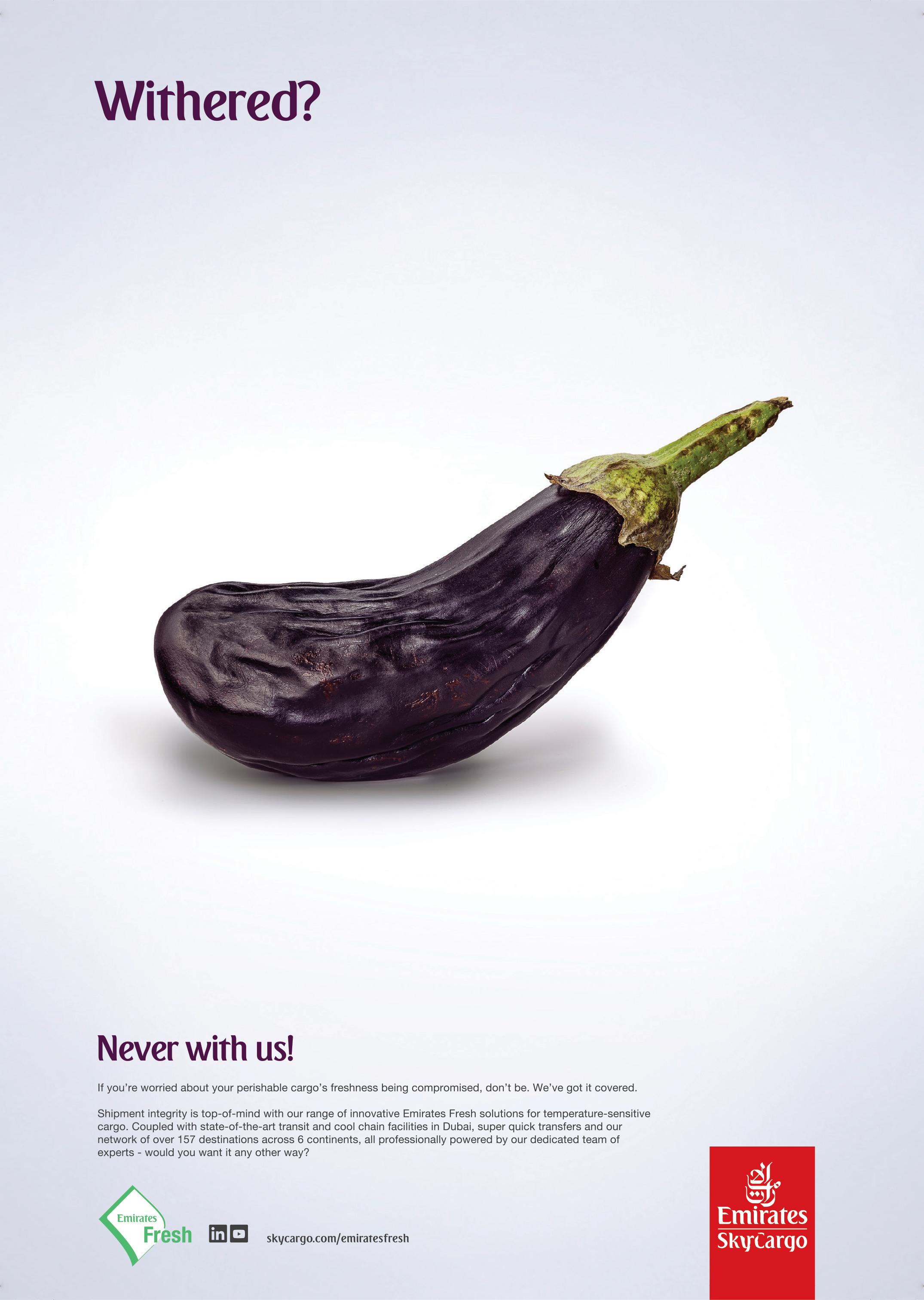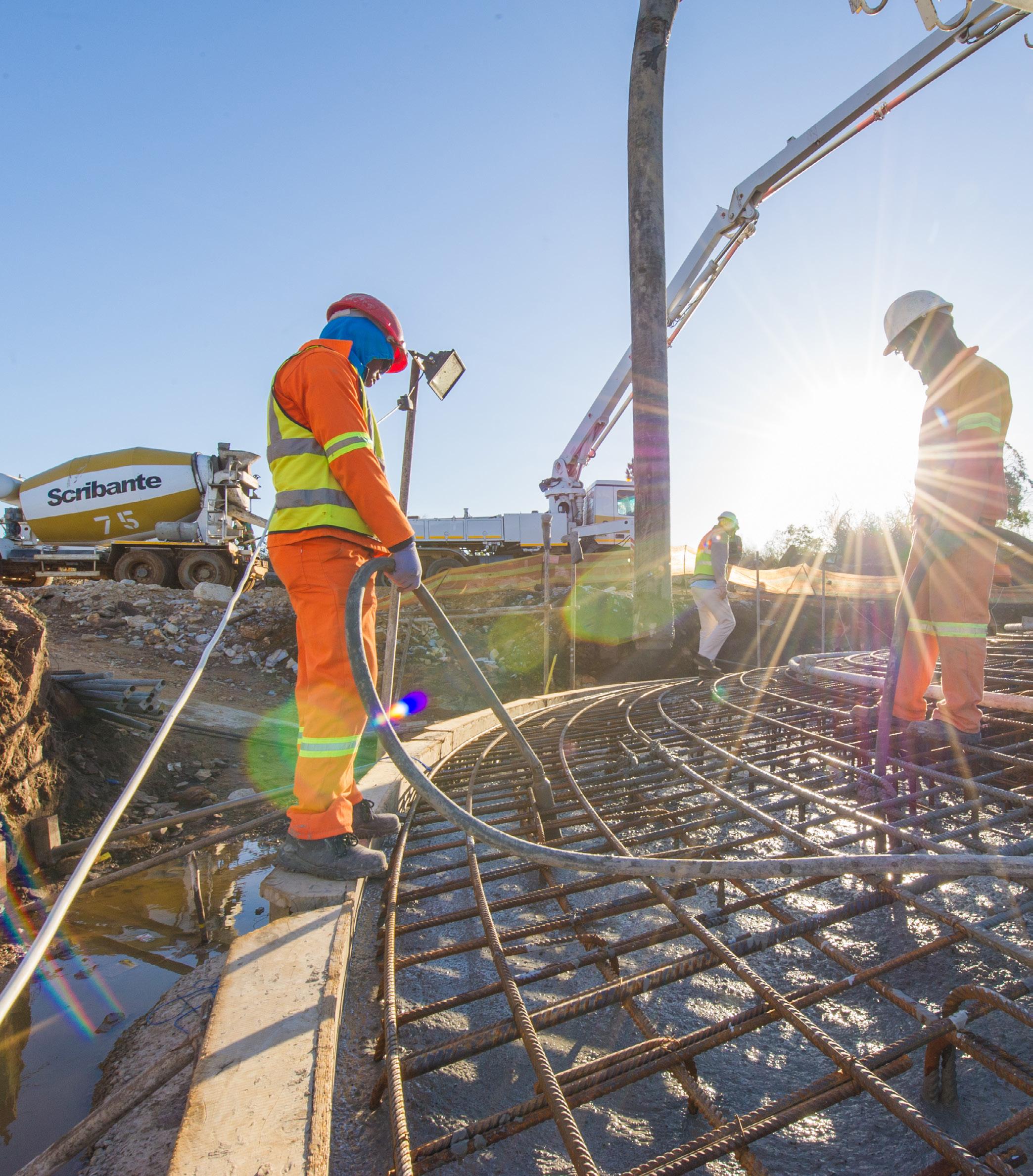
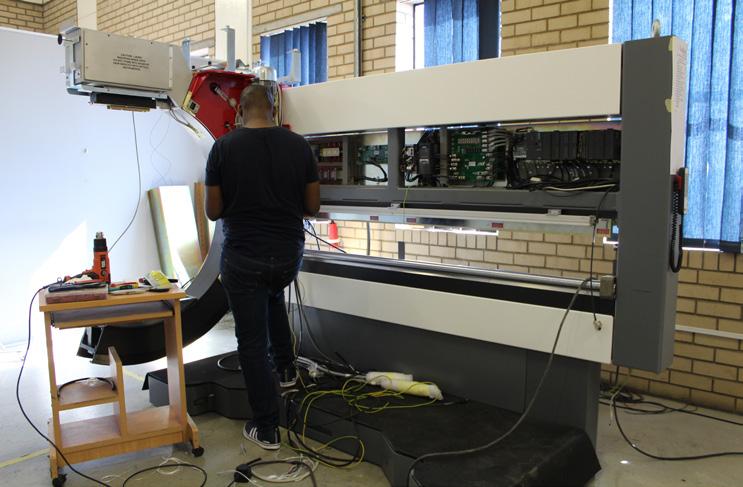
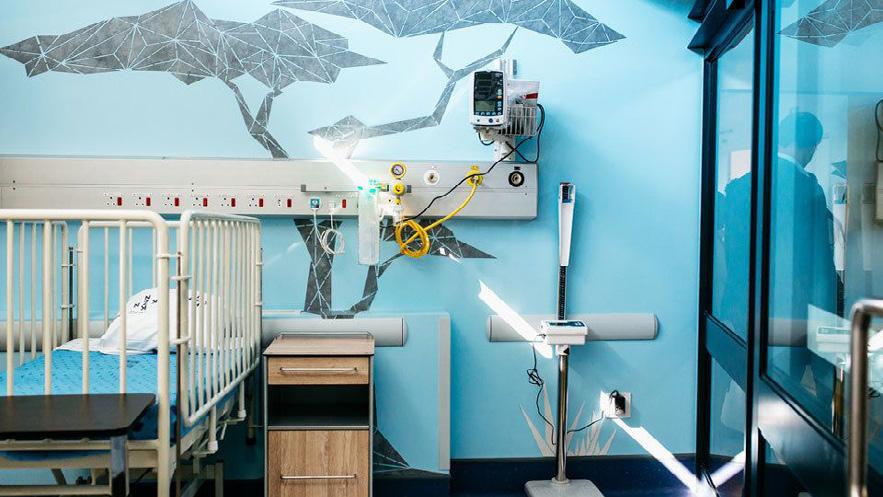
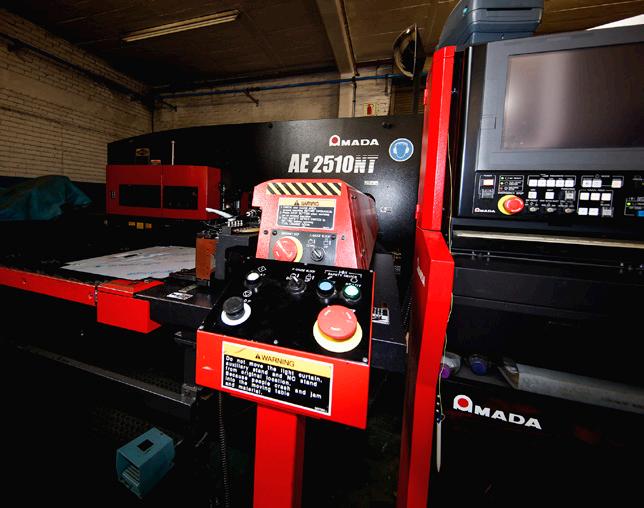
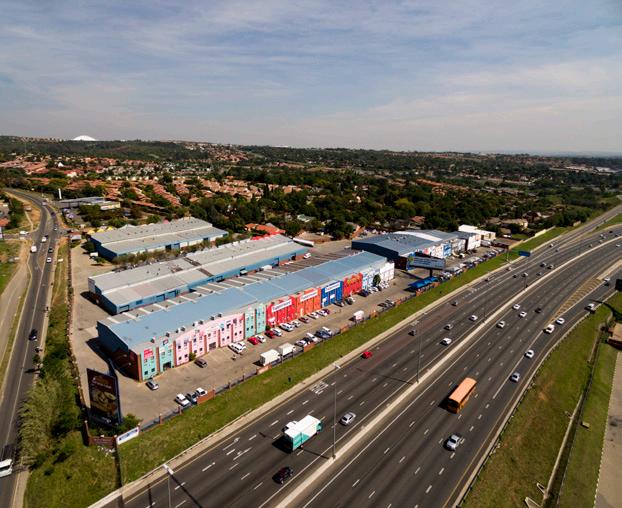
THE BUSINESS MAGAZINE FOR AFRICA’S INDUSTRY LEADERS www.enterprise-africa.net August 2019 AFRICA ALSO IN THIS ISSUE: Plumari Group / Lodox / Sakhiwo Health Solutions / Mac Brothers Exclusive interview with Sales Director Eric Fouche Two Decades of Absolute Strength For Scribante Concrete
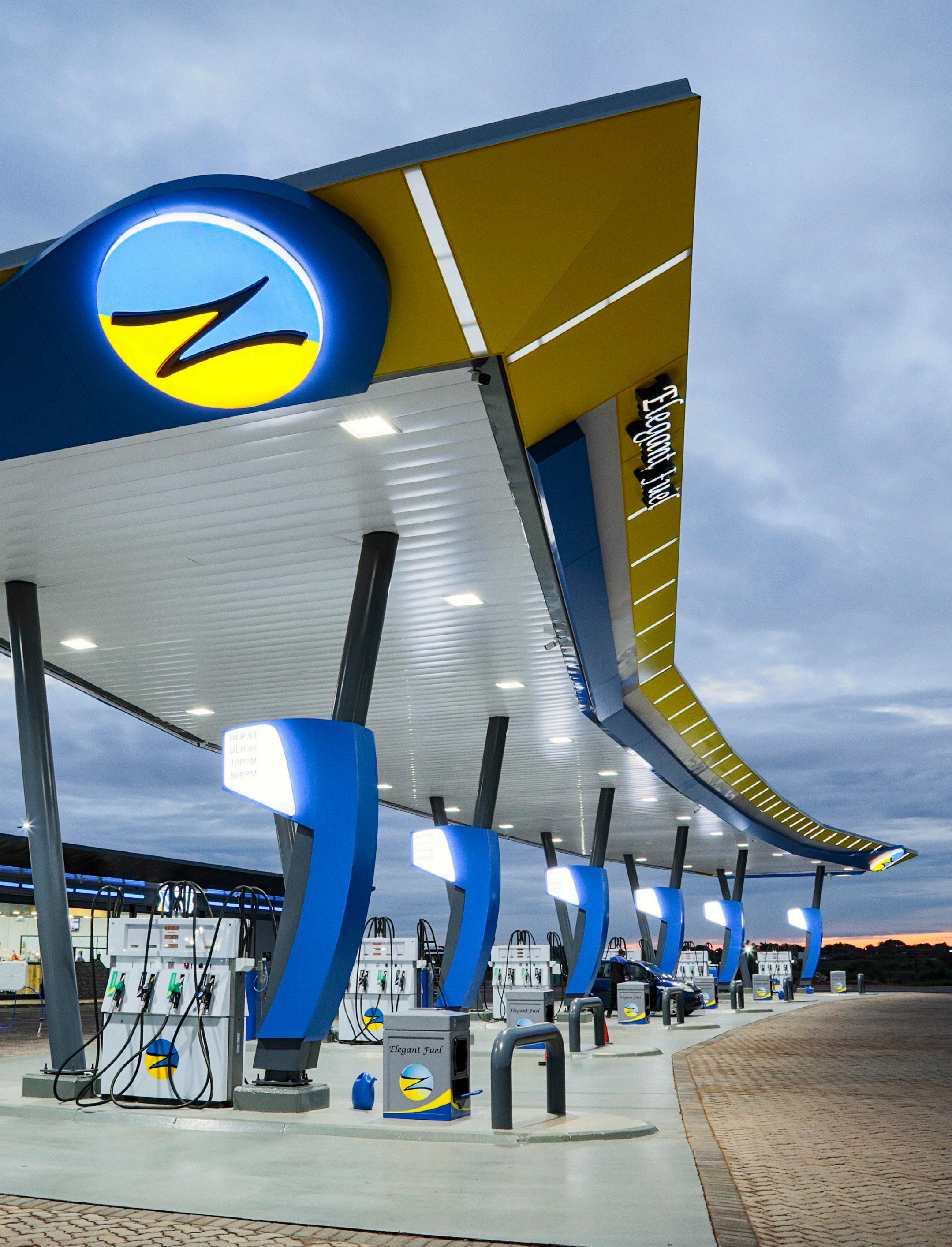
www.elegant-group.co.za
EDITOR Joe Forshaw
joe@enterprise-africa.co.za
SENIOR PROJECT MANAGER Sam Hendricks
sam@enterprise-africa.co.za
SENIOR PROJECT MANAGER Tommy Atkinson
tommy@enterprise-africa.co.za
PROJECT MANAGER James Davey
jamesd@enterprise-africa.co.za
PROJECT MANAGER Chris Wright
chrisw@enterprise-africa.co.za
PROJECT MANAGER Daniel Roper
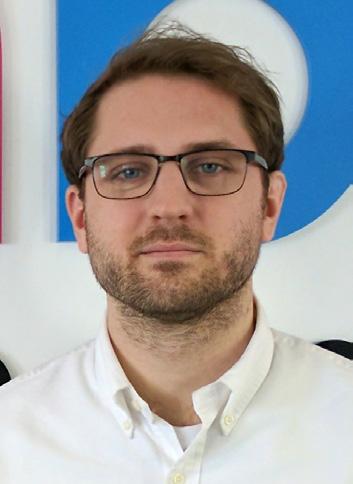
daniel@enterprise-africa.co.za
PROJECT MANAGER Chelsea Pettifer
Chelsea@enterprise-africa.co.za
FINANCE MANAGER Chloe Manning
Chloe@enterprise-africa.co.za
SENIOR DESIGNER Liam Woodbine
liam@enterprise-africa.co.za
CONTRIBUTOR Manelesi Dumasi
CONTRIBUTOR Karl Pietersen
CONTRIBUTOR David Napier
CONTRIBUTOR Timothy Reeder
CONTRIBUTOR Colin Chinery
CONTRIBUTOR Benjamin Southwold
CONTRIBUTOR William Denstone
Published by
Chris Bolderstone – General Manager
E. chris@cmb-media.co.uk
Rouen House, Rouen Road, Norwich NR1 1RB +44 (0) 1603 855 161
E. info@cmb-media.co.uk www.cmb-media.co.uk
CMB Media Group does not accept responsibility for omissions or errors. The points of view expressed in articles by attributing writers and/or in advertisements included in this magazine do not necessarily represent those of the publisher. Whilst every effort is made to ensure the accuracy of the information contained within this magazine, no legal responsibility will be accepted by the publishers for loss arising from use of information published. All rights reserved. No part of this publication may be reproduced or stored in a retrievable system or transmitted in any form or by any means without the prior written consent of the publisher.
© CMB Media Group Ltd 2019
//Constant reports of a weakened economy and a downtrodden construction industry would make most think that building for the future has all but stopped in South Africa. However, those on the front line, those active in development, are clear that major opportunities remain.

The system has certainly changed for builders. No longer is there space for a group of mammoth-sized corporates. Construction businesses must be nimble and quality-focussed. As we heard last month from TriStar Construction, those that are doing things right are those that will succeed and grow.
This month we hear from Scribante Concrete about how changing focus, and looking beyond the trends, has helped the company to remain on a steady growth path. By investigating new geographies, new industries, and new products, Scribante Concrete is remaining strong while others wobble.
Sakhiwo Health Solutions is a health consultancy business and is involved in the development of new healthcare facilities in South Africa and around Africa. Sakhiwo will be involved in the building of new hospitals, clinics and other facilities over the next decade at least.
Then there’s the Plumari Group, a property development specialist business founded by Giuseppe Plumari. Alongside its core business, the company is developing the big five Plumari Game Reserve between Hekpoort and Magaliesburg. For these companies, and others featured in the August edition of Enterprise Africa, the economic climate and the lack of sentiment in the construction sector are no barriers to progress. With a willing attitude and confidence in investment, almost anything can be achieved.
Tell us about the plans you have for development within your own business. We chat on LinkedIn and Twitter
EDITOR’S LETTER www.enterprise-africa.net / 3 Joe Forshaw EDITOR GET IN TOUCH +44 (0) 1603 855 161 joe@enterprise-africa.co.za www.enterprise-africa.net
A round up of some of the latest news stories from around the country
Key Upcoming Events Across the Country
Our regular update to help you keep track of important events and exhibitions taking place across the spectrum of industry sectors
11/SCRIBANTE CONCRETE Two Decades of Absolute Strength For Scribante Concrete
Operating in the highly-competitive As cracks have started to show in South Africa’s construction industry, Scribante Concrete is celebrating 20 years of absolute strength. Now one of the largest privately owned ready-mix concrete suppliers in the country, this collaborative and quality-focussed business is continuing to realise growth while competitors struggle. Sales Director Eric Fouche tells Enterprise Africa about expansion in Gauteng and new projects that are helping to cement this industry leader as one of the strongest names in the industry.
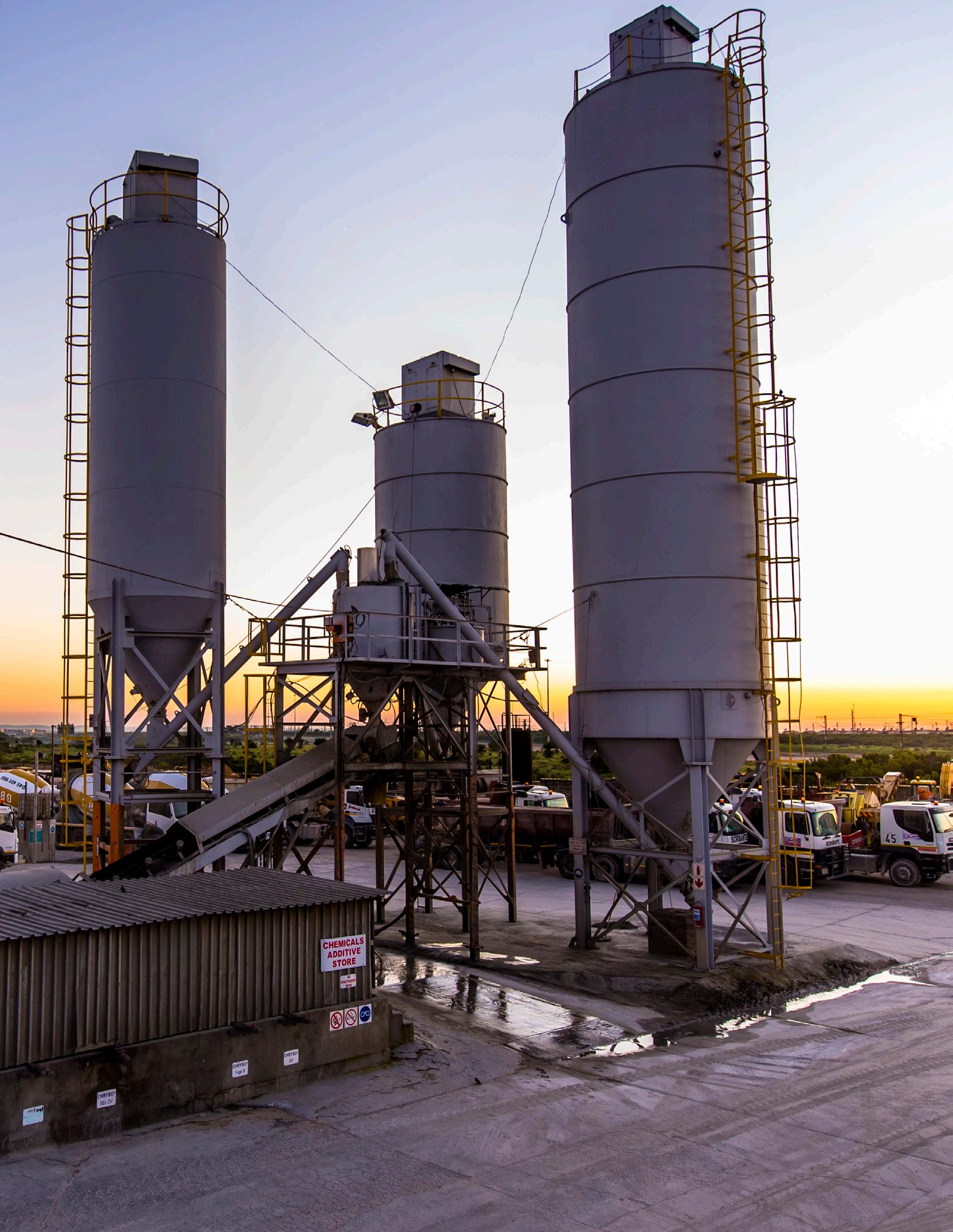
4 / www.enterprise-africa.net 11/
77/
INDUSTRY FOCUS: CONSTRUCTION
11/SCRIBANTE CONCRETE
Two Decades of Absolute Strength For Scribante Concrete
19/TIBER CONSTRUCTION
Big Builds Continue to Come Tiber’s Way
INDUSTRY FOCUS: MINING
25/EET GROUP
The EET Group Is Strong to the Core
INDUSTRY FOCUS: INFRASTRUCTURE
30/SAKHIWO HEALTH SOLUTIONS
Sakhiwo to Develop SA’s First Academic Hospital Since 1994
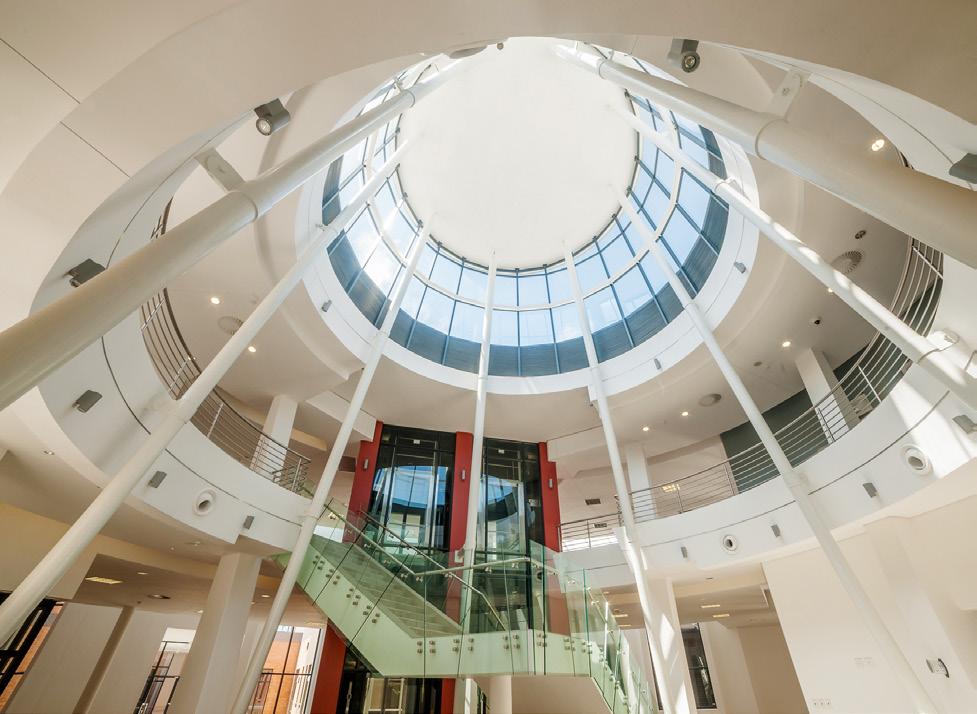
INDUSTRY FOCUS: TECHNOLOGY
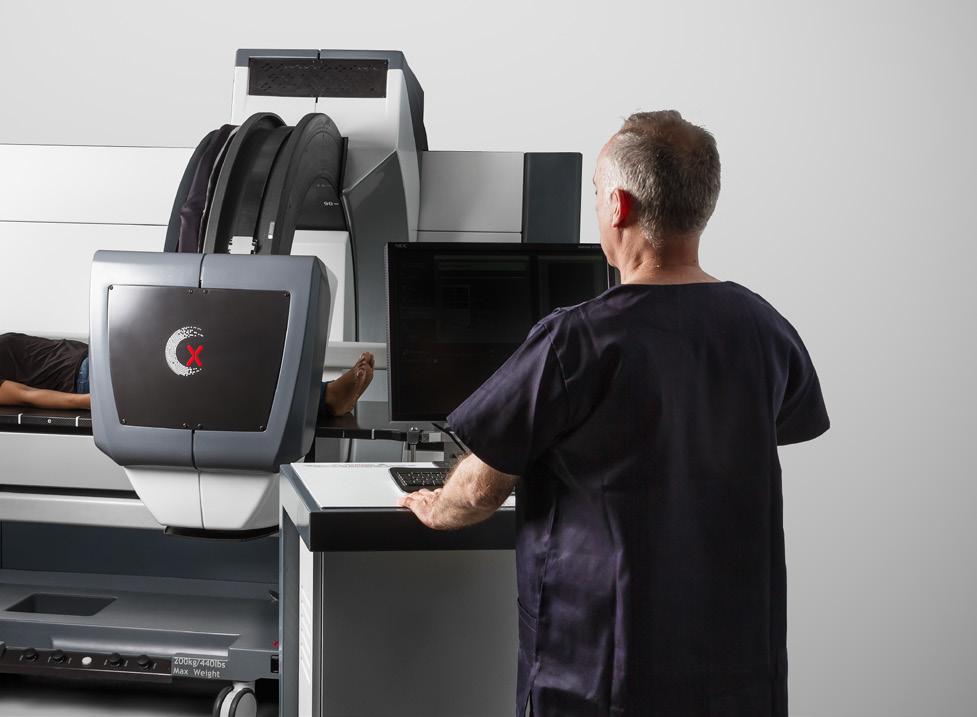
38/LODOX
Life Saving South African Innovation

INDUSTRY FOCUS: FINANCE
46/MEDSCHEME
Creating a World of Sustainable Healthcare
55/NATSURE
The Niche Insurance Specialists
58/STANDARD LESOTHO BANK
Improving Financial Inclusion in Lesotho
INDUSTRY FOCUS: MANUFACTURING
68/MAC BROTHERS
All the Ingredients for Continental Success
INDUSTRY FOCUS: PROPERTY
77/PLUMARI GROUP
Snowballing In Gauteng
INDUSTRY FOCUS: AGRICULTURE
82/AFRUPRO
The Fruit of a Generation
INDUSTRY FOCUS: SECURITY
88/FIDELITY ADT
Taking Care of Security
INDUSTRY FOCUS: RETAIL
95/JD GROUP
High-Spec Tech Keeps JD Group Ahead
www.enterprise-africa.net / 5
CONTENTS
38/ 30/
LAKE TURKANA OFFICIALLY LAUNCHED
Kenya has officially launched Africa’s biggest wind farm which is expected to provide a fifth of the country’s energy requirements.
A $680 million project which sees 365 turbines spread across the coast line on the eastern side of Lake Turkana, the power provided is 310MW of allrenewable energy.

After delivering first electricity in September 2018, the project is connected to the national grid via a 428 km power line. Often described as one of the windiest places on earth, the site of Lake Turkana wind power plant is perfectly positioned to harness energy at low cost.
“Today, we again raise the bar for the continent as we unveil the single largest wind farm,” said President Uhuru Kenyatta, after touring the project. “Kenya is without a doubt on course to become a world leader in renewable energy.”
This project has been viewed as a case study for the investment opportunities of renewables in Africa. Despite a few delays, the project has been largely considered a major success. This is just the first step in the Presidential plan to make Kenya 100% renewable powered by 2020.
UNEMPLOYMENT RATE RISES
South Africa’s unemployment rate has risen to 29% during the second quarter of 2019, according to figures released by Statistician General Risenga Maluleke.
The latest unemployment statistics are the highest since 2008, said Maluleke, while releasing the Quarterly Labour Force Survey (QLFS) – Q2; 2019.
“The other time that it had been higher that this – 29.3% – was in March 2003 when we were not yet in the QLFS,” he said.
South Africa has a working age population of 38.4 million, between the ages of 15 and 64. Of these 16.3 million were employed, 6.7 million unemployed, while 12.7 million were not economically active.
During the second quarter, unemployed rose by 1.4 percentage points to 29% compared to the first quarter of 2019.
“The number of unemployed persons increased by 455 000 to 6.7 million in Q2: 2019. This was in comparison to 476 000 increase experienced in Q1: 2019,” Statistics South Africa said.

The South African working-age population increased by 150 000 during this period.
The report reveals that the number of discouraged work-seekers decreased by 248 000 and the other not economically active population by 77 000, resulting in the net decrease of 326 000 in the number of those who were not economically active.
Employment in the formal sector and private households declined by 49 000 each. The informal sector and agriculture on the other hand recorded increases of 114 000 and 5000, respectively.
MABUZA APPOINTED AS ESKOM INTERIM CEO
Public Enterprises Minister Pravin Gordhan has appointed Jabu Mabuza as interim executive chairperson and acting Chief Executive Officer of Eskom for three months.
“I have informed the Eskom Annual General Meeting (AGM) this afternoon of my decision to appoint Jabu Mabuza as the Interim Executive Chairman for Eskom and Acting CEO of Eskom Holdings,” said the Minister.
Mabuza will assume the duty as Acting Group Chief Executive Officer (GCEO) for Eskom due to the resignation
of Phakamani Hadebe, who left the power utility at the end of July.
Hadebe was appointed to the top post in January last year and announced his resignation in May.
“I have made myself available to serve as the Interim Executive Chairman and Acting Group Chief Executive of Eskom with a good appreciation of the importance of leadership stability in the company right now as we look at the implementation of a sustainable operational and financial turnaround plan,” said Mabuza.
6 / www.enterprise-africa.net
SOUTH AFRICA’S POPULATION INCREASES BY 900 000
The South African population has risen to 58.8 million from 2018’s 57. 9 million, figures released by Statistics South Africa (StatsSA) Statistician General Risenga Maluleke have revealed.
Of the 58.8 million, 51% are female while 49% are male.
Maluleke said births remained the main driver of population growth in South Africa.
The report reveals that by mid2019, the country had recorded 1.2 million births, 200 000 net migration, while 500 000 deaths were recorded.
More than half the population, the report reveals, lives in Gauteng, Western Cape and KwaZulu-Natal.
About 15 million (25.8%) South Africans live in Gauteng. Just over 11 million (19.2%) people reside in KwaZulu-Natal while 6.8 million South Africans (11.6%) stay in the Western Cape.
Mid-year population estimates for the rest of the provinces are: Eastern Cape: 6.71m (11,4%); Limpopo: 6m (10.2%); Mpumalanga: 4.59m (7.8%); North West: 4.02m (6.9%); Free State: 2.89m (4.9%) and Northern Cape: 1.27m (2.2%).
“About 28.8% of the population is aged younger than 15 years and approximately 9.0% (5.3 million) is 60 years or older. Of those younger than
15 years of age, the majority reside in Gauteng (21.5%) and KZN (21.1%). Of the elderly, the highest percentage 23.9% (1.27m) reside in Gauteng. The proportion of the elderly persons aged 60 and older is increasing in time,” said StatsSA.
The report also reveals that the black African population is in the majority and constitutes approximately 81% of the total South African population. The report estimates that there are 47.4m (81%) black Africans in the country. This group is followed by 5.2m (9%) coloureds, 4.6m (8%) whites and 1.5m (3%) Indians/Asians.
R50BN TO SUPPORT 400 NEW BLACK INDUSTRIALISTS
Trade, Industry and Economic Development Minister Ebrahim Patel says government will over the next five years invest R40 billion to create an additional 400 black industrialists.
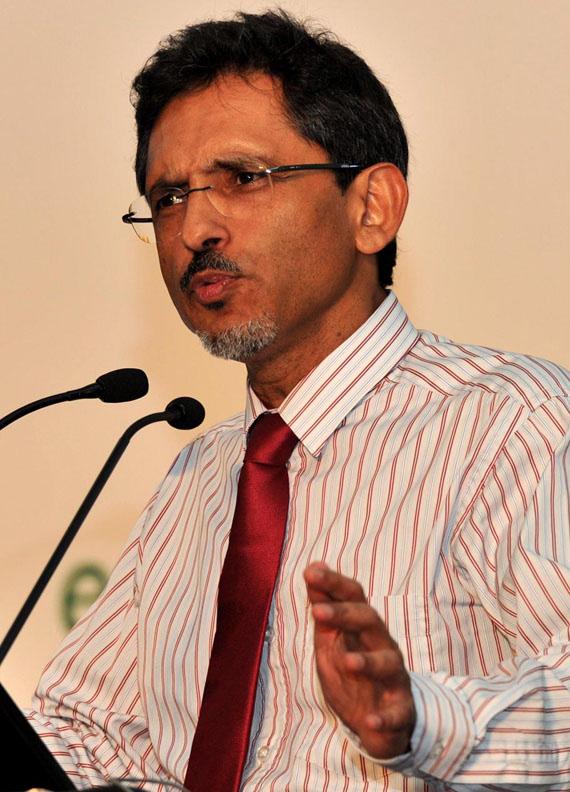
Patel said this when he led a debate on the department’s budget vote.
“To enhance the growth of black industrialists, we will combine the efforts of the department, the IDC [Industrial Development Corporation] and the NEF [National Empowerment Fund] into a seamless and coordinated programme.
“Over the next five years, we will support an additional 400 black industrialists projects with financial support of R40 billion, through identifying sustainable businesses and promoting both industrialists, new enterprise formation and worker involvement in the enterprises,” he said.
The Black Industrialists Scheme is the incentive programme of the Black Industrialists Policy, which aims to promote the participation of black industrialists as manufacturers in key sectors of the economy as identified in the Industrial Policy Action Plan (IPAP).
In February, the department told Parliament that the approval of 131 projects of black entrepreneurs leveraged over R13.2 billion of private sector investment, with about 9 500 new jobs created and 8 900 retained in a wide range of manufacturing sub-sectors.
NEWS SNAPSHOT www.enterprise-africa.net / 7
Ebrahim Patel - Photo GICS
BY PUTTING PEOPLE FIRST, WE GET BETTER RESULTS.
MediaCom has owned entities in a number of owned markets and leverage the GroupM network on the rest of the continent. Together, we have a presence in over 30 countries across Sub-Saharan Africa. Our experience includes heavyweight clients such as Coca-Cola, P&G, Siemens, Dell, AirFrance, and Richemont. Our success is underpinned by our belief: “People First, Better Results”; that if we invest in the people, we’ll deliver better results.
PRIORITISING PEOPLE
By putting people first, MediaCom has established a culture built on sharing and collaboration, which has implemented some of the best-in-class tools that make sharing market-leading concepts and ideas possible at scale. Although the concept of ‘share and reapply’ may sound simple, it’s not completely straightforward from an implementation perspective. In fact, it’s extremely hard. These complex processes take a large amount of knowledge and intensive planning.
Managing clients in Sub-Saharan Africa (SSA) is a unique and highly specialised field. This is why MediaCom employs three different models when working with clients.
THESE ARE THE SSA MODELS:
Hub & Spoke Model
Focuses on developing communication principles, building regional capability, the rollout of tools and technology, thought-leadership, regional insights and trends, as well as regional trading advantages.
Centralised Model
Focuses on regional strategy and local flair, direct partnerships, central co-ordination, and the consolidation of budgets on regional buys.
Local Model
All strategy, planning, and buying is done in each individual local market, with billing done in the local currency.
In addition to the local market insights provided through our network, we are plugged in to the WPP Data Alliance –TNS, Kantar, and Millward Brown. This Data Alliance facilitates third-party industry-accepted optimisation, compliance, and efficiency measurements in Sub-Saharan Africa.
GROWING BRANDS IS HARDER THAN EVER. ECONOMIES ARE UNSTABLE. RETAILERS, SHAREHOLDERS, AND CONSUMERS ARE DEMANDING MORE, WHILE TECHNOLOGY, DATA, AND GLOBALISATION ARE CREATING MORE COMPETITION AND COMPLEXITY. BUT AVENUES OF GROWTH STILL EXIST, ESPECIALLY IN AFRICA. AND WE KNOW WHERE TO FIND THEM.
MEDIACOM’S APPROACH TO MARKETS
MediaCom’s skills and capabilities in Africa can be sorted into three categories, namely Mature, Maturing, and Emerging regions.
1. Mature regions are markets with advanced capabilities such as in-country insights, online and offline strategy, online and offline implementation, buying offline, programmatic buying, media research & analysis, media verification, media performance measurement, and media performance reporting. These markets include Angola, Ghana, Nigeria, Kenya, and Mozambique.
2. Maturing regions refer to markets with a moderately developed landscape and include services such as incountry insights, online and offline strategy, online and offline implementation, buying offline, media research and analysis, media verification, and media performance reporting. Countries in this category include Zambia, Zimbabwe, Rwanda, Ethiopia, Tanzania, and Uganda.
3. Emerging markets have a strict traditional landscape and make use of in-country insights, offline strategy, offline implementation, buying offline, media verification, and media performance reporting as services. These markets are Botswana, Burundi, French West Africa, Namibia, Lesotho, Swaziland, and Malawi.
ONE MEDIACOM
Our CEO of MediaCom South Africa, Ashish Williams, explains the company’s outlook as follows: “Being part of a global agency network has allowed us to explore many avenues and opportunities for brands locally. It also enables us to plug into all the tools and research available to us. We are really a connected agency – #OneMediaCom.”
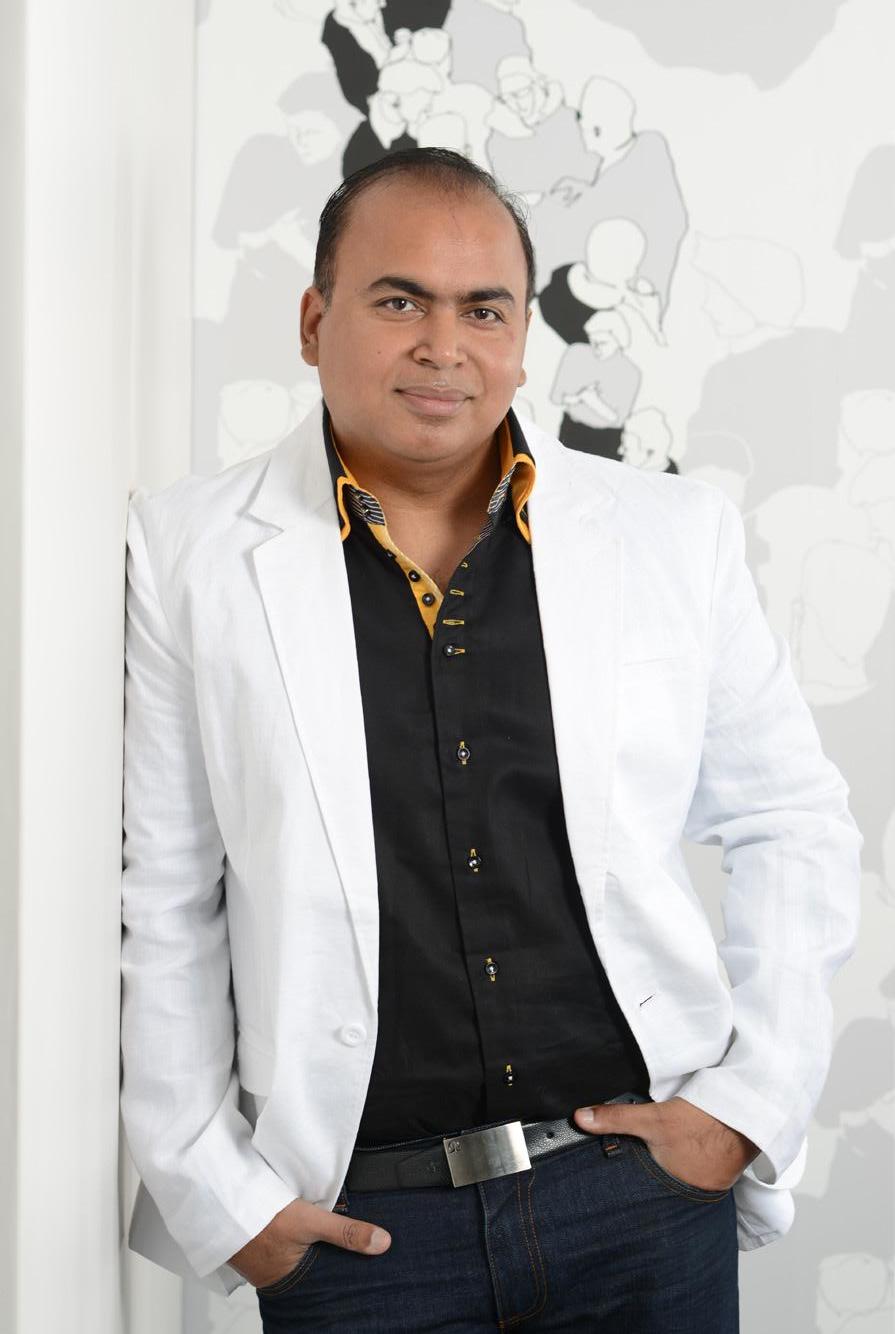
One of the benefits of working with a major global network like MediaCom is that clients have access to brand-specific tools and systems that can squeeze every millilitre of value out of their marketing budget. Beyond that, brands also receive access to resources that add value over and above the daily grind.
MediaCom houses a variety of exceptional proprietary tools within its system that adds valuable knowledge and resources to each client. Our teams of Systems Thinkers use data, technology, and creativity to design communications strategies that build brands and generate sales. And we do it at scale. It helps that we are one of the world’s top three global media networks, and part of GroupM and WPP. This gives us access to the richest data sets and the most robust benchmarks in the business; delivering the best results.
IF YOU ARE INTERESTED TO LEARN MORE ABOUT MEDIACOM IN AFRICA, VISIT WWW.MEDIACOM.COM PHONE: +27 11 582 6600 / FAX: +27 11 293 6303 / E-MAIL: MCMJHB.MARKETING@MEDIACOM.COM
“BEING PART OF A GLOBAL AGENCY NETWORK HAS ALLOWED US TO EXPLORE MANY AVENUES AND OPPORTUNITIES FOR BRANDS LOCALLY. IT ALSO ENABLES US TO PLUG INTO ALL THE TOOLS AND RESEARCH AVAILABLE TO US. WE ARE REALLY A CONNECTED AGENCY – #ONEMEDIACOM.”
CEO of MediaCom
South Africa, Ashish Williams
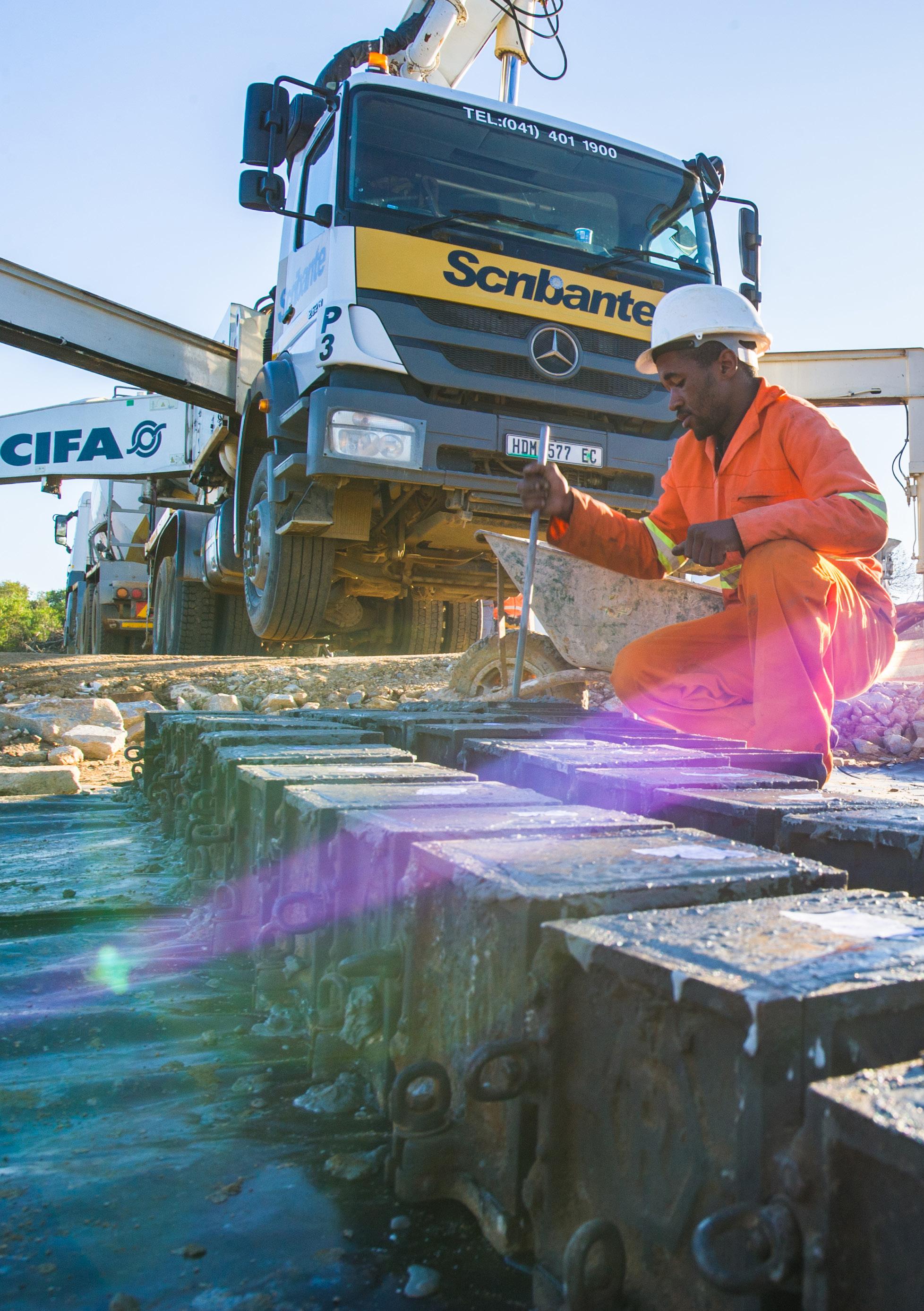
SCRIBANTE CONCRETE
Two Decades of Absolute Strength For Scribante Concrete
As cracks have started to show in South Africa’s construction industry, Scribante Concrete is celebrating 20 years of absolute strength. Now one of the largest privately owned readymix concrete suppliers in the country, this collaborative and quality-focussed business is continuing to realise growth while competitors struggle. Sales Director Eric Fouche tells Enterprise Africa about expansion in Gauteng and new projects that are helping to cement this industry leader as one of the strongest names in the industry.
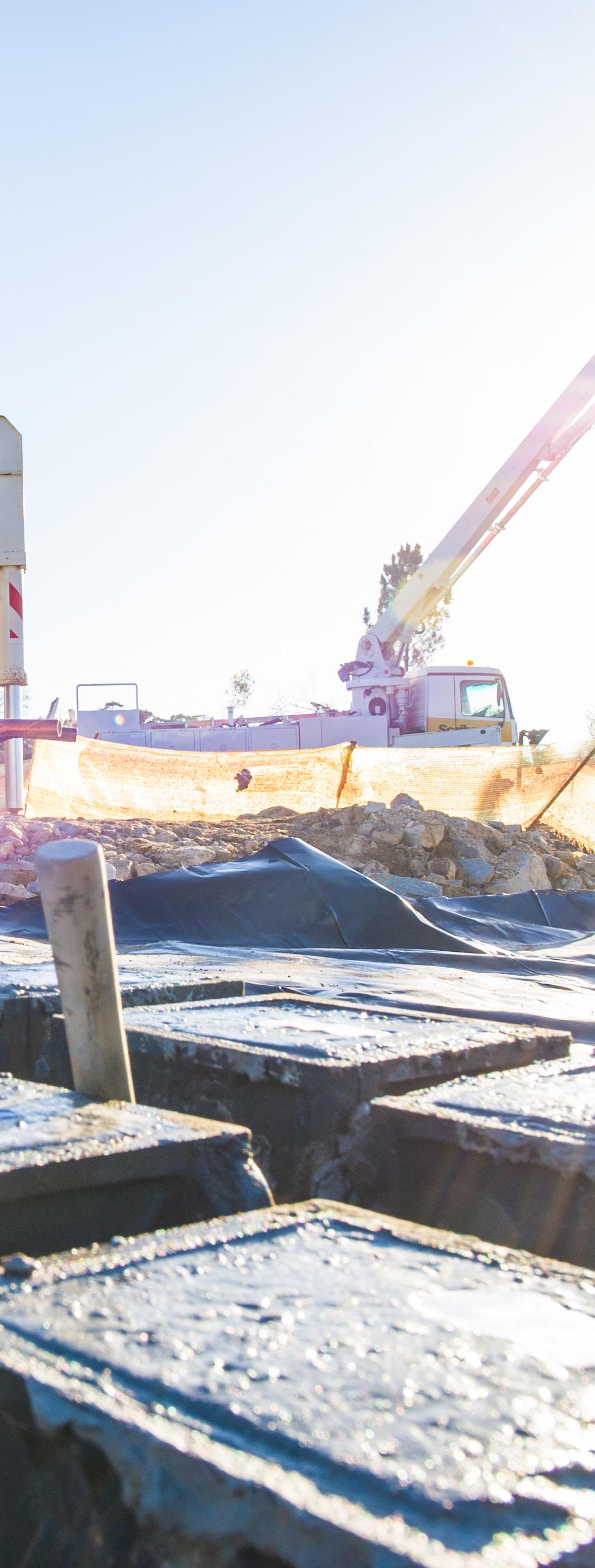
www.enterprise-africa.net / 11
PRODUCTION: Karl Pietersen
INDUSTRY FOCUS: CONSTRUCTION
In October 2016 , Scribante Concrete was busy with work on the Fourways Mall extension construction project in Gauteng. The company had been realising phenomenal success after expanding out of its home in the Eastern Cape and moving further into Gauteng where construction remained positive despite a wicked decline in the country’s economic performance.
By opening a new readymix plant in Wynberg, the company had cemented its position in the area, laying foundations for a growth strategy which would see the Scribante name – already strong in the Eastern Cape and KZN – become first of mind in Johannesburg.
Sa les Director, Eric Fouche, told Enterprise Africa that the company was aiming to become ‘one of the largest readymix suppliers in the country, blending family values with corporate culture’.
To day, that goal has been achieved, and Scribante Concrete continues to grow while others suffer at the hands of a still-weak economy.
“That family name of Scribante has grown as we’ve grown our national footprint,” he says. “From what we hear from the industry, we are considered a large player at the forefront of the market. We keep the family-feel in terms of our ethos and values, we still service clients on a one-to-one level; but in terms of supply, we are known as one of the biggest in Johannesburg and we compete with the big corporates where we are known as one of the best – we have achieved our goal there.”
Th is is fantastic news for a business operating in an extremely difficult environment. In July, the Construction Industry Development Board’s (CIDB) SMEs conditions survey for the second quarter found that those in the industry thought the situation remained woeful. CIDB Construction Industry Performance Project Manager Ntando Skosana noted: “With the exception of a marginal uptick at the end of 2018, general builder sentiment has trended downwards since the beginning of 2017.”
HUNTER GATHERERS
So, what is different about Scribante Concrete? How has the company managed to continue growing in an industry that is widely reported to be moving so slowly it is almost standing still?
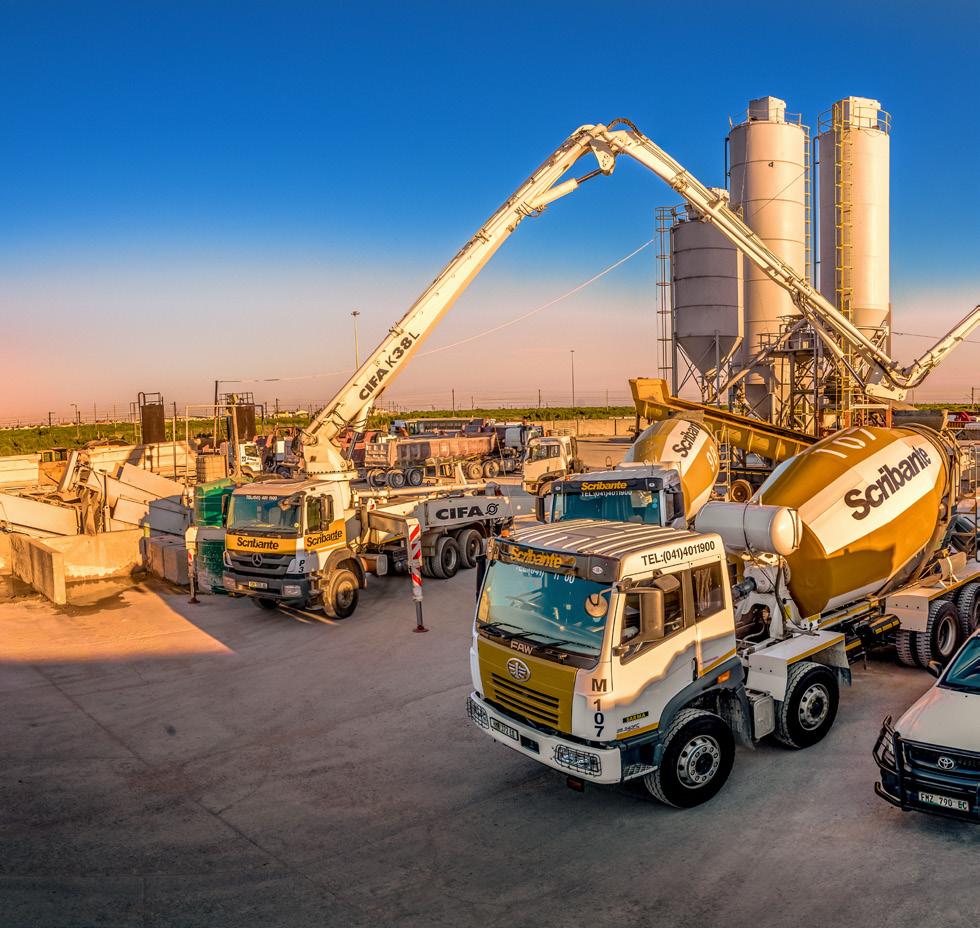
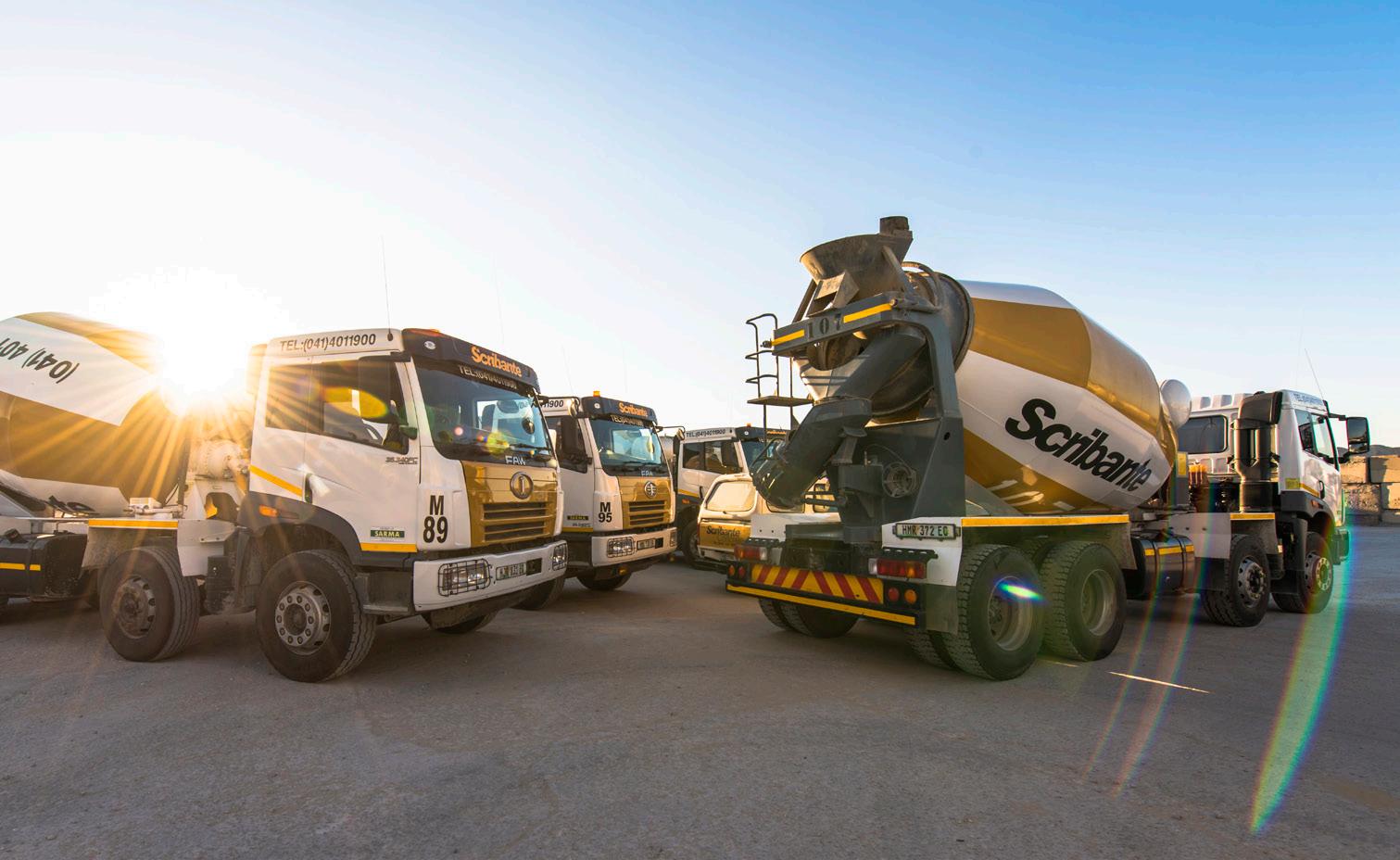
According to Fouche, Scribante employs a ‘hunter gatherer’ mentality across the entire business, where people go out and look for new opportunities, in new industries, in new geographies, so that the project pipeline remains full.
“I t has become an integral part of our business and something which have really committed to. We spend a lot of time engaging with our clients about what they want us to price on and what product they need from us, but also on what solutions we can bring so that they can finish faster,” he says.
“Where other companies were embattled to produce the figures, we were focussed on renewable energies, expansion in the Johannesburg area, and expansion into social housing –we were looking at different markets
//
12 / www.enterprise-africa.net
compared to the trends. Today, those trends have all changed again. We are coming off the Fourways project, which was a massive project with roughly 150,000 cubes of concrete, and we’ve expanded our brand in the Johannesburg area. Where we had two plants, we now have seven in the Johannesburg area. The expansion of those plants has been very good for us as Johannesburg has been our biggest growth node.”
Sandton is an important region for Scribante. The wealthy suburb has seen continued project expenditure over the past decade and, in order to take advantage of the development happening in Sandton, Scribante invested into a new plant in Wynberg. The success of this investment has catalysed further development in the region, and Fouche is excited about what the future holds in Johannesburg and the wider Gauteng region.
“I n terms of Johannesburg, we’ve expanded nicely and we’ve been well-received by the market. We have found a number of clients that didn’t know us before and they are now well-aware of us, or some who knew us for other services but now recognise us as a readymix company. Different sections of our business - be it construction and mining, civils, quarrying, drill and blast and mobile crushing and asphalt, or ready mix –all of our divisions are now known.
“The Wynberg plant has actually done so well, we’ve added a second plant, in Centurion, to handle the growth in volumes in Sandton and
SCRIBANTE CONCRETE
the surrounding areas. We’ve also expanded and opened up in the OR Tambo-Pomona area. That supplies a lot of the new projects that are coming out close to OR Tambo International Airport where there is a lot of mega developments set to happen.”
Scribante started life in Port Elizabeth more than 15 years ago and has grown to become one of the largest privately owned ready-mix concrete suppliers in South Africa. Brave expansion into Johannesburg has been a key element in the development of this expert business.
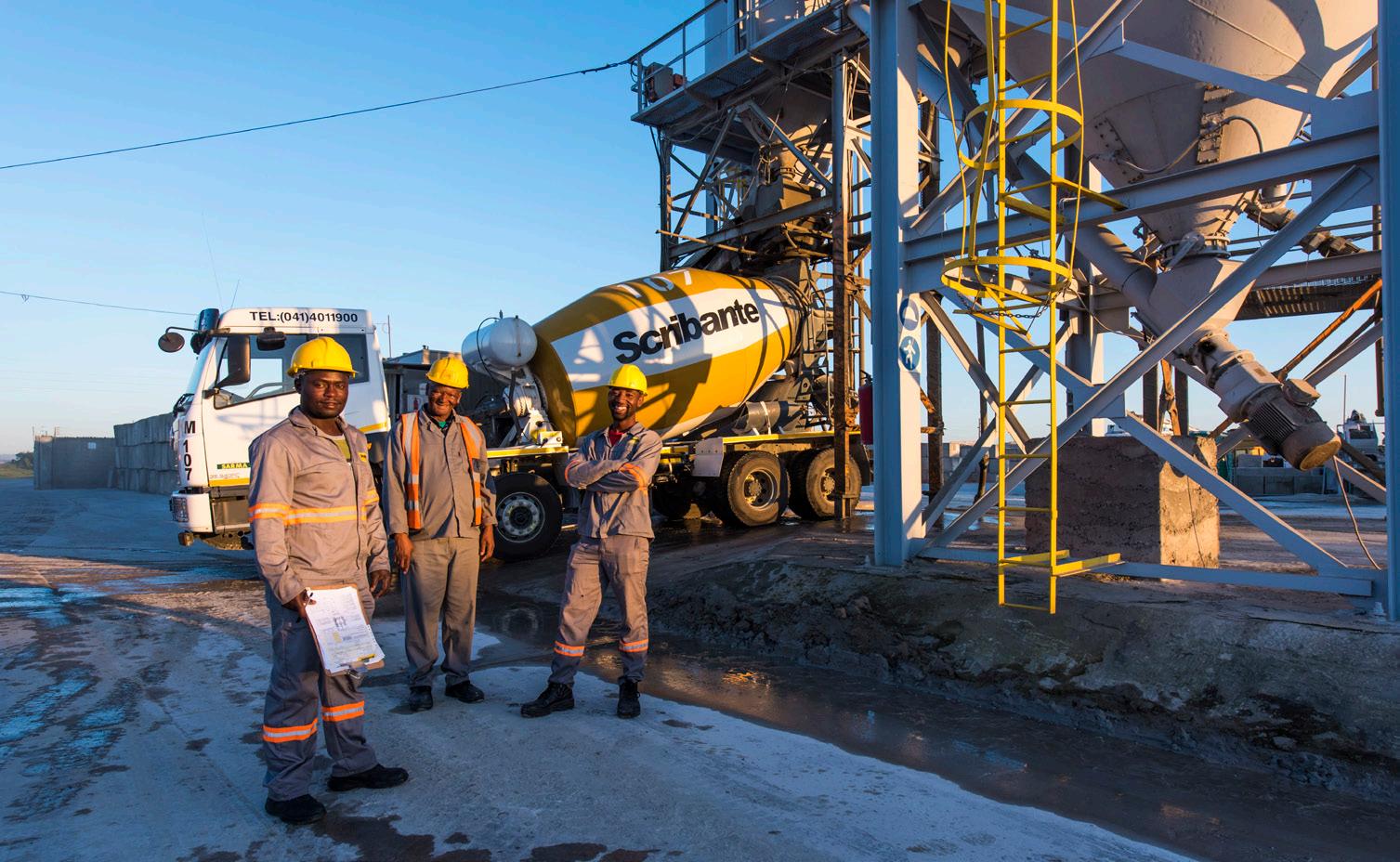
“Johannesburg is a nice place to do business because of the volumes and we do have a good project pipeline there, but we also ensure we look after our projects and branches that have looked after us over the years. As much as there has been a downward turn in the Eastern Cape and KZN recently, those markets will always be there and we won’t lose sight of our clients that have been with us for a number of years in those areas. In the next five and 10 years in South Africa, those areas are expected to boom, especially around Coega.
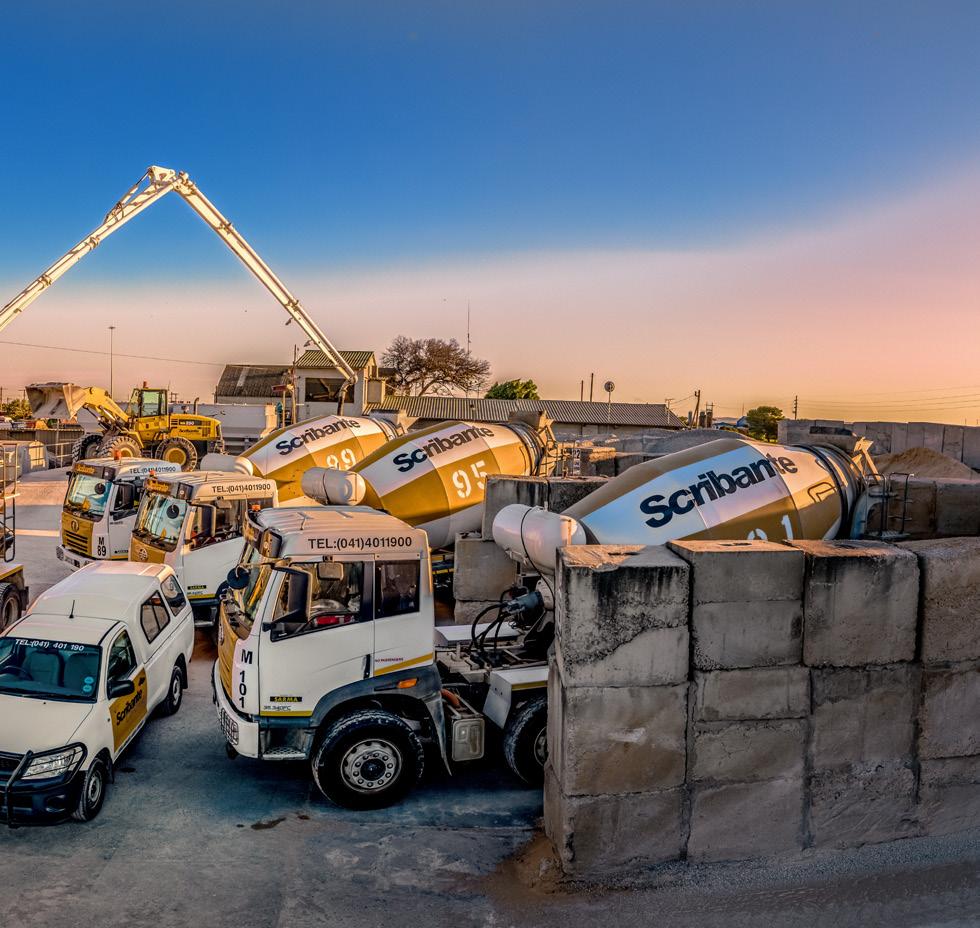
www.enterprise-africa.net / 13
// THESE ARE VERY LARGE, HIGHLYTECHNICAL PROJECTS AND HAVE HELPED US TO CEMENT OUR REPUTATION AS THE LARGEST PRIVATE READYMIX SUPPLIER TO SOUTH AFRICA’S WIND PROJECTS//
INDUSTRY FOCUS: CONSTRUCTION

There is a lot of industrial, commercial and social housing development that has been planned for these areas,” explains Fouche.
In order to stay on top of demand in Gauteng, the company is planning the launch of a further two new plants as anticipation of future major projects begins to ramp up.
“We are currently investigating opening two more plants and we hope to have them open by the end of the year. They are exciting new plants which will help our exposure in the greater Gauteng area. They are strategically planned to service our client’s needs as the Johannesburg metro expands outwards with social housing and infrastructure projects like the Gautrain expansion project and the expansion of the OR Tambo aerotropolis,” says Fouche.
NOW POURING
Sc ribante Concrete’s current project portfolio looks extremely exciting. With a nice spread across various provinces, the company is making full use of its commercial and mobile capabilities. After major successes with the Fourways Mall, Baywest Mall, and the Grassridge wind farm, Scribante is pushing forward with bigvolume jobs.
“We are supplying into the Oyster Bay wind farm at St Francis Bay, we are supplying into Golden Valley near Grahamstown, we are supplying to a wind farm in Copperton in the Northern Cape, we are supplying to the Garob wind farm in the Northern Cape, and there are more which we will be sealing up soon - we are actively pricing on projects all over South Africa. These are very large, highlytechnical projects and have helped us to cement our reputation as the largest private readymix supplier to South Africa’s wind projects.” details Fouche.
“A nice growth node for us has been the Zulti South pipeline project coming out of Richards Bay. That has been a key area for us for a long
14 / www.enterprise-africa.net
time with the mining opportunities that exist. The town has seen a huge slump in terms of economic growth, but there are large projects being announced there now. There is really strong potential growth there for the wider KZN region.
“At Steyn City, there is a project underway called Steyn City Centre 1 and we are supplying there now. Estimates suggest people will start occupying in 2023 and there is around 2500 units. We are supplying concrete there as the bases are 1200 cubes and we can supply those bases in around 10 or 11 hours. Previously, they were waiting up to 20 hours for these bases to be poured and, because we can do it faster, the contractors are able to get off site and reduce their overtime charges and costs.”
It is the company’s longstanding a perfectly crafted brand that allows it access to these large-scale projects and Fouche explains that a strong brand emanates from a strong and willing employee base.
“All of these projects come with their challenges and we have key individuals in the company that have unique abilities that come together to create a really strong business with a common goal. Our people are very passionate about their jobs – they work hard and fight hard, and this is the success of our brand. It’s an old brand that has been around for some time, but our staff keep it strong.”
Away from South Africa, the company’s brand is also starting to mature. Scribante has established a presence in Zimbabwe and has already built a strong reputation in Lesotho where it has been present for almost a decade.
“We have opened a new plant in Zimbabwe and we believe that the market there is, although very risky right now, full of potential. Harare has a population of around 4.5 million across the city and metropolitan area, and that is roughly the same as Johannesburg,” explains Fouche.

www.enterprise-africa.net / 15
SCRIBANTE CONCRETE
INDUSTRY FOCUS: CONSTRUCTION
COLLABORATIVE CULTURE
2019 marks 20 years since the establishment of Scribante Concrete. Now a Level 1 BBBEE contributor, with a national footprint, 150 trucks (updated frequently), and 680 employees across the group, Scribante continues to take a collaborative approach to business, always looking to communicate with partners about building the industry.
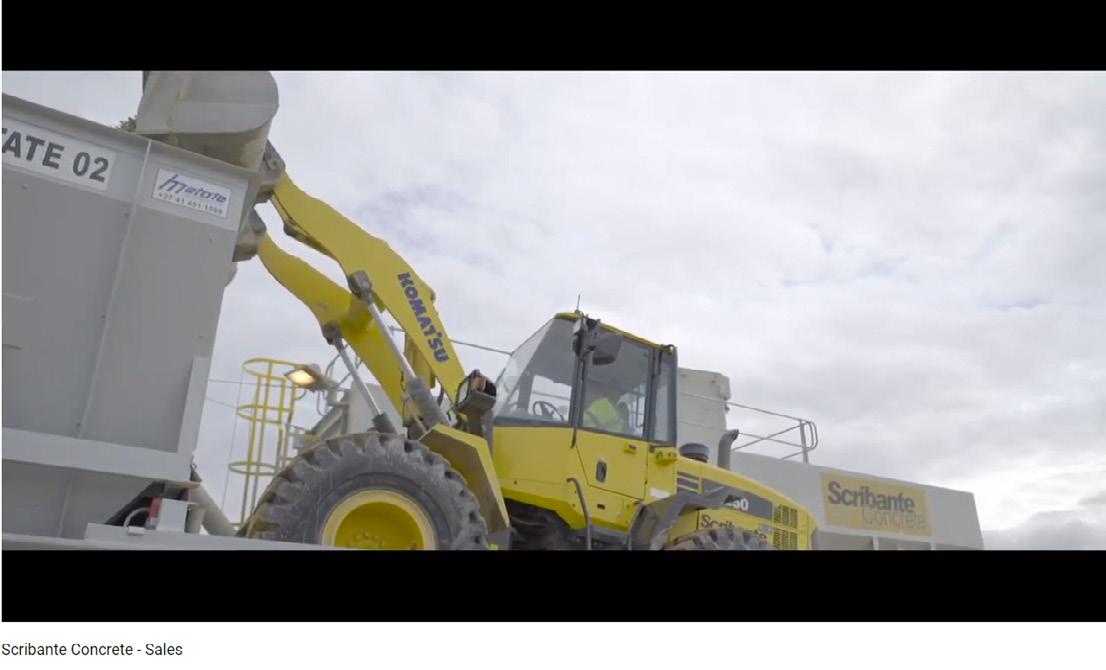
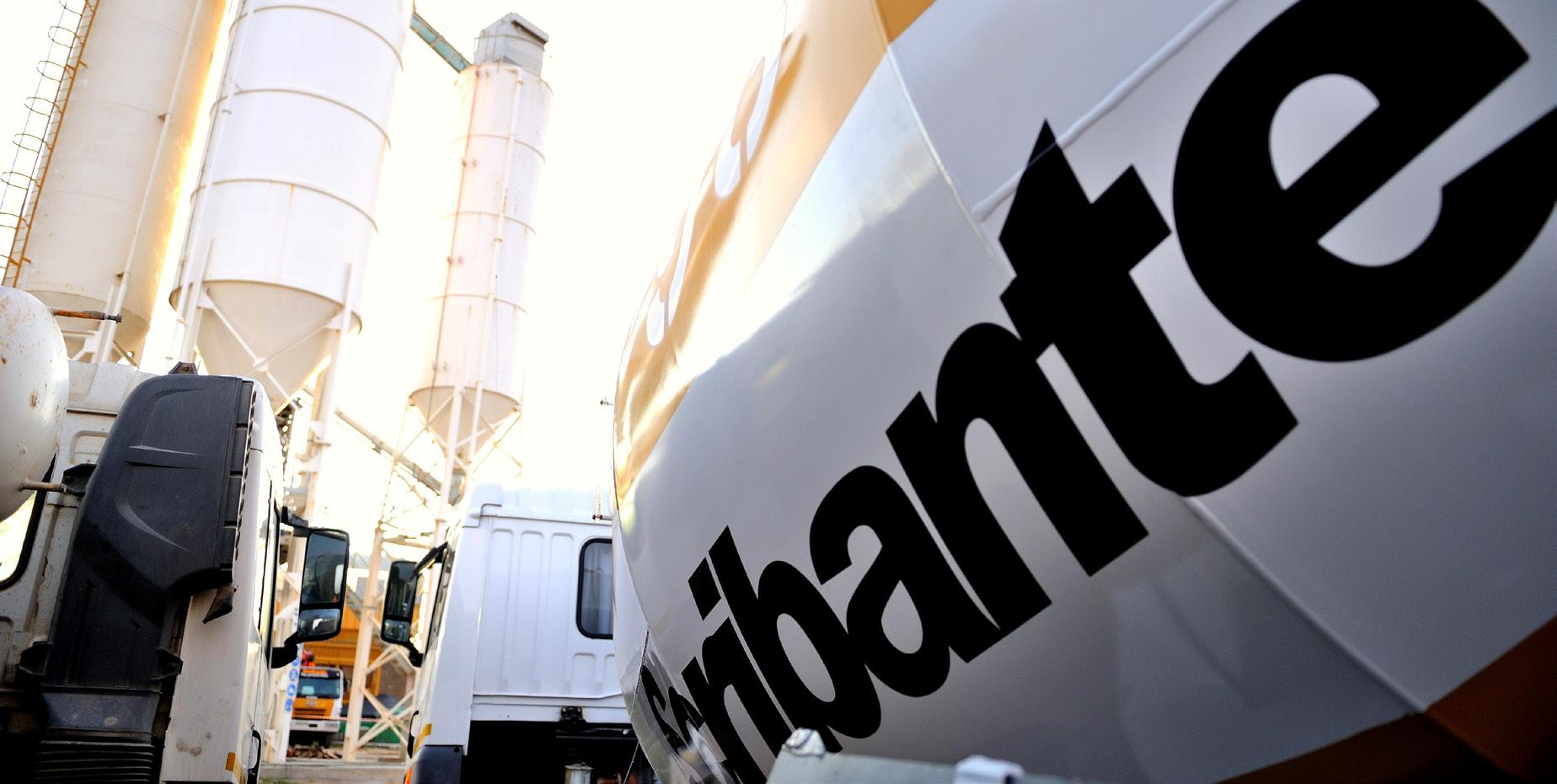
“Communicating with clients about their current projects lets us find out about what previous projects have been successful, what type of projects might be of interest in the future, and where projects are expected to come up. By engaging like this, we learn where the development projects are going, and we help to support companies that have supported us over the years,” says Fouche.
“As the industry gets tougher, clients want to build with companies that are able to react faster to the changing climate. We are a familycorporate and we are able to deal with our client’s needs, wants and challenges quickly because we have our feet on the ground. We don’t have
massive corporate structures, and the challenges that clients bring to us are brought the attention of the right people much faster. Our clients still like to deal with us because we give the personal touch. We understand that our client’s needs are changing and the buyers are becoming very social. The way that we deal with our crossborder African buyers has changed so much. The younger generation like to interact on a social level when
discussing business and we like to make that happen. We like to connect however possible; this is why we are doing an online buying portal, it’s why we are doing a loyalty programme, and it’s why we are introducing new technology on how we communicate.
“Our buyers no longer have to call in to find out where the tucks are; technology allows them to see when trucks are leaving, where they are right now, how many cubes it holds and

16 / www.enterprise-africa.net
what MPa it is holding. There is a digital signature for everything and that lets the man on the ground plan better. Their job is to put the product into the ground and create a building; they don’t want to worry about the logistics and our challenges.”
To celebrate 20 years of quality, and to further connect with its important stakeholders, Scribante Concrete held a racing day in July where 200 people – all clients and partners of the business – were invited to Zwartkops Raceway to experience track laps and super cars while
mingling with the Scribante team.
“Scribante is well-known in the racing industry throughout South Africa,” details Fouche, “and we had a number of racing cars on the track for our clients to take a ride with our racing drivers Silvio Scribante, Aldo Scribante, Michael Stevens and Bryn High.
“We’ve started a loyalty programme where clients get loyalty points when they purchase products from us and they can use their loyalty points to purchase racing gear and other products.”
It is this type of effort that demonstrates both the size and commitment of Scribante when it comes to nurturing mutually beneficial partnerships. When dealing with Scribante Concrete, you know you are working alongside one of the largest privately owned ready-mix concrete suppliers in South Africa and also a business that is invested in the growth of the country and the development of the industry.
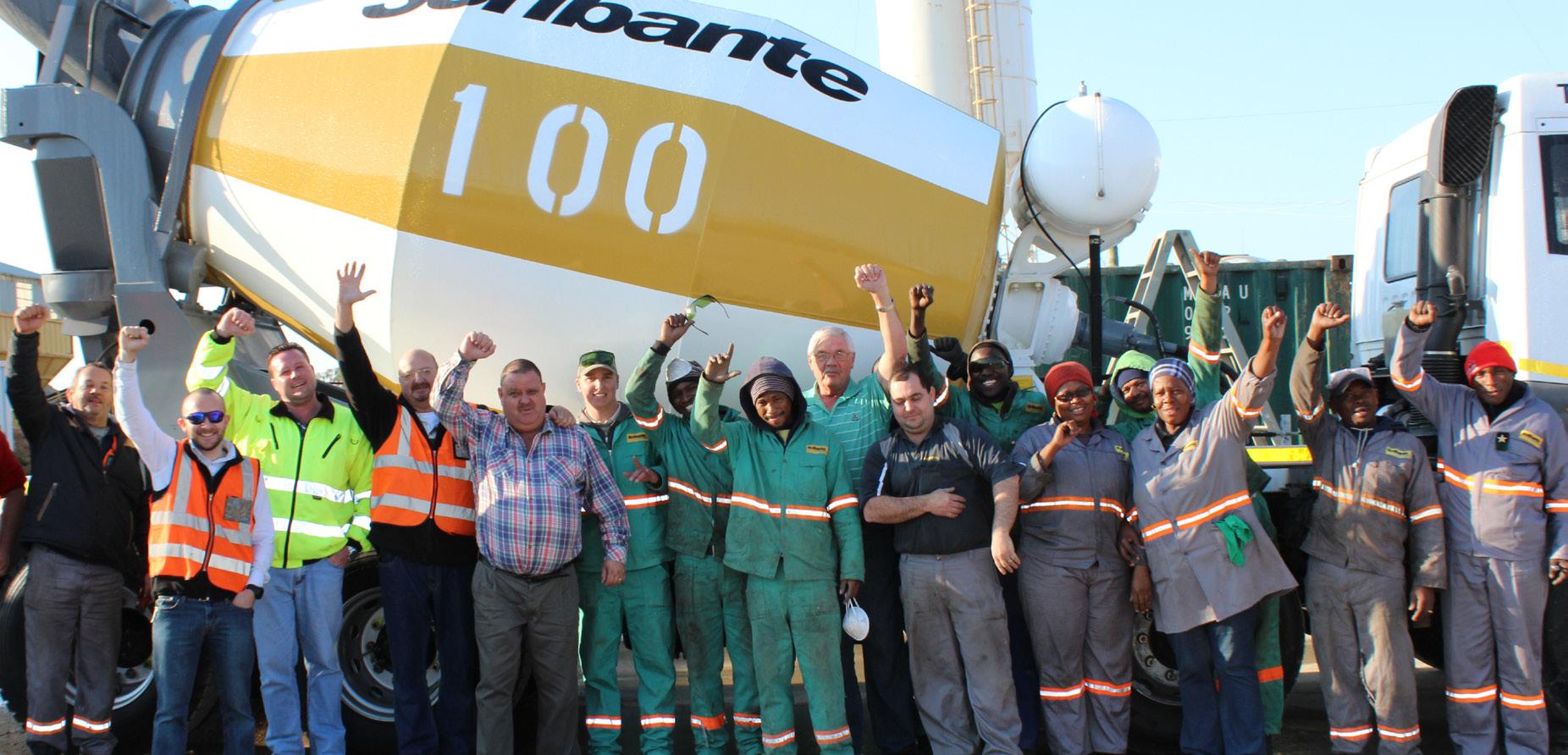
In the future, Scribante Concrete’s focus will continue to be on going out into the market and finding the opportunities to drive business. Happy
to look at projects of any size, in any location, and with a collaborative approach, this is a company positioned on a strong base for growth.
“I n terms of our growth, we have been in a challenging market because of the economic downturn and political instability. It has been an interesting and challenging time for Scribante as a group to try and adjust ourselves for this changing market. We have been forced to re-evaluate how we do business going forward so that we can put ourselves in a positive position for when the market turns – which economists are saying is close. There is an expected boom for construction in 2021,” says Fouche.
Af ter 20 years, it is now clear: If you are looking for reliable, safe, high-quality, experienced readymix supply that comes with a range of additional services, look no further than Scribante Concrete.
www.enterprise-africa.net / 17 WWW.SCRIBANTEGROUP.CO.ZA
// WE ARE A FAMILYCORPORATE AND WE ARE ABLE TO DEAL WITH OUR CLIENT’S NEEDS, WANTS AND CHALLENGES QUICKLY BECAUSE WE HAVE OUR FEET ON THE GROUND//
SCRIBANTE CONCRETE
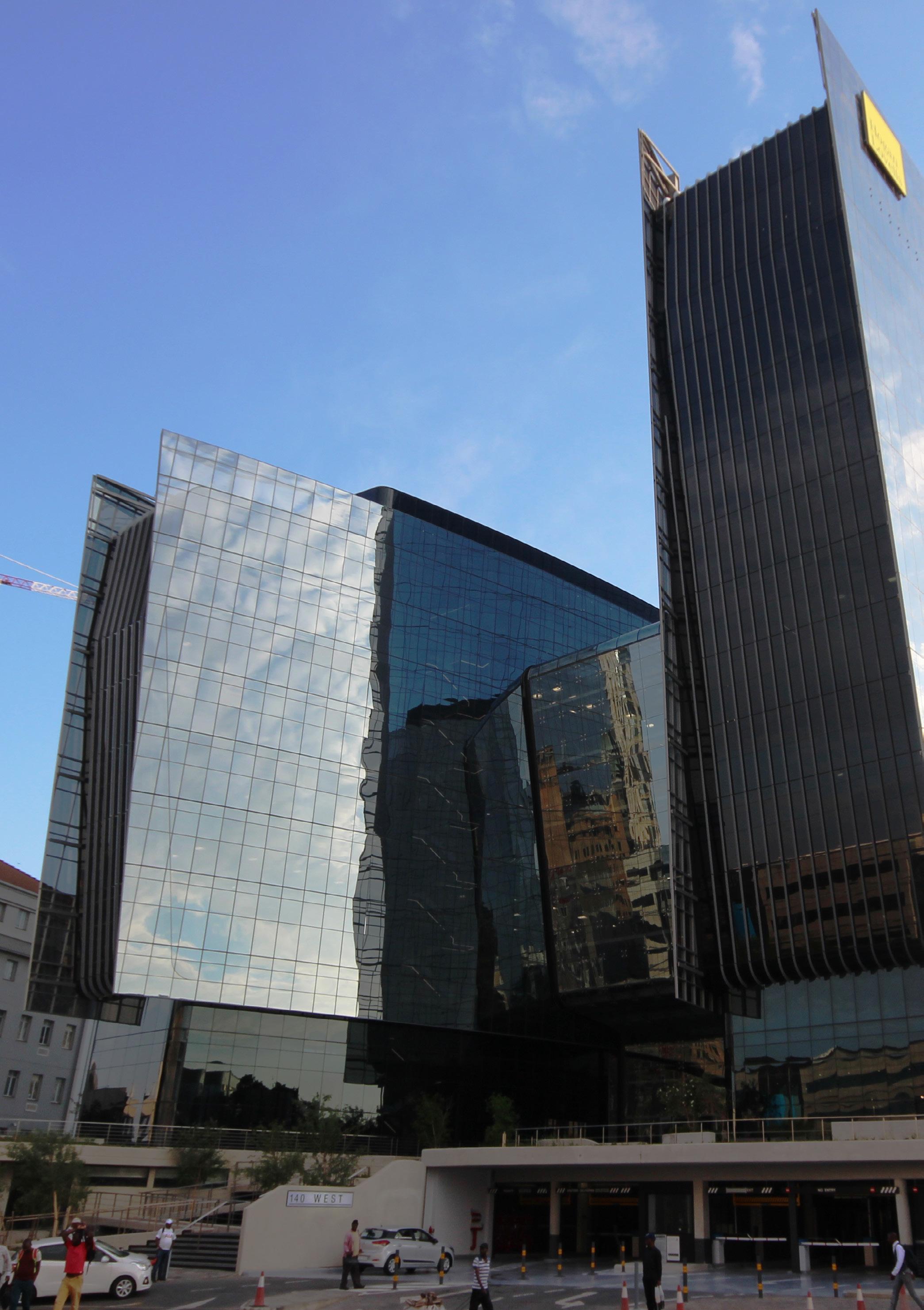
140 West Street
TIBER CONSTRUCTION
Big Builds Continue to Come Tiber’s Way
Backed by some 70 years of expertise in the industry, Tiber has evolved into a leader in the South African private property and construction sector. Despite repeated reports of a beleaguered industry, Tiber stands strong and continues to seize new and bigger opportunities and projects to fuel its aspirations of topping the table in SA construction.

www.enterprise-africa.net / 19
PRODUCTION: Timothy Reeder
INDUSTRY FOCUS: CONSTRUCTION
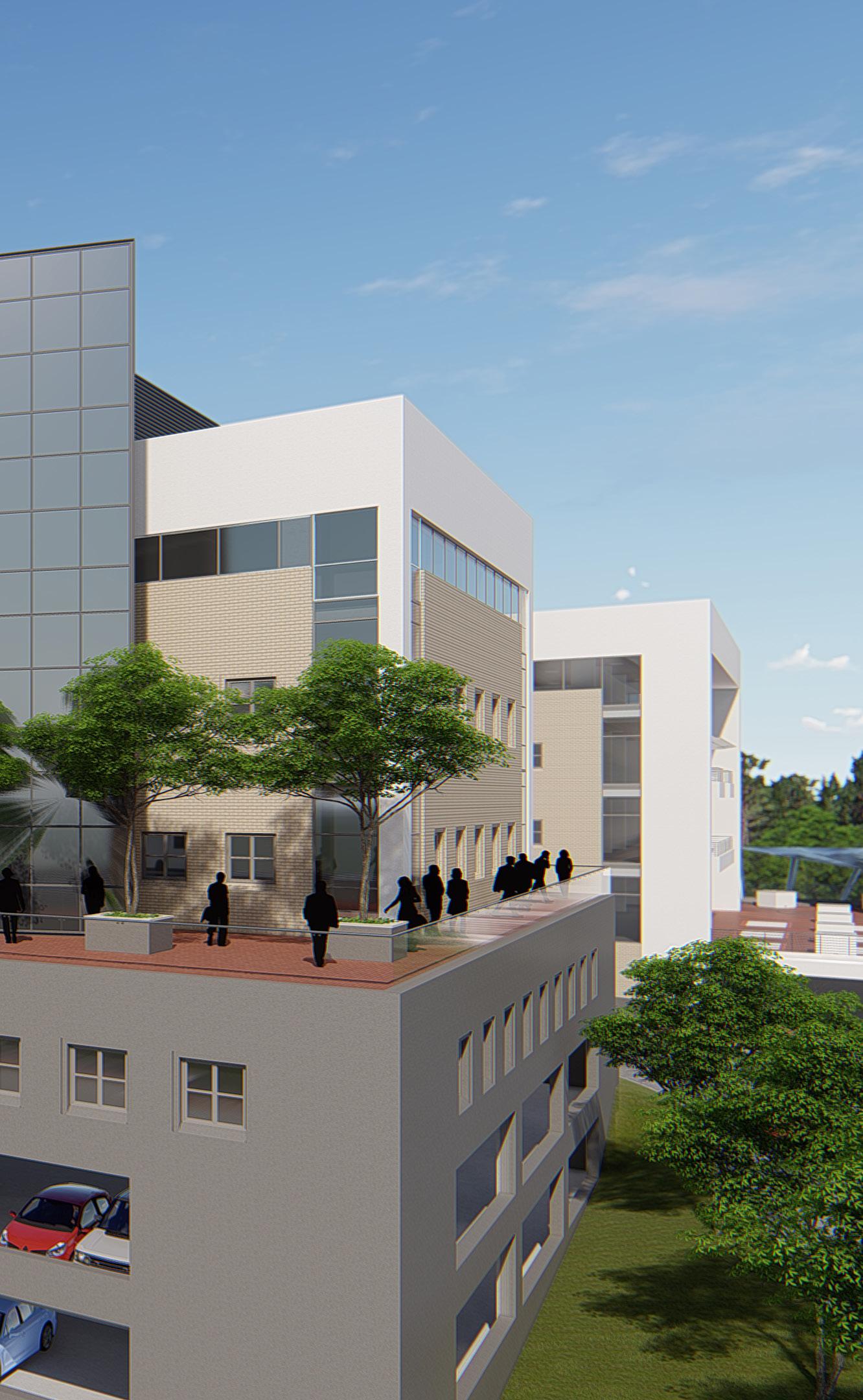

“T he Tiber brand continues to go from strength to strength and is synonymous of core strengths of quality and reliability,” outlines the group, a private and management-owned company with a culture of loyalty and service, established in 1951 by Paolo Rivera, and today supported by a highly skilled and experienced management team and workforce.
Th at Tiber continues to achieve growth and add to an already enviable list of completed projects is all the more impressive given the overarching negativity which plagues the sector as a whole, one which we are repeatedly told is in state of accelerated decline.
“S outh Africa’s beleaguered construction industry faces a trio of major risks this year from the general election, failing state-owned entities (SOEs) and the Budget, according to construction market intelligence firm Industry Insights,” stated Business Report in January.
Al though this was qualified by a prediction that this year would not sink to the depths of 2018, billed by Industry Insight as, “one of the toughest years on record,” IOL was still at pains to point out that the economy was set to face a raft of challenges, at home and abroad, as well as big cuts in infrastructure spending.
Th is was compounded even more recently, in April this year, by South African Forum of Civil Engineering Contractors (Safcec) CEO Webster Mfebe. “Public infrastructure spend has been declining,” he began, talking to Engineering News. “In the 2017/18 financial year government’s infrastructure budget was R947.2 billion. This was reduced to R834.1 billion in 2018/19. This is a whopping 12% nominal decrease.
“Also, in 2018 there was a 15.3% decline in the nominal value of contracts awarded, with the building industry hardest hit. Add to the mix that all of this is happening in
//
20 / www.enterprise-africa.net
Lakeview
an industry that is historically a big investor in capital expenditure and skills development,” Mfebe underlined.
AGAINST THE GRAIN
In dustry Insight also stated that, according to the data available up to October, a “quite a serious decline” of 14.3 % in the nominal value of construction projects awarded was apparent, compared to the corresponding period in 2017.
By all logic, you’d be forgiven for thinking that Tiber has been spending the last few years scrapping for new business, taking up any project on offer and reducing its scope in order to stay afloat. Consistently, however, the opposite has been true.
Wh en we first spoke to Managing Director Jose Correia in 2017, the group was deep into building the colossal Discovery Building in Sandton. At the same time, the group was busy, too, with the equally impressive 140 West project; throughout, Tiber has been notching up growth rather than downing tools.
“In May 2017, the industry was in a tough place and to be honest, it got more difficult throughout the year,” Correia admitted.
“We were very fortunate that we had two very big projects which carried us throughout that period. We secured those projects at the margins of two years before and that was very fortunate from our side. The industry took a massive dip towards the end of the year.” Correia has seen first-hand
the reality of the situation depicted in the news, which has at times been rather too close for comfort.
“We have experienced a big increase in the number of subcontractors going into business rescue and liquidation,” he explained, “and the worrying aspect of this is that many of them were reputable business with an established track record in the industry.
“T here have also been a number of main contractors which have suffered the same fate, which is of major concern, as it reflects the overall weakness of the market.
“Fortunately, since Cyril Ramaphosa was elected to the Presidency, there has been a change in sentiment. There are more enquiries, people are sending us more tenders to consider, and there is
notably more activity – especially in the Gauteng area.”
It was Gauteng which was giving Correia yet further cause for excitement when we asked for the lowdown last year. “Our biggest project right now is a JV with WBHO and that is 144 Oxford,” he described. “It’s a 33,000 m2 commercial, lettable space with fully unitised glass facades – it’s a striking building.
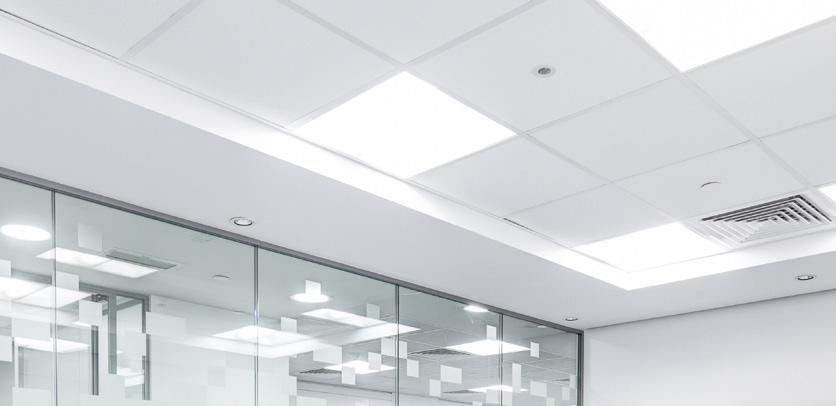
“We are also breaking ground on the first phase of the 110,000 m2 precinct mixed-use development called Sandton Gate. This development will take five to seven years to roll-out and provides us with a strong base for our order book going forward.
“R eliance on the open tender market in today’s times is a sure formula for failure so we continue to
www.enterprise-africa.net / 21
TIBER CONSTRUCTION
TITAN Tel: 011 699 6700 Fax: 086 536 6112 Email: reception@titanceilings.co.za Supplying and installing drywall
tenant installations from start to
throughout
Africa
the past 17 years. TITAN
// THERE ARE MORE ENQUIRIES, PEOPLE ARE SENDING US MORE TENDERS TO CONSIDER, AND THERE IS NOTABLY MORE ACTIVITY //
partitions, ceilings and bulkheads, as well as managing
finish,
South
for
INDUSTRY FOCUS: CONSTRUCTION
focus on ensuring that we continue to build a pipeline of projects through expansion of current relationships with developers and clients.”
BIGGER
AND BETTER
“O ur vision is clearly defined,” says Tiber Construction, “and we look into the future with confidence and great excitement as we continue to contribute to the growth and prosperity of our country.” This is not idle optimism, but a philosophy based on the unriddled success the group has enjoyed to date.
It is a story which looks set to be marked by further triumphs imminently, thanks in no small part to Tiber’s heavy involvement in Airports Company South Africa’s (ACSA) Western Precinct development at the OR Tambo International Airport, which commenced in February and is slated for completion by the end of 2020.
Th e R4.5 billion mixed-use Phase 1 development will comprise three sixstorey buildings, including the head offices of ACSA and the South African Civil Aviation Authority, retail space,

a hotel, conference facilities, logistics services and five levels of parking.
OR Tambo GM Bongiwe PityiVokwana spoke of the importance
22 / www.enterprise-africa.net
// OUR VISION IS CLEARLY DEFINED AND WE LOOK INTO THE FUTURE WITH CONFIDENCE AND GREAT EXCITEMENT //
of OR Tambo’s remaining an international landmark with worldclass infrastructure and a large variety of services: “The Western Precinct development forms part of a strategy to expand our offering and to drive new sources of growth for the entire region.”
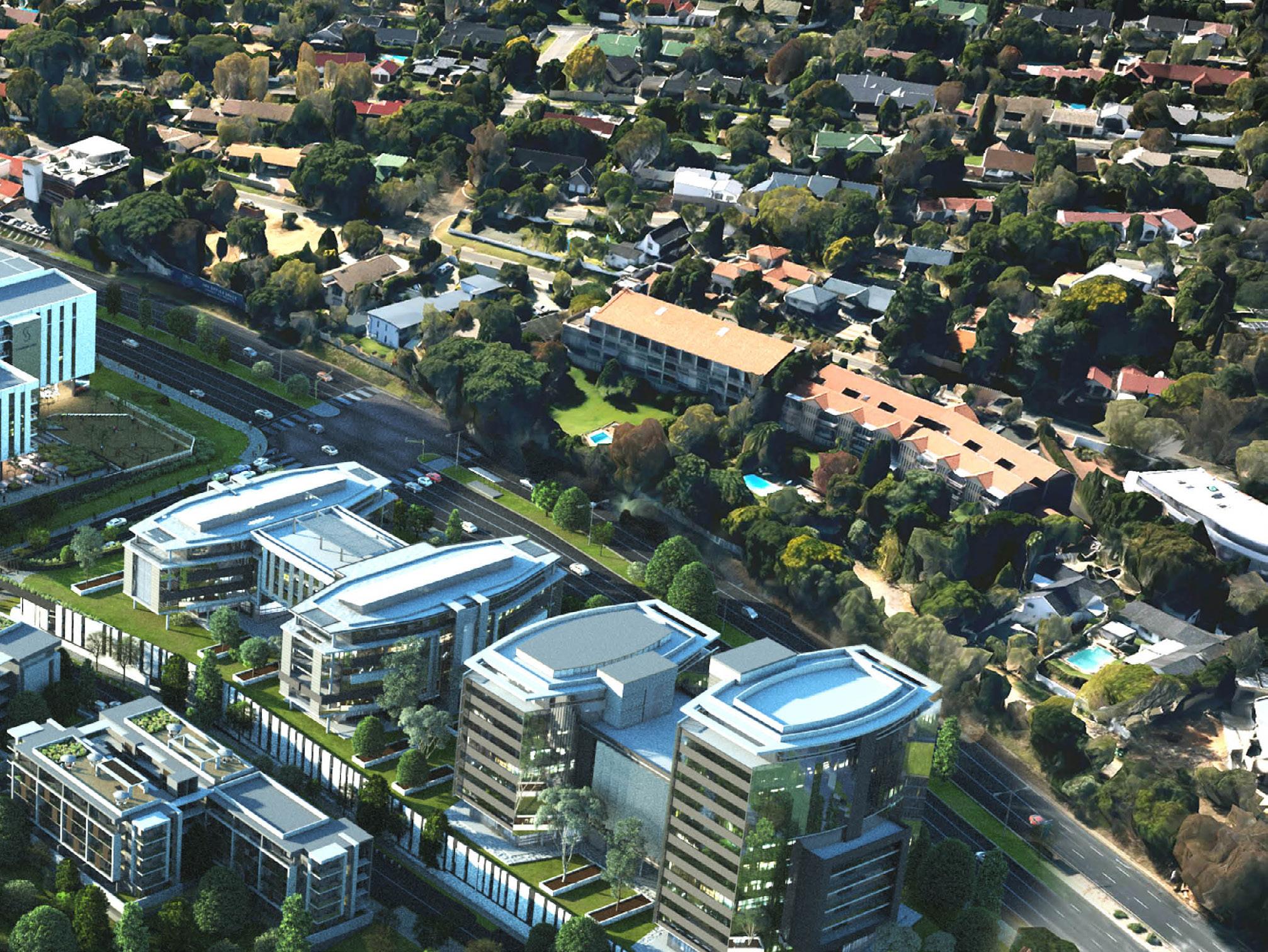
Pe rhaps most alluring for Tiber will have Pityi-Vokwana’s intimations of much more to come in the OR Tambo development tale. A new passenger terminal is envisaged within the next eight to 10 years, the first phase of which is set to process between 10 to 15 million passengers a year and have parking for 40 aircraft. Of course, this can only spell success for Tiber as it continues to showcase its ability to make reality the most complex of visions.
“I n 2018, the airport contributed no less than R5.6 billion to the South African economy, we supported
5480 jobs and also supported R940 million of income to workers,” Pityi-Vokwana closed.
“G iven this contribution, can you imagine how significant our contribution will be once we embark on this huge infrastructure build programme.”
www.enterprise-africa.net / 23 WWW.TIBER.CO.ZA
// THE TIBER BRAND CONTINUES TO GO FROM STRENGTH TO STRENGTH //
TIBER CONSTRUCTION
Sandton Gate
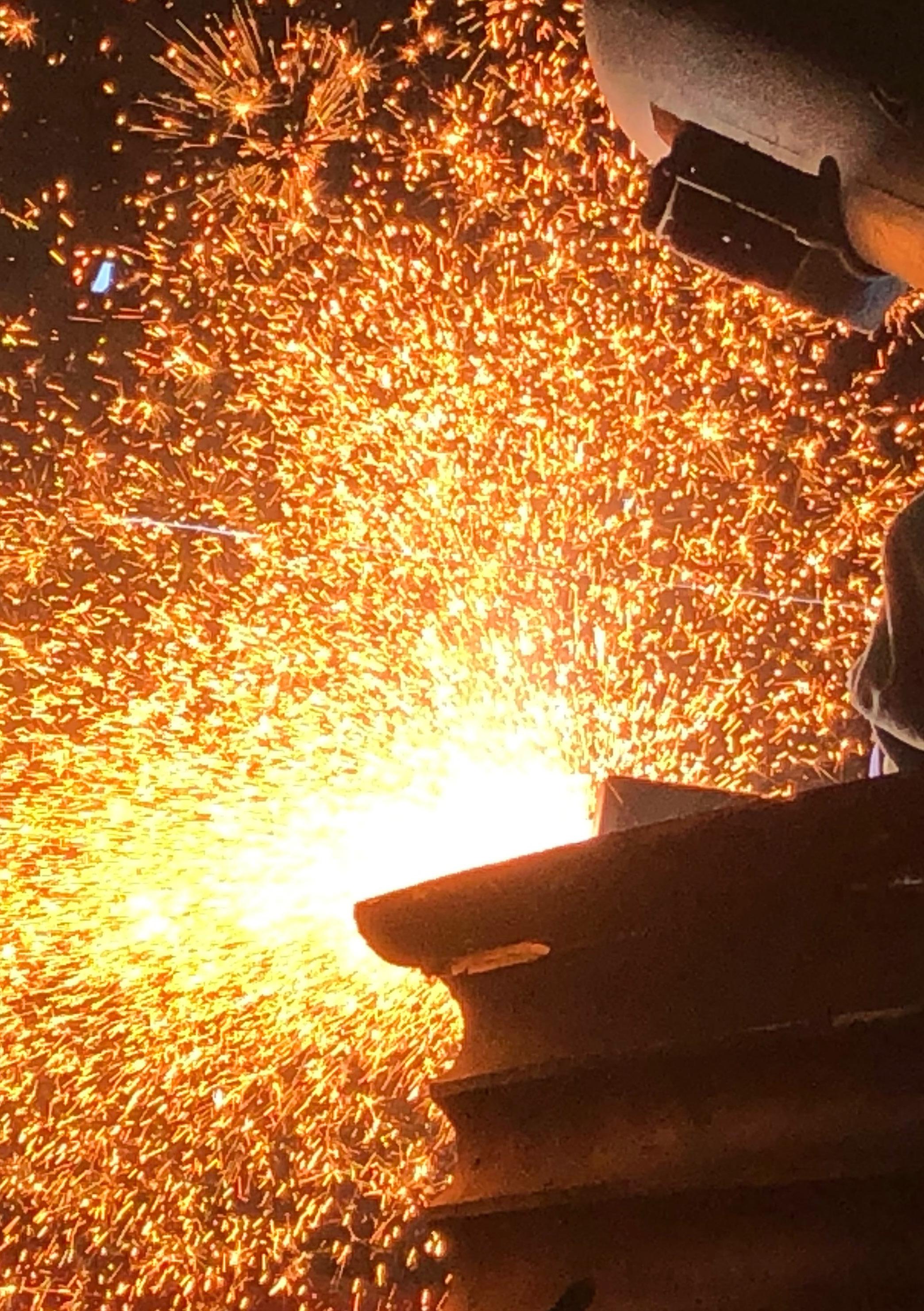
EET GROUP
The EET Group Is Strong to the Core
Benjamin Southwold
Designed to offer the full package for heavy infrastructure in the mining industry, the EET group of companies cover fabrication, magnets, hoisting and much more. CEO Trevor Watson outlines what he feels the future will hold for EET, with the group navigating tricky waters in recent years to emerge ready to profit from the opportunities of a new President, and with new markets to conquer.

www.enterprise-africa.net / 3
PRODUCTION:
INDUSTRY FOCUS: MINING
While intricate, the composition of the EET Group has been carefully thought through to ensure that every aspect of the wider industry is considered. The three EET divisions - Fabrication, Magnets and Sleeves - are grouped into EET SA (Pty) Ltd, and joined by Rotomech, Consultation, Wessel’s and Watson Steel and Hoisting and Handling Controls.
Diverse in their services and expertise, all the separate companies fall within the larger EET Group, by virtue of their common shareholding and management control, and benefit from the renown and resources EET possess within the sector.
“The group has been structured to facilitate vertical integration in terms of supply chain management,” EET explains, “and to create economies of scale. This structure provides integrated group resources such as banking/finance, human resource management, insurance and distribution and marketing.”
MAGNETIC APPEAL
EE T has been serving the mining, steel and material handling industry in South Africa with its permanent and electromagnetic solutions for the best part of half a century. Extensive experience in the engineering and manufacture of magnet systems has enabled EET to provide clients with high-performance, reliable and costeffective systems, and paved the way for a recent relocation to new larger premises in Heriotdale, Germiston.
The new facilities have allowed EET’s design, fabrication and manufacturing activities to be housed under one roof, together with improved access and increased floor space.
The EET Fabrications Division, meanwhile, has been involved in heavy fabrication since the 1980s, with products ranging from mine winders, bearing pedestals, bedplates, brake anchor brackets to another full range of heavy duty electro magnets.
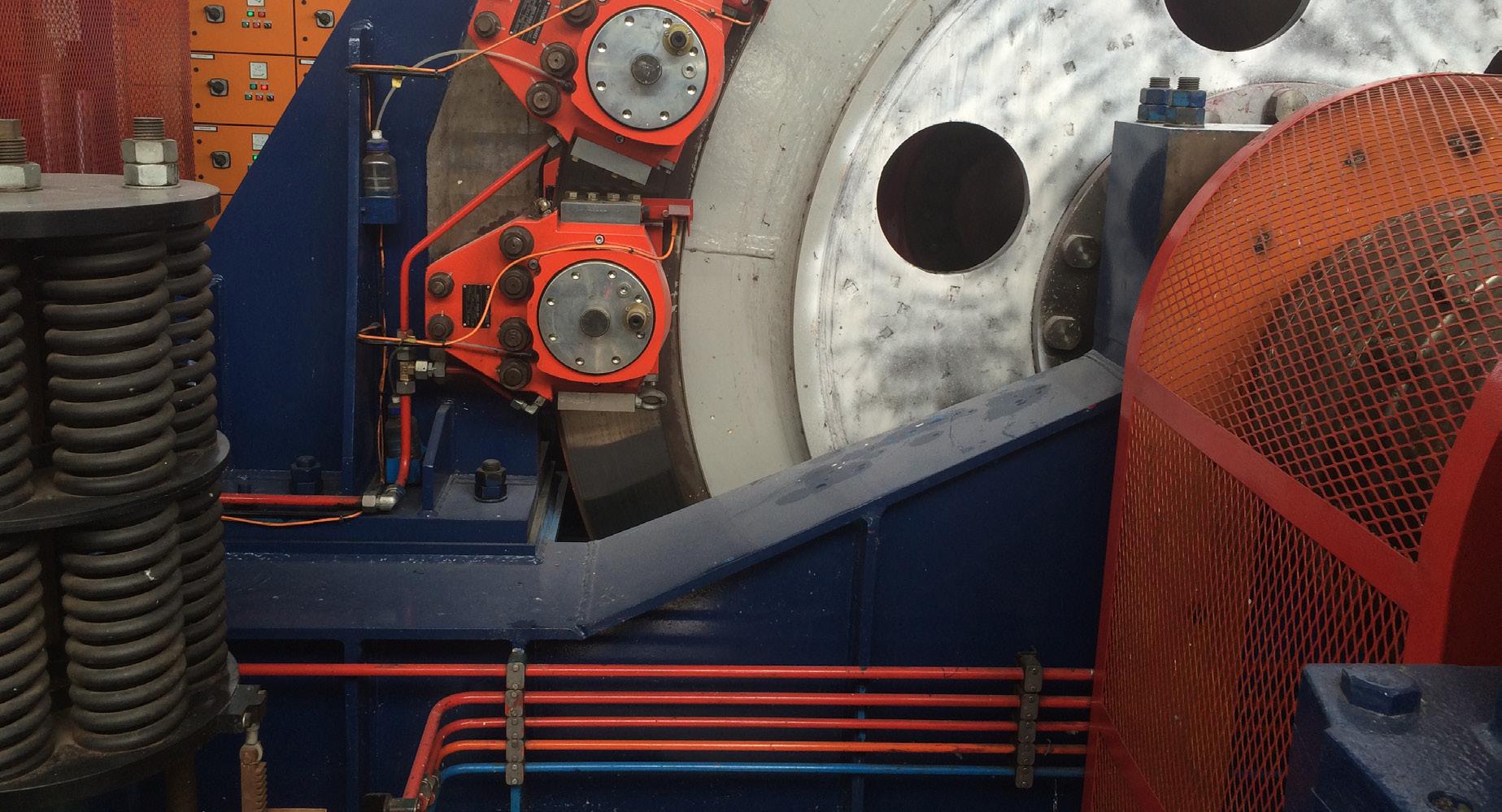
It too benefits from ample facilities, including some 8000 m2 of
factory space in total and a wealth of equipment: boiler maker stations, heavy welding stations, drilling machines and lathes are all to be found under its expansive roof.
There has been extensive streamlining expansion for the EET Group in recent times, and while this has all been hugely beneficial to the overall operations, CEO Trevor Watson explains that it has also been necessitated by factors beyond EET’s control. “The current political situation has been hugely significant,” he explains of the rationale behind the group’s recent moves, with tragedies and controversies in the country reverberating into the market.
4 / www.enterprise-africa.net
//
// RAMAPHOSA IS BUSINESS FRIENDLY AND HE HAS A VERY STRONG MINING BACKGROUND //
“We have had to consolidate massively because of the conflict caused by the Marikana massacre,” he offers by way of example, “and the subsequent decline in mining activity that followed.
“I would estimate that it brought about somewhere in the region of a 30% drop in the amount of business activity in the years after that event in 2012. It has affected both facets of the EET business - the hoisting equipment and the electromagnets. Both were negatively impacted by the massacre, and all the subsequent political events have contributed to a notable diminishing in the business we receive.”
Th is of course tested EET’s resilience, but the group’s response was exemplary. “To be able to function with lower revenue we have had to consolidate our operations, by changing our premises and reducing our staff count,” Watson says of EET’s reactions in the wake of the challenges. “We then switched over to a slightly different form of hoisting, starting out in marine work, and we have moved into repairs on electromagnets for the steel industry.”
EE T’s own astute judgements have been greatly added by the renewed confidence and subsequent opportunities with the changing Presidency. “It will definitely have a positive effect on business,” Watson says of Cyril Ramaphosa’s accession.
“I have actually met the new President myself, and he is very much more in tune with the broader demographics of the country. He is
We are passionate about understanding your specific needs – whether, for home or business insurance, we provide stand-alone insurance options and tailor-made insurance packages that consolidate your insurance into one all-encompassing policy.

Short Term Insurance
YOU CAN’T PREVENT OR PREDICT WHEN THINGS GO WRONG. Find out more: www.pogirgroup.co.za | +27 11 879 7200 Short Term Insurance | Healthcare Solution | Employee Benefits | Life & Financial Planning Pogir Short Term Insurance Brokers - FSP 47395 EET GROUP www.enterprise-africa.net / 5
// OUR LARGER MACHINES FOR MINING PRODUCTS ARE BUSIER NOW THAN THEY HAVE BEEN FOR A DECADE //
INDUSTRY FOCUS: MINING
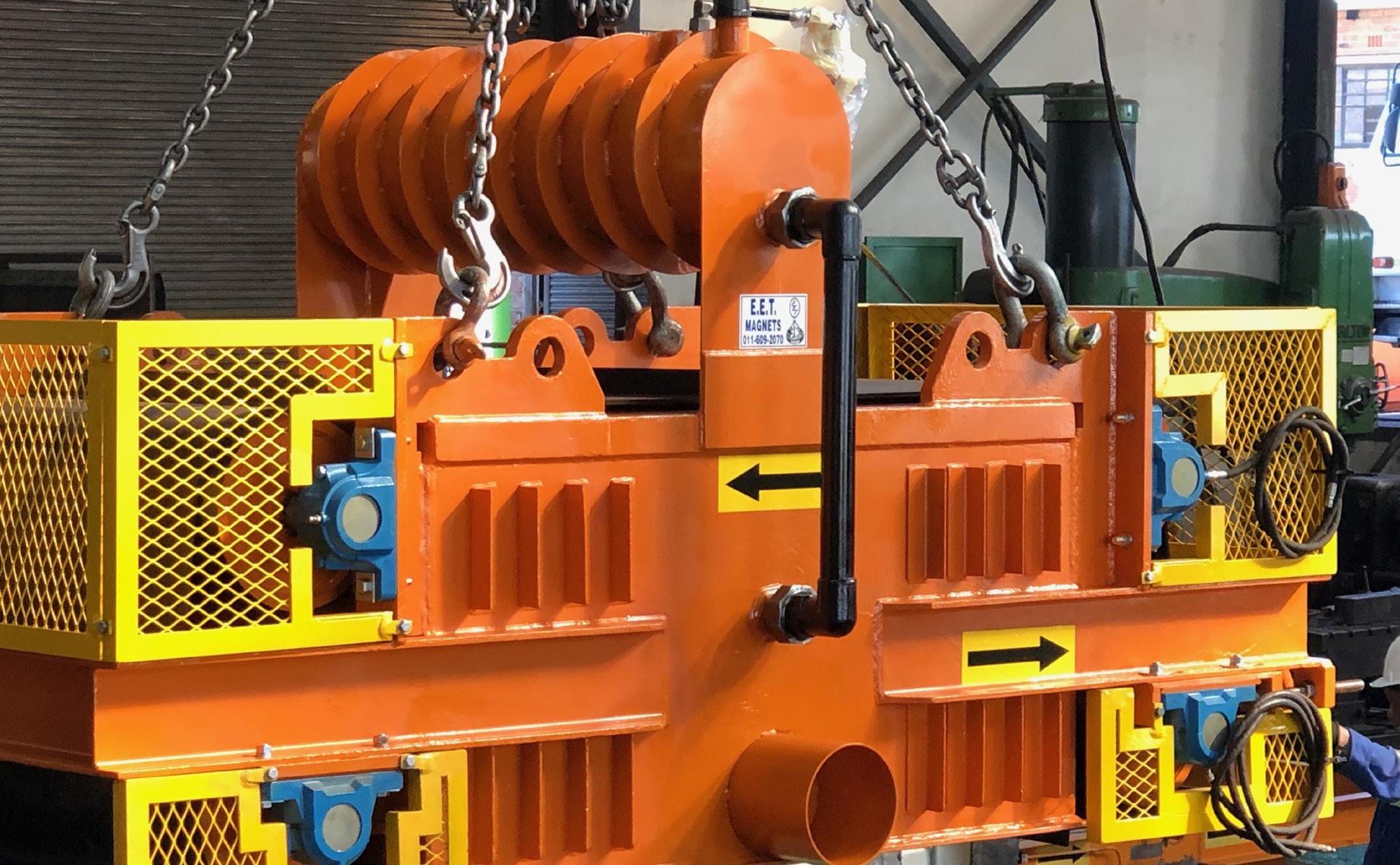
far more approachable by all forms of business and community in South Africa. He is business-friendly, and he has a very strong mining background.
“This is obviously hugely important for us; we have already seen a 10-15% improvement in business confidence, and particular in mining, where our tendering has increased massively. Our larger machines for mining products are busier now than they have been for a decade.
WIDER AFRICA
“I think he is also very active in the African Union, and determined to make the trade between South Africa and our neighbouring states much more streamlined,” continues Watson on how EET can profit from Ramaphosa’s own verve for commerce. “Not engrossed only in South Africa, rather he is concerned with participating in the whole continent,
and we can feel this already in what we do.
“O bviously with our immediate neighbours, like Mozambique, Zimbabwe and up to Zambia, as well as Namibia, we have been doing business ad hoc without formal agreements, as they are traditionally serviced through South African consulting companies and then the product is exported.
“I think those dynamics will change, and will become more favourable going forward, and will then evolve into business further up into Africa, and certainly the rest of sub-Saharan Africa.”
Wh ile all expansion is fraught with potential pitfalls, Watson feels that these are now greatly diminished, to the extent that this is the right time to strike. “Getting paid, first of all, is often rather problematic,” he qualifies.
“Z imbabwe going back to its
own currency is an example of an unknown, as we simply don’t know what to expect; as a result this is a bit of a risk factor. The logistics of trading with Africa are problematic, too. Because it has historically been so corrupt, particularly with control of the border posts, this is something which must be seen to.
“I truly believe that this current
6 / www.enterprise-africa.net
// I THINK THE DYNAMICS WILL BECOME MORE FAVOURABLE GOING FORWARD, AND EVOLVE INTO BUSINESS FURTHER UP INTO AFRICA //
Self-Cleaning Electro-Magnet (Tramp Metal Removal from Conveyor Belts)
government has the appetite to resolve these issues, however,” he goes on, “and make these links much more straightforward to create and maintain.”
While the three core EET divisions of the group have gained many of the headlines in months gone by, the group’s overall strength comes as a result of the intricate workings of all of its composite parts. Take Rotomech, for example; operating from the groupowned factories in Sebenza, Edenvale, since its establishment in the early
1990s it has swelled into a cost-effective company with resources capable of extruding aluminium and copper, and insulating them through one of a multitude of covering materials.

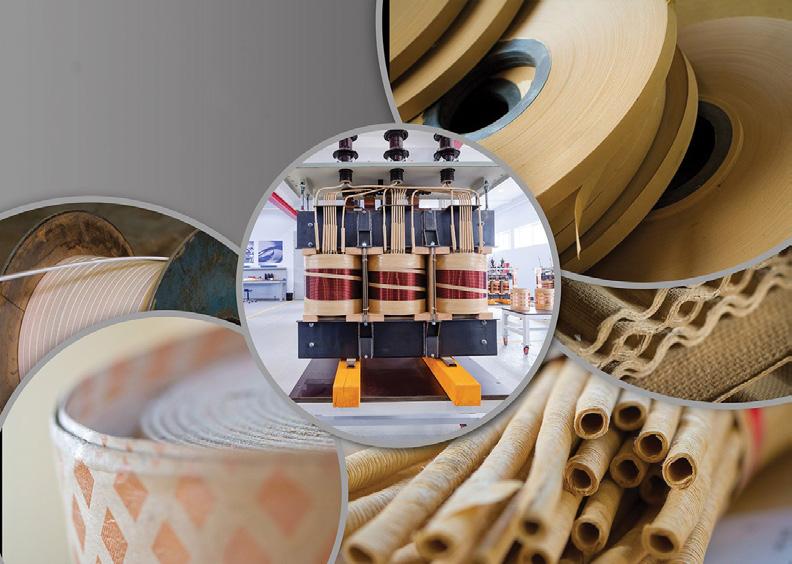


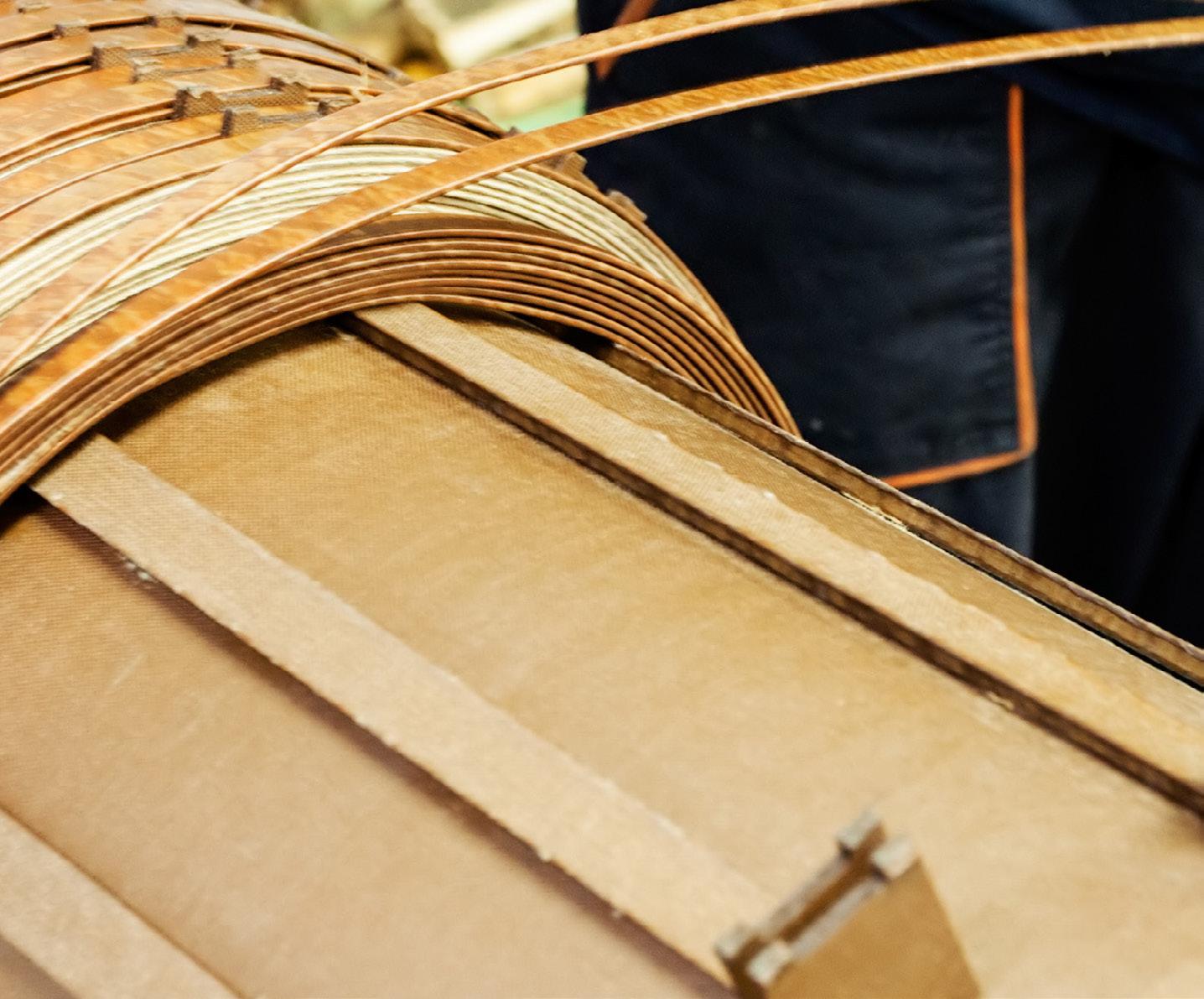
Ho isting and Handling Controls (HHC) follows a similar story, now the sole distributor in Southern Africa for the full range of Sicmemotori AC and DC electric motors, one of the top European players in the field of modern industrial drive motorisation.
As Trevor Watson concludes, together with EET’s effective response to adversity and the changed political nature in the country, it is its unique model which will carry it forth to even greater things. “Our vertical integration has always been one of EET’s real strong points,” he sets out.
“This control of our supply chain is crucial, and due to it we are able to

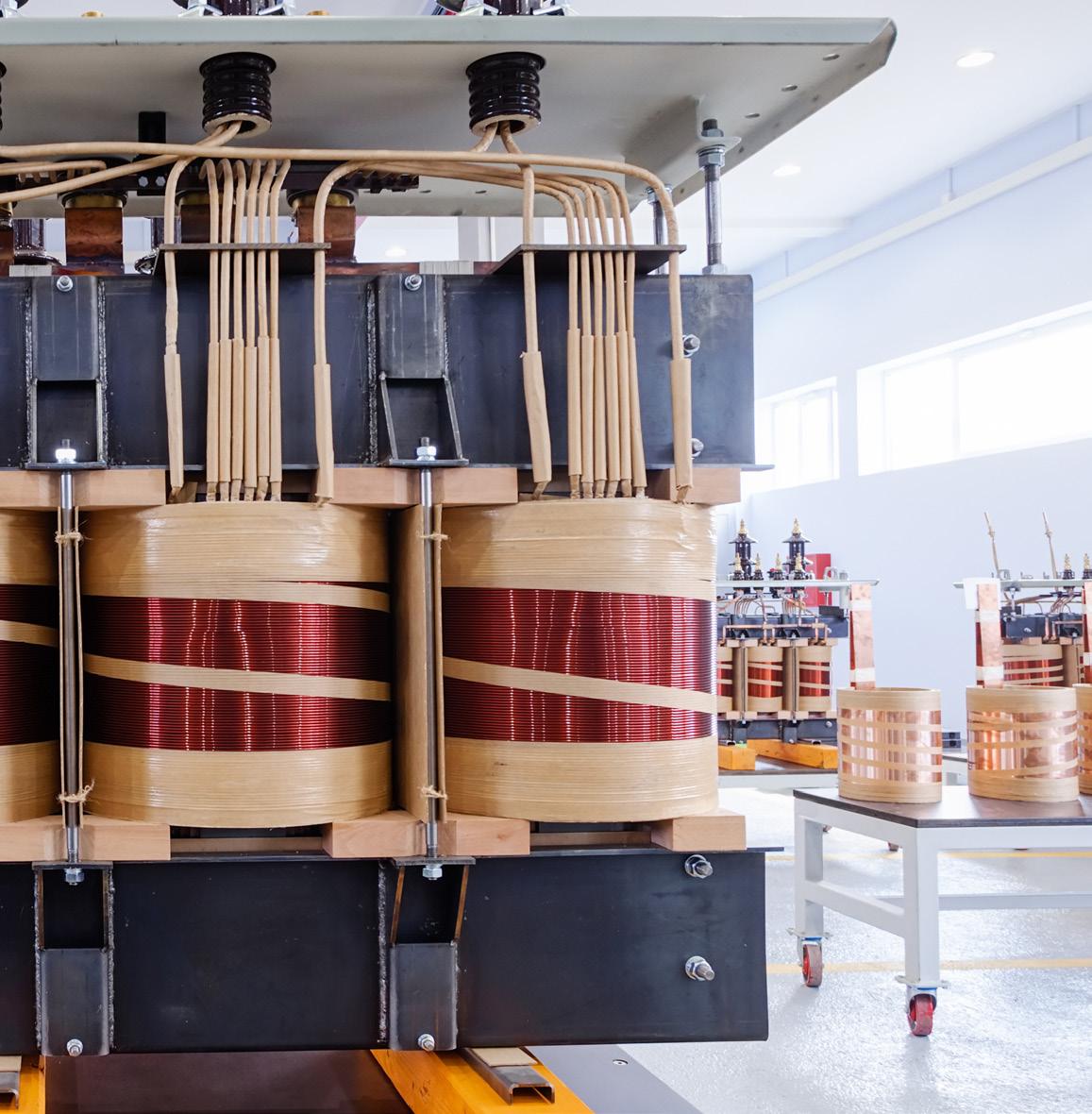
complete a lot of our primary tasks as in-house operations. We have a design department, and we cut our own steel, for example, so within the EET group we are pretty much self-sufficient when it comes to many of our inputs.
“This puts us in a very strong position for the South African market moving forward,” he concludes. “When you are undertaking big projects it also means that the risk levels are greatly reduced. It is a great strength of ours, and alongside our compliance with the South African legislation it has put us in a really strong, stable situation in which to trade and progress into our next phase.”
www.enterprise-africa.net / 7 WWW.EETGROUP.CO.ZA EET GROUP
+27 11 452 4063 • sales@consulation.co.za • www.consulation.co.za ENPAY Transformer Components Consulation Supplies is 51% Black Woman Owned and a proud Level 2 BBBEE contributor Your Electro-Mechanical Insulating Material Specialist Consulation supplies Custom-made Transformer Kits Cylinders Corrugated Board Crepe Paper Tubes Duct Wrap Blocking & Strips Diamond Dot Tubes Extruded & Covered Conductor
// OUR VERTICAL INTEGRATION HAS ALWAYS BEEN ONE OF EET’S REAL STRONG POINTS //
SAKHIWO HEALTH SOLUTIONS
Sakhiwo to Develop SA’s First Academic Hospital Since 1994
PRODUCTION: Karl Pietersen
Multi-skilled health consultancy business, Sakhiwo Health Solutions is the Pretoria-based healthcare infrastructure business that is truly making an impact on the ground in the fight to revitalise the country’s challenged healthcare and medical industry. Building hospitals, sourcing leading technology, designing and planning new clinics, training staff and much more, Sakhiwo is helping to make improvements for the better. Corporate Director, Johann Loubser talks to Enterprise Africa about exciting projects underway right now.
//South Africa is going through something of a healthcare crisis. There is a significantly growing population, characterised by young people – more than 35% of people are aged between 15 and 34. The economic climate remains uncertain with growth figures for 2019 and 2020 not expected to reach above 2%. Because of this, spending on improvements in the healthcare sector have been slow. This is leaving many without access to quality healthcare. In a modern South Africa, this is unacceptable.
Chronic staff shortages, long wait times, equipment shortages, alarming oncology deficiencies, large negligence claims, lack of infrastructure and
maintenance, and growing mental health related issues make for a bleak picture in state hospitals if not addressed with vigour. Private hospitals remain expensive and insurance schemes and medical aids only go so far. The need for investment is dire. Enter Sakhiwo Health Solutions. Founded in South Africa in 2006 by members of the clinical, build, professional and finance industries, the company’s work comes as a turnkey professional service provider and an implementing and multidisciplinary development agency for health facilities. Providing health planning, facility design, project management, technology procurement, health consultancy,
staff training, hospital infrastructure development, commissioning and facility maintenance management and sourcing finance, and much more is the type of work underway right now for this expert organisation.
Sakhiwo, in its relatively short life, has already built three complete hospitals and 25 substantial components for existing hospitals. This is a business that is investing into South African healthcare and realising material results.
Johann Loubser tells Enterprise Africa about multi-billion Rand projects underway right now that will change the face of healthcare in Limpopo, firstly the new Limpopo Central Hospital which will start going up next year.

30 / www.enterprise-africa.net
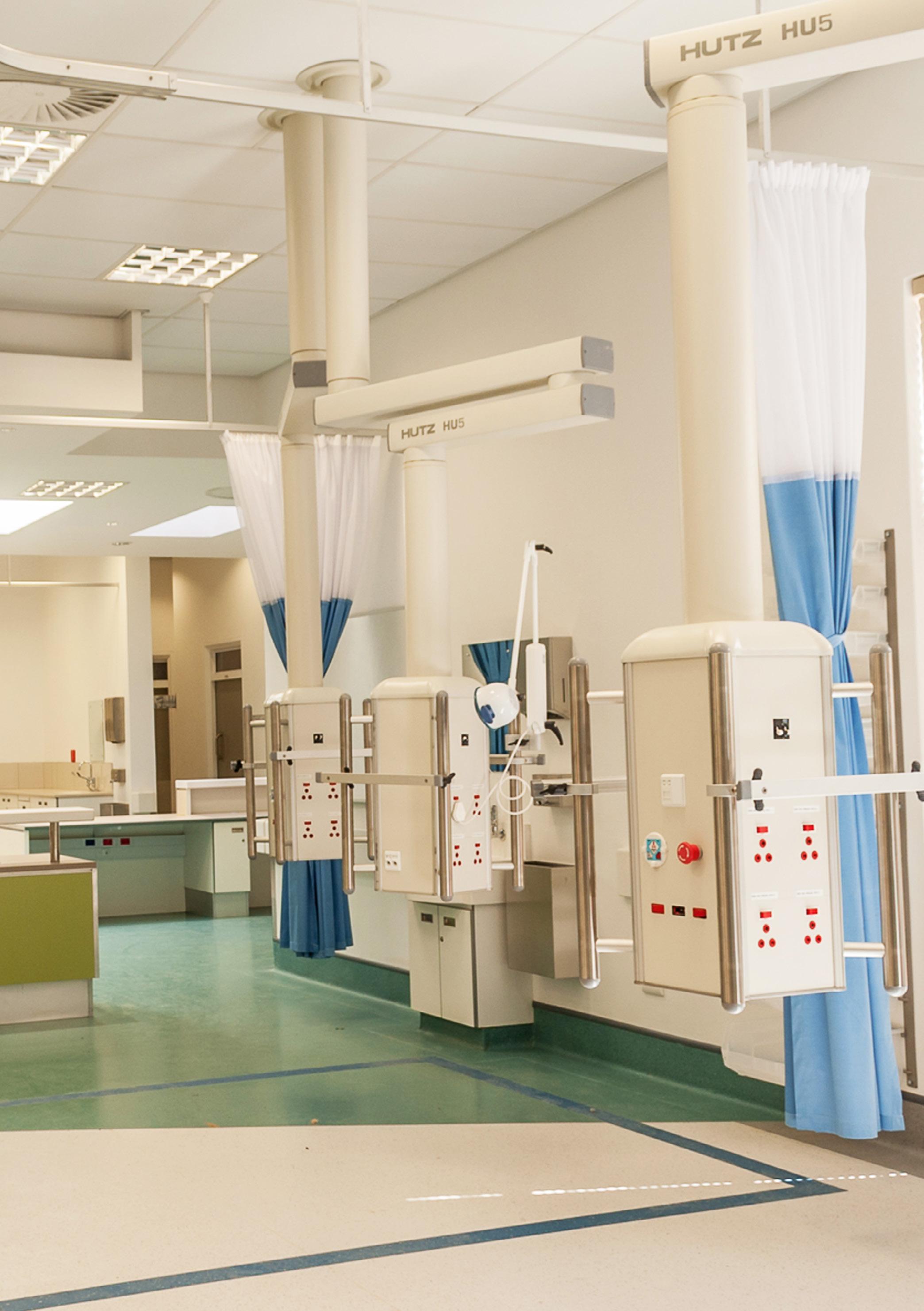
INDUSTRY FOCUS: INFRASTRUCTURE
LIMPOPO CENTRAL HOSPITAL
“It’s an academic hospital and it will be built in Polokwane,” he says. “The total cost is around R4 billion and it includes a new hospital of 488 beds which will be linked to a new medical school, part of the University of Limpopo, which will be on its own site adjacent to the new hospital. It also includes the upgrade of the existing tertiary services of the Polokwane Hospital, so the total complex will be 624 beds available as an academic platform for the training of medical students through the Health Sciences Faculty of the University of Limpopo.”
The province, and the country, has been crying out for a new academic hospital – where medical personnel can be trained – having not opened one in 25 years.
“It will be the first newly built, complete academic hospital built in the country since democracy in 1994. Limpopo currently does not have any platform for the training of medical practitioners so this will become the first hub for the province and will contribute towards the shortage of medical practitioners in the country. Currently, we send medical students to Cuba for training because we don’t have the facility and capacity available in South Africa,” says Loubser.
Sakhiwo will also plan all of the equipment and healthcare technology that goes in to the hospital. This process is normally started around six months prior to completion of the hospital and will normally continue for around three months after completion of the building.
“The budget was approved in October last year by the National Treasury. We are advanced with the design and health planning of the hospital to the extent where the designs will be completed by November and the tender will be published shortly afterwards. We are running the project as two separate contracts with the 488-bed new hospital separate from the upgrade of Polokwane Hospital, but both will go to tender around the same time. The construction period for the new hospital will be 60 months and we are planning for the building process to begin in March or April 2020, ending in around June 2024 when it will be completed and commissioned,” details Loubser.
SILOAM, VHEMBE
In the north of the province, close to the Nzehelele nature reserve, the Siloam Hospital will receive major investment. Announced as a Presidential Project some eight years ago, the project will add much-needed capacity for the area.
“Vhembe District is probably one of the most neglected areas of the country in terms of provision of sufficient hospital and healthcare services,” admits Loubser. “It is a Presidential project, announced by our previous President as one of the mega projects in 2011. It has taken a long time to get to where we are currently, but it will be a 230-bed hospital with upgrades to components of the existing hospital including the psychiatric ward and mortuary. The total value is around R1.2 billion including construction and equipment. The first phase, the psychiatric ward and mortuary, was out on tender and was recently concluded and accounts for around R40 million. It is vital to get underway with these upgrades to relieve current pressure on the hospital.
“The new component of 230 beds will be built on the existing site of the Siloam Hospital which is an old missionary hospital in a very dilapidated state. The existing hospital will remain operational for the duration
of the construction period.”
The tender will go out in September and the duration of construction will be 48 months. Sakhiwo is responsible for planning and design of the hospital, procurement of equipment, and project management of construction and commissioning of the facility.
“When the hospital becomes operational, we will decant the patients from the old hospital into the new hospital and we will begin to plan part demolition of the old hospital and repurposing of old buildings on the site,” explains Loubser.
HEALTHY EASTERN CAPE
Like Limpopo, the Eastern Cape has a need for new and updated hospital and health services, especially in more rural and remote locations. Sakhiwo is bringing its expertise to the Eastern Cape Province to provide a range of solutions that will boost the entire industry in the region.
“In the Eastern Cape, in Tabankulu, we are working on the Sipetu District Hospital. We are already onsite and we are well advanced with construction, anticipating completion towards the end of 2020 with commissioning in early 2021. This is also a very remote area with few services and while there is a hospital on the site, that we have kept open during construction, it is a dilapidated building which causes the provision of poor services,” says Loubser.
“Cecilia Makiwane Hospital is the most recent project that we have
32 / www.enterprise-africa.net
// APART FROM BRINGING FACILITIES TO THESE AREAS, WE ARE ALSO CONTRIBUTING TO JOB CREATION IN REMOTE AREAS //
// IT IS A 530-BED HOSPITAL WITH A TOTAL COST OF R1.5 BILLION, CREATING A LOT OF JOB OPPORTUNITIES DURING CONSTRUCTION //

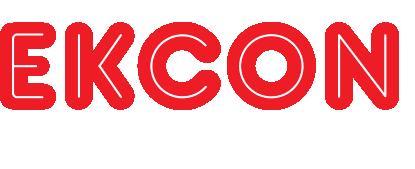
INDUSTRY FOCUS: INFRASTRUCTURE
to job creation in remote areas. It’s challenging to build in these places and there is a lot of unemployment so there is a lot of focus on all of these projects to use local content, local labour and local SMME contractors. The target for all of these projects is to employ 30% local businesses, labour and content,” details Loubser.
CONTINENTAL DEMAND
handed over and we are still doing facility maintenance on the project. The hospital itself was actually commissioned in October 2017 and inaugurated by the then Vice-President Cyril Ramaphosa. It is a 530-bed hospital with a total cost of R1.5 billion, creating a lot of job opportunities during construction. It was an existing old barrack-style hospital in a dilapidated state – the buildings had been condemned by the municipality some years ago. We support the facility for a period of two years.”
When completed, Cecilia Makiwane Hospital was the single biggest hospital built in the country since 1994, kitted out with world-leading technology and R360 million of new equipment and furniture, demonstrating Sakhiwo’s impact on health services in South Africa.
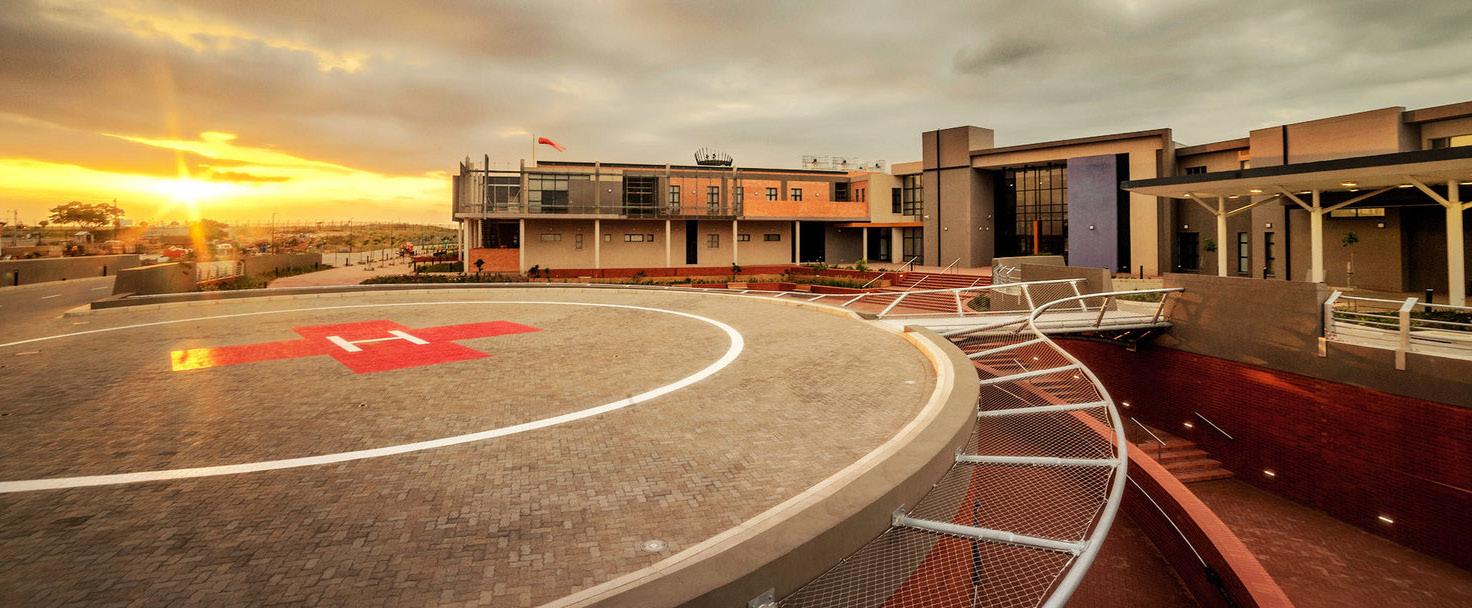
“Apart from bringing facilities to these areas, we are also contributing
Three hours north of Cecilia Makiwane, in Umtata, Sakhiwo is active at the Nelson Mandela Hospital, planning a new oncology unit. Currently, Umtata doesn’t have an oncology facility and patients are referred to East London’s Frere Hospital.
“There is a big need, and the turnaround to get an oncology department up and running is three to four years, so the sooner we can get the funding sorted and get started, the better,” says Loubser.
Sakhiwo is also responsible for the maintenance management of all the hospitals and other health facilities in the Province and runs a Call Centre and Maintenance Control Centre to cope with the huge demand for maintenance to buildings and mechanical and electrical installations. Upgrades and refurbishment of numerous hospitals forms part of the implementation of this contract.
Across Africa, access to quality healthcare remains an issue at the front of everyone’s mind. Research suggests that almost half of all deaths and about a third of disabilities in low and middleincome countries could be avoided if people had speedy access to emergency healthcare. Often, people are forced to make risky journeys over long distances to access hospitals that are outdated and understaffed.
Sakhiwo has recognised this need and is building relationships across the continent so that more and more quality hospitals and clinics can be developed.
“We have been involved in Namibia for a few years and we have been planning and designing new hospitals which are desperately needed but we are waiting for funding to be approved. We are involved in various stages of development and planning in Zimbabwe, we are working with the Avenues Clinic doing a new 100-bed women and children hospital with the private sector. We are involved with hospital development from the private sector in Botswana. We are involved in Ghana with some private sector hospitals and we are in discussions with the Ministry of Heath on public hospitals which will be done on a financed EPC
34 / www.enterprise-africa.net
// IT WILL BE THE FIRST NEWLY BUILT, COMPLETE ACADEMIC HOSPITAL BUILT IN THE COUNTRY SINCE DEMOCRACY IN 1994 //
basis. In Cameroon, we are busy with upgrades for Presbyterian Church’s hospitals. We are also building a new hospital there and we are engaged with the government about upgrading the existing public hospitals. In Kenya, we are busy with four private sector hospitals in a number of the provinces. We are also looking at Uganda and Nigeria for further opportunities,” explains Loubser.
The company seeks local strategic partners in every country in which it operates and spreads work around various organisations in a drive to create employment.
“We want to leave a lasting impact and it’s not a matter of moving in and getting out,” says Loubser.
Usually, the most important professionals to find are electrical and mechanical engineers as this is a key factor to successful hospital infrastructure. Sakhiwo brings its own health planning and health technology planning and has a core team of architects and engineers that provides support and skills transfer where and when required.
“We like to establish a footprint with local consultants and we work with selected engineering firms and architects. We cannot always work with one single company. When working with government, we are obliged to spread work across various consultants. In the Eastern Cape alone, we work with 66 local consulting firms that handle architecture, engineering and quantity surveying and they sub-contract to a number of local SMMEs and smaller black empowerment companies. The same goes for our work in the rest of Africa. We contract a core team made up of architects and civil, structural, electrical and mechanical engineers and we ensure skills and opportunities are shared.”
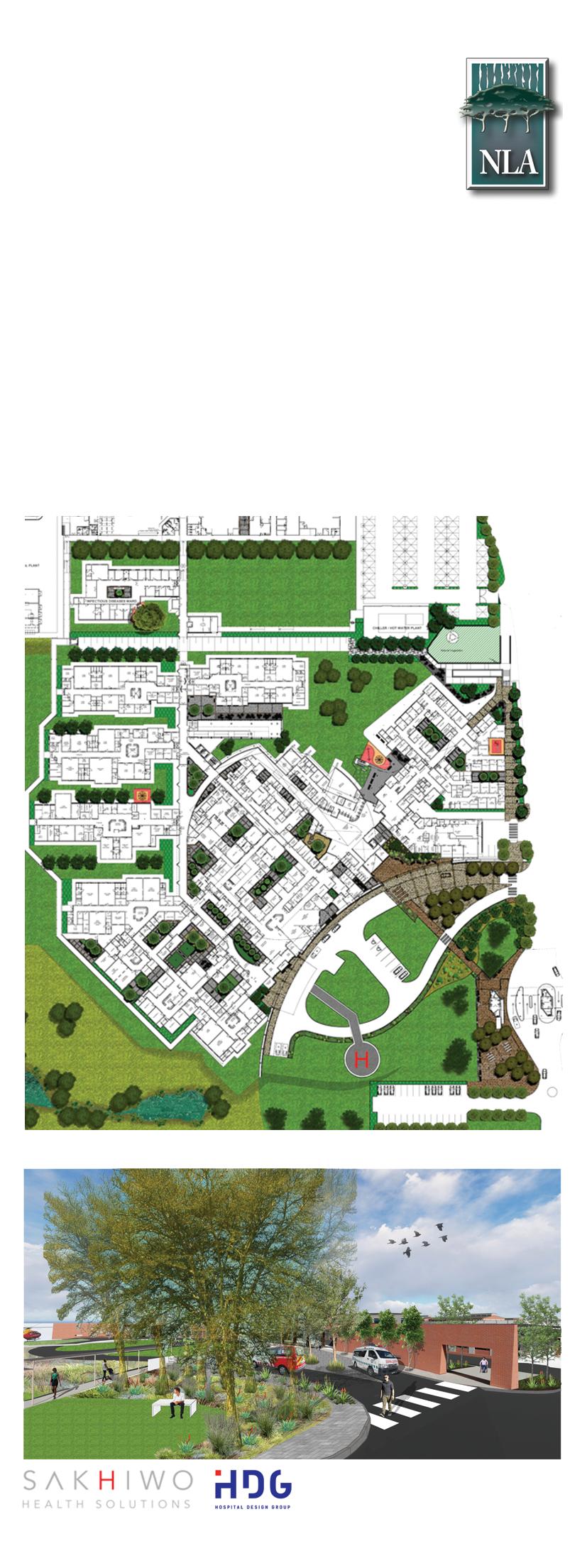
While the demand across Africa is large, supply does not always match up and this is largely down to funding issues.
“The only thing that holds progress back is the availability of capital,” admits

SAKHIWO HEALTH SOLUTIONS
www.enterprise-africa.net / 35
INDUSTRY FOCUS: INFRASTRUCTURE
Loubser. “The needs exist - that is not debateable. It’s just about the capital being available. Unfortunately, with a public hospital it performs a purely social function and there is no revenue stream which in a public-private partnership is a requirement for the private partner to generate income. So, we rely on the ability of government to fund the project or repay a loan for the hospital, and hospitals by nature are very expensive.”
Fortunately, Sakhiwo is a full service, turnkey provider and can bring solutions from start to finish, addressing issues right the way through a project lifecycle. This is a unique ability and sets the company apart from others who can only provide solutions for single aspects during a development project.
“In Africa, the delivery platform is also a problem, and this is where Sakhiwo plays an important role,” explains Loubser. “We can go to the financial sector and show funders what we have done and what we can do. We explain that we do things as a one stop shop so there are no gaps in the delivery process. There are very few players on
the continent who can work like this. We are the only African-based company that can provide a comprehensive service on this basis. There are some European and North American players that are involved in delivering a turn-key solution, but they are mainly providers of equipment at their core.
“The problem in splitting the different functionalities is that there is no coordination and delivery then takes a lot longer than it should, so the real solution is to have a full turnkey with planning, design, construction and equipment provision,” he adds.
PRIVATE HOSPITALS
While Sakhiwo’s work has historically been involved with state hospitals and healthcare facilities, the future will hold more of a focus on the private healthcare industry. Loubser is keen to develop infrastructure that is cheaper to build, without compromising on service quality, for those in more remote regions.
“Alongside African Financial Group, we have formed a new company called African Clinical Holdings, a subsidiary of Sakhiwo, and we have the licences
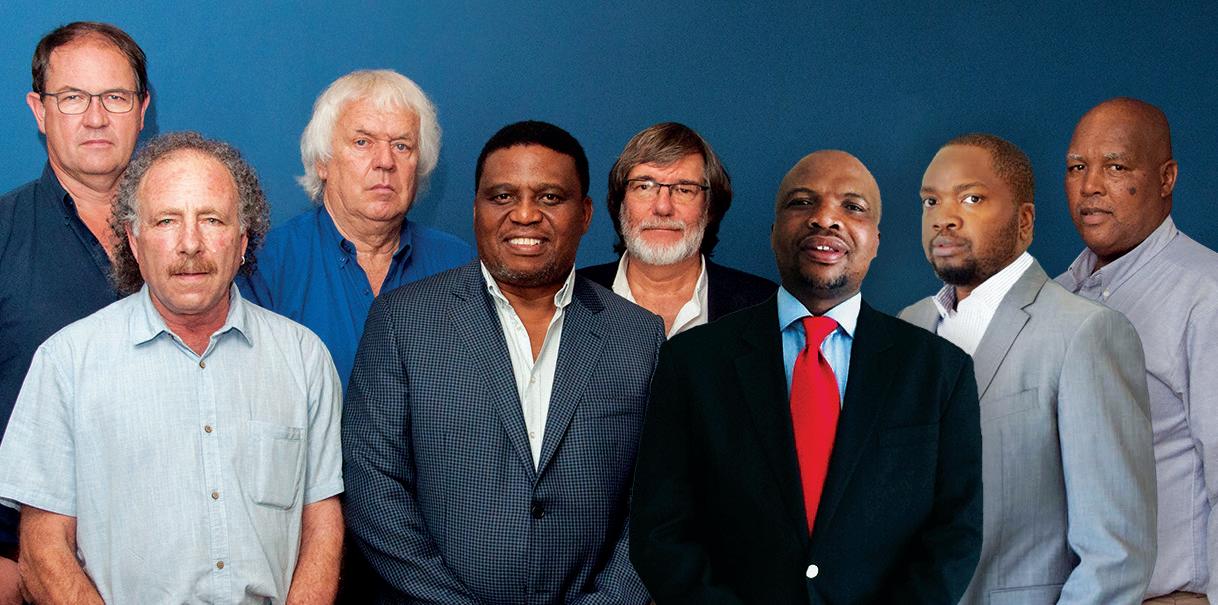
to 15 new licenses, some of which we have acquired ourselves and some which we have acquired from other entities. We are creating a platform for the development of independent new hospitals outside of the main groups in South Africa. We are coming with a new concept of hospital which is more budget-friendly where we decrease the cost of construction but still deliver a service which is equivalent to any private hospital and bringing that closer to the more rural communities and periurban areas in the country,” he says.
“We hope to cater for medical aid members that are on low cost options and the section of the population that is employed but un-insured. The escalating cost of private healthcare has constrained access even for medical aid members, as they run out of benefits early in the year. Our focus will be on what we call the ‘half insured’ or the ‘employed but un-insured’. There are around 15 million people in this category in the country. We believe that we should be able to bring sustainable and cost-effective private healthcare to the market through more
36 / www.enterprise-africa.net
left to right : Braam van der Hoven - Director, Hylton Schwenk - Manager Eastern Cape, Piet van Heerden - Director, Dr Gil Mahlati - Executive Chairperson, Johann Loubser - Corporate Director, Dr Tebogo Mphake - Chief Executive Officer, Vincent Sahanga - Director Africa Projects, Benjy Mokgothu - Operations Director
innovative reimbursement methods and healthcare delivery models and through collaborative relationships with medical aid schemes and medical professionals. It’s a whole new drive into the private health sector in South Africa.

“We also believe that this new concept of budget hospitals with a clear identity and recognised level of service, will fit in well with the planned National Health Insurance (NHI) in the country, also in terms of accessibility in terms of where they are located.”
One of the key problems for new private hospital developments, is that financial institutions cannot always realise security. “A hospital is a dedicated building and there is no real security in the bricks and mortar,” says Loubser. “The security sits in the operations and management and, outside of the few large hospital groups, there is no real company that can manage hospitals for independent operators on a large scale. Because there is no strong management, financial institutions are not always willing to fund them, despite seeing the necessity of them. This is why we have started Sakhiwo Hospital Management to provide those core management skills that allow operations to realise the returns and service their debts to the financial institutions.”
This novel and innovative approach to development in the industry is proof that Sakhiwo is committed to the ongoing, sustainable upliftment of the entire healthcare sector. The company holds the vision of being an ‘outstanding leader in health
infrastructure development, while meeting the needs of the client and the community’. Considering the state of healthcare across South Africa, and the wider SADC region, Sakhiwo’s efforts are already demonstrating that this vision is being achieved. The company has major growth opportunities ahead, and with a significant project portfolio lined up for the future, now is a promising time for this expert organisation.
“We are very bullish,” states Loubser. “We realise that now is the time to look at economising in terms of building methods and structures. It is a time for us to move more aggressively in the market. We are fortunate because we have this pipeline of projects - our pipeline of hospital projects currently is in excess of R10 billion.”
FACILITY AND EQUIPMENT MAINTENANCE
One major area of neglect in public sector hospitals is the maintenance of hospital facilities and the mechanical and electrical installations as well as the maintenance of bio-medical equipment and health technology. The structure and management to maintain hospital infrastructure and bio-medical equipment, is very extensive and requires a high level of skills. Especially on the bio-medical side there is an acute shortage of bio-medical engineers and technicians in South Africa and the rest of the continent.
Sakhiwo has been contracted for a total of seven years to do maintenance management for two Provinces in South Africa which covered in excess
of 150 hospitals and other health care facilities and over 1000 clinics. The management structure consists of a Maintenance Control Centre with a 24/7 call centre and an inspectorate that manage reactive and scheduled maintenance with the assistance of a computerised maintenance management system with an active asset register that allows for proper life-cycle management of the assets.
Sakhiwo has recently formed a joint venture company with VAMED Services and Management GmbH, based in Austria and one of the largest companies in Europe that provides bio-medical services and maintenance. VAMED Healthcare Services SA will be providing extensive bio-medical maintenance management and support services, including first line maintenance through a structure of maintenance hubs in South Africa. This service will also be extended to the private hospital sector and other countries in Southern Africa.
Sakhiwo is a problem-solving business. The word itself is a Nguni (Zulu and Xhosa) word meaning ‘to be in the process of building’ – not only building structures but also building relationships. “Our motto is ‘let’s build health’ and it ties into our meaning as Sakhiwo,” Loubser concludes.
Where investment and expertise are really needed, Sakhiwo is stepping up.
www.enterprise-africa.net / 37 WWW.SAKHIWO.COM SAKHIWO HEALTH SOLUTIONS
LODOX
Life Saving South African Innovation
PRODUCTION: David Napier

In a medical situation where a doctor needs a full body clinical overview of a patient, Lodox’s Xmplar-dr digital x-ray machine can image the entire body, with fantastic clarity, and only a small radiation dose, in a matter of seconds. All this whilst the doctor has full access to the patient. Designed and manufactured in South Africa, this is an innovation that is changing the face of medical imaging in emergency trauma and forensic pathology. “Lodox saves time, saves money and saves lives,” says CEO Mbuyazwe Magagula.
A 30-year-old construction worker was admitted to Rashid Hospital in Dubai, following an approximate nine metre fall. Doctors were rightly concerned – these types of injuries carry a high mortality rate as patients usually present with multiple, dispersed injuries. Without the capability of producing a single full body image, multiple x-ray views would have been needed to fully assess the patient’s condition. This not only takes a long time, but also exposes the patient to high doses of radiation. The use of Lodox full body x-ray imaging reduced
the overall radiological examination time significantly, allowing for rapid assessment and movement of the patient to the operating theatre. The benefit of acquiring full-body diagnostic image fast to provide full diagnosis of all major injuries in a short timeframe is evident in this case.
Similarly, in 2017, at the University Hospital in Bern, Switzerland, a 19-yearold female patient was admitted, suspected of ingesting a foreign object. Doctors were rightly concerned – in the USA alone, 1500 people die each year in similar circumstances. The patient had
a psychological disorder and was not cooperative with emergency room staff. Needing to assess the situation, doctors settled on the Lodox over a CT scan or a conventional x-ray, which were both ruled out. The patient refused to lay in the CT scanner and the high dosage, along with image overlapping, ruled out conventional x-ray techniques. The solution came in the form of the South African-designed and manufactured Lodox full body scanner. Emergency room staff were able to use the scanner to perform a full body scan, very quickly, and with a very low radiation dose
38 / www.enterprise-africa.net
//
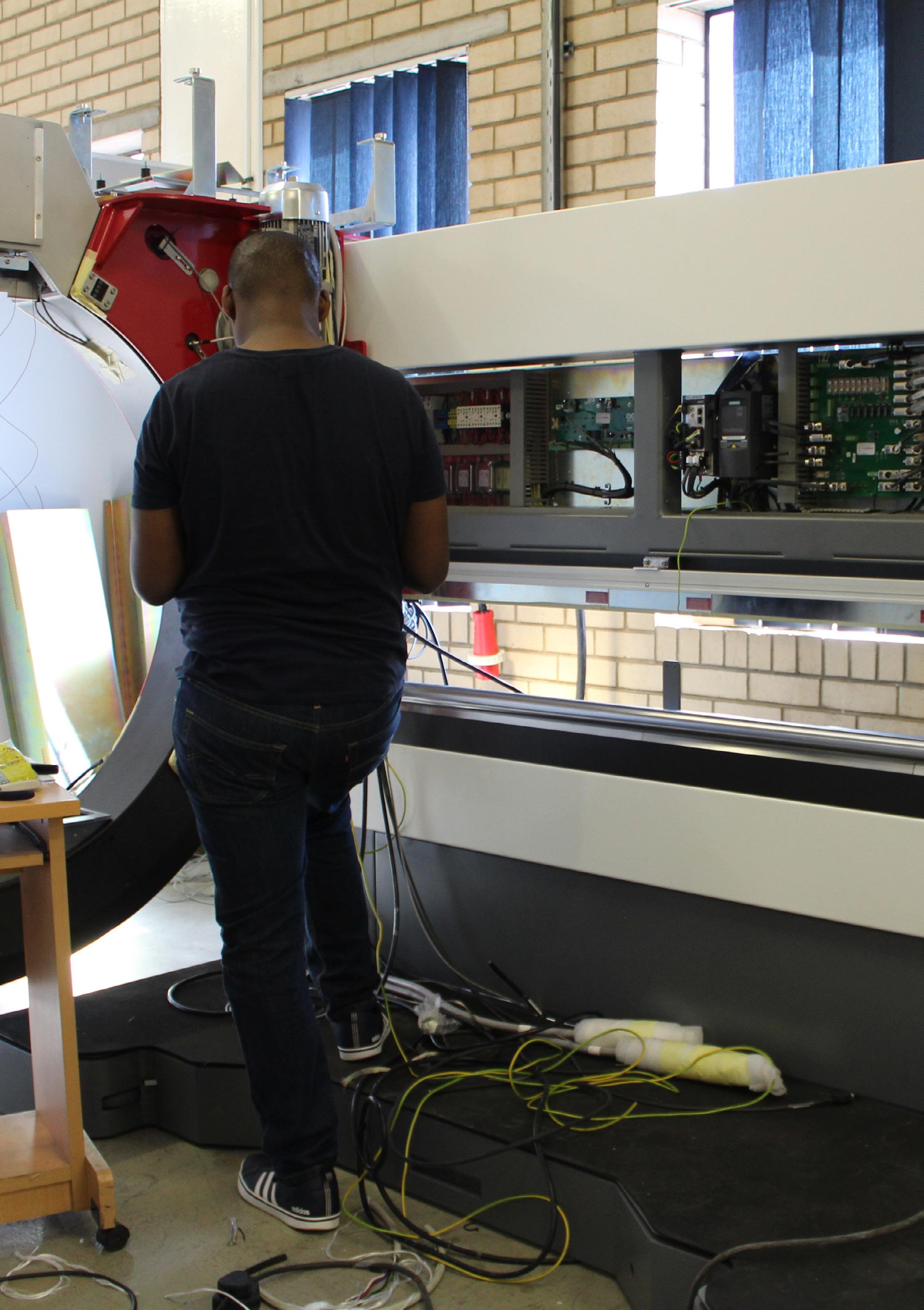
INDUSTRY FOCUS: TECHNOLOGY
while still gaining an image of supreme quality and clarity. This was seen as the safest option for the patient who had only given limited medical history to staff at the hospital.
Speed, image quality, low radiation dosage and full body image capability is the nature of the Lodox business. The Lodox allows for whole body imaging at high speeds to enable quick, informed decision making in a way that is safe for patients and hospital staff.
Ba sed in Johannesburg, the company’s roots go back to the diamond mining industry. In the 90s, one of South Africa’s big diamond mining houses was looking for a technology that could quickly and safely scan employees to stop diamond theft from the mines. With hundreds of miners moving in and out of the mines each day, the process had to be seamless. With some diamonds being relatively small, the process had to be detailed and provide highquality imagery. And with employees being subject to the scan every day, radiation safety was a big concern. A team of R&D engineers were tasked with developing a solution.
The result was the first Lodox
scanner – the Scannex Mark 1 security scanner, developed in 1995.
The success of the technology was great. Theft from mines was vastly reduced. The innovative minds behind the product quickly saw opportunities for expansion into medical applications.
In 2002, Lodox was formed as an independent company, breaking away from the mining industry. The idea to use the product in the medical field had long been a target for the young business and, following successful prototyping in Cape Town’s Groote Schuur Hospital, the first international order was received for an installation in Maryland Shock Trauma Centre, Baltimore, USA.
Before long, the advantages of using a Lodox machine were becoming clear for all to see and medical facilities around the world started looking to South Africa for supply.
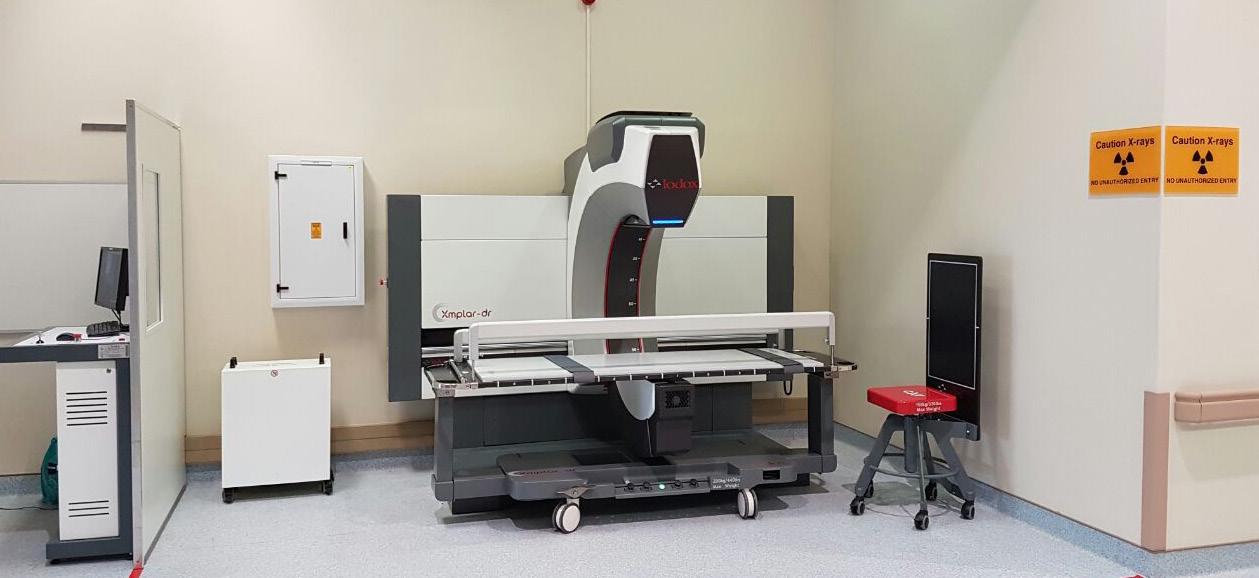
CLEAR, NO GREY
A flagship moment for this inventive business came in 2013 when a Lodox machine was featured in an episode of the hit US medical drama show, Grey’s Anatomy. The TV series, which was one of the highest-rated and
most commercially successful of all time, showed the machine in use in an Emergency Room during episode 18 of the ninth season.
This helped to catapult the Lodox name into the public space in South Africa and around the world.
Today, Lodox is focussed on growing its presence internationally while always delivering the best possible service to clients. In the future, Lodox will use its strong base in emergency trauma and forensic pathology to attack new geographic markets while leveraging the qualities of its product to achieve further growth and success.
40 / www.enterprise-africa.net De Aar Hospital
// WE BELIEVE IN THE PRODUCT, WE BELIEVE IN ITS ABILITY TO MEET CUSTOMER NEEDS AND MAKE AN IMPACT IN THE HEALTH SECTOR SO LONG-TERM, WE STAND BEHIND IT //
“The markets that we are actively targeting are emergency trauma and forensics in our local market and the neighbouring countries in southern Africa, namely Botswana, Namibia and Swaziland,” explains CEO, Mbuyazwe Magagula. “We are also looking into East Africa, the Middle East, the Far East, and Eastern Europe. We are also looking at growing, through our subsidiary in North America, into Central and South America. We really believe that Lodox has a massive impact on how trauma is handled and how forensic facilities and mortuaries can operate. We think that it is particularly useful in developing countries that do not have the resources that developed countries have in terms of skills and funds. Lodox is well-positioned in terms of price, operating costs and skills required to operate the machine.”
Compared to CT scanning, MRI scanning, or conventional x-ray technology, Lodox machines can complete a full body scan in just 13 seconds, producing images of extremely high quality with the radiation dose a fraction of what a patient would receive with these modalities. The negligible scatter dose also makes it safer for operating and nearby staff. The system is user friendly and operators do not require specialised training.
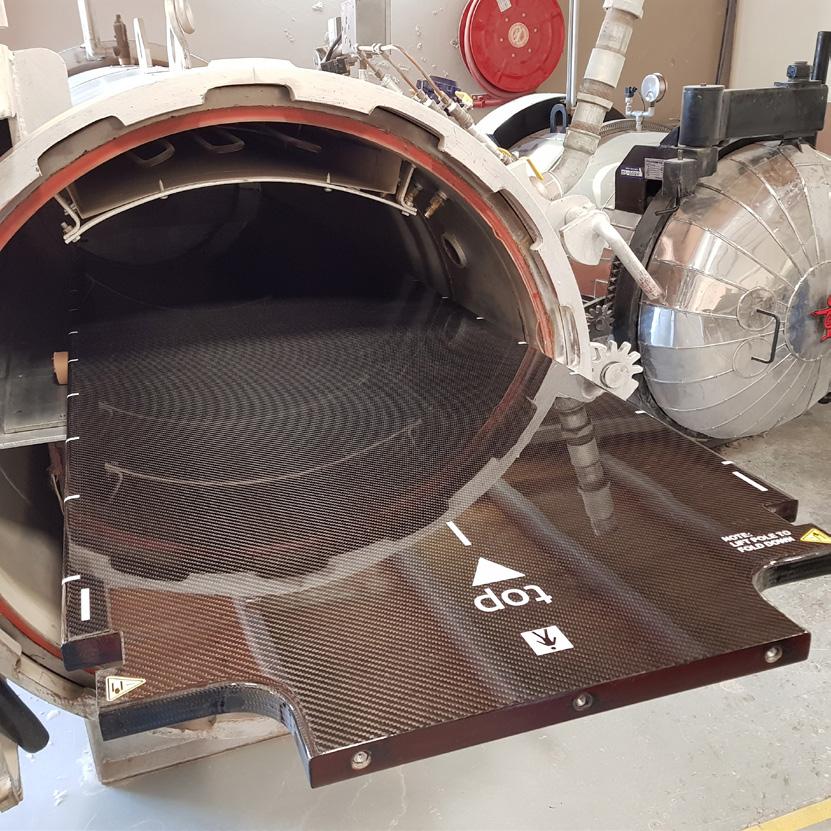
Th e future holds further improvement and innovation. Building capacity, finding parallel uses, and improving access will all be undertaken soon.
“Our facility has the capacity to produce 30 machines each year,” says Magagula. “With the people we have and the equipment we have, we are not quite utilising that capacity so we could up our production without increasing our facility. When we get beyond 30 machines per year, we will certainly look at employing more people in manufacturing, sales, marketing, and service and maintenance.
“We are always looking at how we can improve its features – can we
LST (Lightweight Structures Technology) is a family owned organization at the forefront of manufacture of composite structures and components. LST has been in business for over 20 years. Our technology is new and innovative and we therefore strive to be known as the market leader in our field. We realise that a great proportion of our marketplace is the supply of safety critical components. We therefore undertake to comply with our customer requirements, both as specified by the customer and known by our technology, to reasonably ensure the safety of the end user.
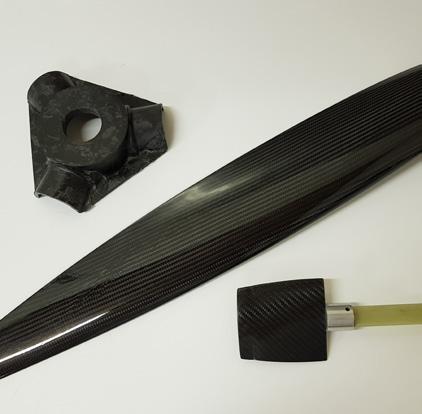
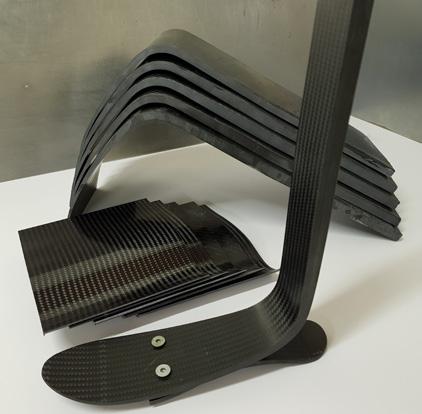

LODOX
+27 12 803 8338 LST@iafrica.com www.enterprise-africa.net / 41
INDUSTRY FOCUS: TECHNOLOGY
improve the speed, can we lower the dose, can we improve the image quality? Currently, we are looking at the detector, which helps capture the image, to see if we can improve the technology to make sure we get a sharper, clearer image which can also show tissue. The project is still in development and regulatory requirements still need to be fulfilled and we hope to launch in the near future.
“The other thing we are looking at, because it’s a high-capital product, price can be an issue and becomes a barrier for some facilities, so we are trying to develop an entry-level model which might not have the full feature set of the Lodox machine we have now thereby being able to get the price down. This may allow smaller facilities that don’t have high caseloads, and might have budget constraints, to at least purchase one of our products,” he adds.
In 2012, Lodox launched the Xmplar-dr, an improved version of the machine, which has been described as a ‘shift in digital radiology’. It is the only DR system that provides a single (non-stitched), high-resolution radiographic image of the entire body (up six feet body length). The machine provides safety improvements for staff, significantly reduced radiation dose for patients and uninterrupted resuscitation during imaging.
Again in 2017, Lodox launched the most recent iteration of the Lodox scanner: the eXero-dr, the first and only full body, high speed, low radiation digital radiology solution specifically designed for forensic pathology. The full body, fast, low radiation format makes imaging faster and easier for
staff thus improving throughput, efficiency and worker safety, all in the promotion of justice.
CROSS SELL
Because of the nature of the Lodox business, manufacturing medical devices, there are several other obligatory processes that run alongside its core activities. In true entrepreneurial style, Lodox sees opportunity with these processes.
“Because of the capability that we have in terms of quality management, service and maintenance, and clinical applications, we see opportunities for growth. We can identify other device manufacturers in southern Africa, that are smaller and don’t have inhouse quality management capability, and try and assist them with that service,” details Magagula. “On the service and maintenance side, you typically find that the Lodox machine is one of several machines that are provided by various manufacturers. Our technicians understand x-rays and they could service and maintain third-party manufactured machines as well. The difficulty with that is the confidentiality agreements, but we do find that hospitals struggle with having four or five different providers of x-ray products.”
If the company can expand these channels, it will start to become a fully integrated medical supplier to South Africa’s healthcare and other significant industry sectors.
“With the current product we have, we believe we can grow,” says Magagula. “We believe we can create awareness in other niche applications such as mass-disaster situations, paediatrics, the military, victim identification and anthropology. We don’t have to push huge volumes but combined together, those could become significant for us.
“We are also looking at a product, which is only in the R&D phase at this stage, which is used in primary healthcare to help pregnant women detect difficulties with pregnancy and prevent stillbirths. Clinical trials are
being conducted and we are hopeful that we can get the necessary internal approvals and regulatory registrations to manufacture and sell the product.”
The company’s involvement across the entire value chain brings knowledge and experience that others might not have, and this is essential for an aspiring organisation. The company boasts its own inhouse R&D department, inhouse engineers, software developers, mechanical and electrical designers and a strong production department. While there is outsourcing of a number of components, all assembly is done inhouse. Testing and quality checking is all completed by Lodox, and the company can even handle installation, training of users, and detailed service and maintenance.
In the future, Lodox will also use its experience to determine how AI and machine learning principles can be added to the product. According to Magagula, there is appetite and opportunity for exploration in these areas and the company will push for innovation while always trying to increase brand awareness within its target markets.
42 / www.enterprise-africa.net
// WE ARE ALSO LOOKING INTO EAST AFRICA, THE MIDDLE EAST, THE FAR EAST, AND EASTERN EUROPE //
// LODOX IS A ONEOF-A-KIND MACHINE – THERE IS NO DIRECTLY COMPARABLE MACHINE. TO MAKE A QUICK, SAFE ASSESSMENT IN AN EMERGENCY ROOM, WITH SUFFICIENT INFORMATION AND CONFIDENCE – THERE IS NOTHING LIKE LODOX IN THE WORLD //
SEEING THROUGH COMPETITION
Because of the complexity and significance of machines involved in the healthcare industry, manufacturers can usually charge a premium for their work. This encourages many to enter the market. Needs of customers are always developing and there is always room for improvement, so it is vital for companies to be innovative.
Lodox is the perfect example of how to enter and succeed in the market – do things faster, with better quality, and always fulfil a need. Because the company has focussed on this mantra, it has continued to grow in an industry that is crowded with competitors.

“We have around 98 active installations. We hope that by the end of the year, that number will get to around 108,” says Magagula.
“Lodox is a one-of-a-kind machine
– there is no directly comparable machine. To make a quick, safe assessment in an emergency room, with sufficient information and confidence – there is nothing like Lodox in the world,” he adds. “There is intense competition from other technologies like CT, MRI, Ultrasound and Conventional X-ray. These, in the local market and around the world, are provided by multinationals and we experience intense competition from those. These are different modalities and are more expensive, requiring specialist skills and the Lodox can co-exist with these modalities. There is no direct competition for us in terms of rapid image acquisition, low dosage and large field of view.”
He highlights the combination of speed, image size, radiation dose, image quality, and reliability of the


system as a true separator.

“We see our competitive advantage as our ability to empower emergency room staff to make quick decisions. Providing top-notch customer service, ensuring users know how to operate the machine and gain maximum benefit is a real advantage for us. Price is an issue and there are usually constraints in terms of budgets but that is why we need to look at ways of reducing the cost of the machine.
“Whether it’s in forensic pathology or emergency trauma, the machine is a solution that saves time and money, but ultimately saves lives as a doctor can decide on an intervention very quickly.”
“In our niche market of full body two-dimensional, low dose, rapid x-ray imaging, with exceptional image quality, we are certainly an industry leader, by far,” he confirms.




kevin@owakhe.co.za / cus@owakhe.co.za / (+27) 11 312 5601 / (+27) 76 5121867 6 Baker Street Vorna Valley, Midrand, Johannesburg, South Africa, 1686 / www.owakhe.co.za ABBBEELEVEL1CONTRIBUTOR Project Cargo Warehousing Seafreight Roadfreight Airfreight Customs Clearance www.enterprise-africa.net / 43 LODOX
INDUSTRY FOCUS: TECHNOLOGY

Through its North American subsidiary, Lodox has captured 30% of the forensic market. This has resulted in companies active in the security industry – producing scanners for airports – becoming interested in applications in the medical field. “We have created awareness of how full body imaging can be used in a forensic facility,” says Magagula.
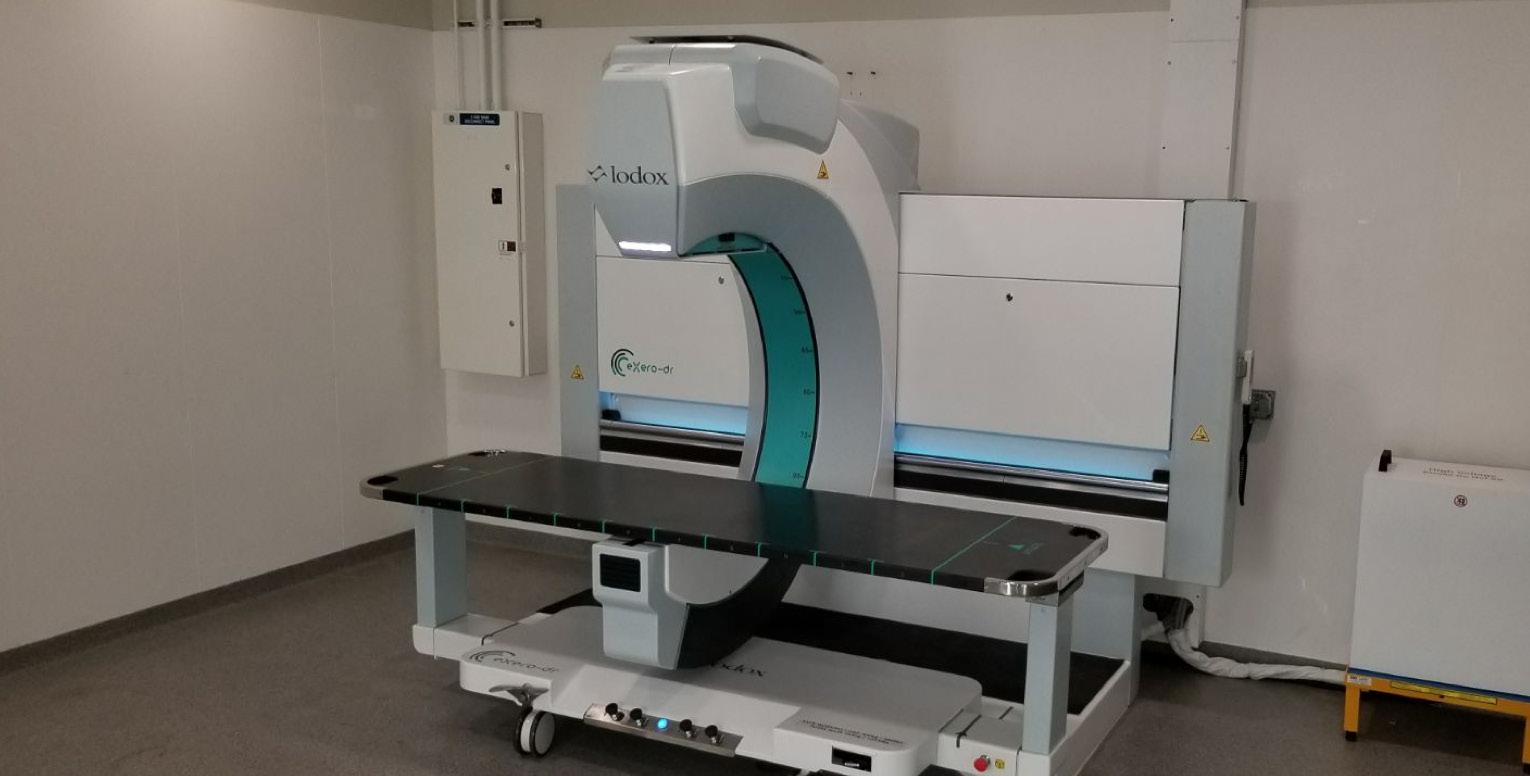
ECONOMIC TRAUMA?
One threat to the ongoing success of Lodox, and many other businesses operating globally out of South Africa, is uncertainty in the economy.
Uncertainty brings slow investment, lacking business confidence, market indecision, and slow growth. Against
this backdrop, it is hard for businesses to develop in a meaningful way.
For Lodox, a company exporting around the world but also active locally, the slack performance of the South African economy coupled with uncertainty in various international markets makes planning difficult.
“The current economic climate is really challenging,” admits Magagula. “Locally, we’ve seen input costswhether that’s electricity, labour, components – rise sharply. We import some components from Dollarbased markets and our currency has depreciated over time. Input costs have really shot up and that is purely down to the economic climate. In South Africa, we predominantly sell into the public
sector where government expenditure is constrained. Expenditure for machines like Lodox falls away as government chooses to focus on other areas of healthcare. Globally, we find that as the economy slows down, most countries start to look inwards and favour buying local over importing and we are finding that threat materialising now.”
In the first quarter of 2019, South Africa’s GDP growth rate decreased by 3.2%. These figures follow on from a decade of uncertainty, characterised by several technical recessions and mostly below average growth for the region. Fortunately, Lodox is a sustainable business that can look beyond the short-term.
“It is difficult, but we are taking a long-term view and understanding that there will be short-term shocks. We believe in the product, we believe in its ability to meet customer needs and make an impact in the health sector so long-term, we stand behind it. As long as we keep enhancing the product,
44 / www.enterprise-africa.net
// BECAUSE OF THE CAPABILITY THAT WE HAVE IN TERMS OF QUALITY MANAGEMENT, SERVICE AND MAINTENANCE, AND CLINICAL APPLICATION, WE SEE OPPORTUNITIES FOR GROWTH //
West Tennessee Regional Forensic Center
being innovative, and looking at other products so that we can diversify, we should be able to continue growing.”
Aside from economic conditions, which Lodox has no control over, the other challenge faced by the company is red tape. This, within government, has consistently been identified as one of the core elements which restrict business development and growth. Small Business Development Minister, Lindiwe Zulu, has been pushing the development of a national strategy to help reduce red tape and help small businesses to run more efficiently.
Magagula agrees that the problem needs to be addressed. “The onerous requirements in terms of regulatory compliance through quality management systems has become costly and burdensome. This creates barriers for small and medium sized enterprises and we are finding that the increase in costs, and the demand to meet various quality requirements, is extremely challenging.”
If Zulu can push through her programme – reports suggest this could happen by the end of 2019 – companies like Lodox will be able to overcome some of the burdensome administration which swallows time and money.
PROBLEM SOLVERS
Today, Lodox remains a business that solves problems – just as it was when it was established 17 years ago. However, unlike Grey’s Anatomy, the Lodox story is not finished. In fact, the company is still at the start of its journey with a dedicated team of staff.
“There are other regions of the world where we don’t currently have a footprint so we certainly believe we can grow and contribute to the economy,” says Magagula.
“Because we operate in a high-tech industry, we believe we can contribute to skills-development. We need highlyskilled, highly-qualified, technologicallyminded people and we believe we will be creating those jobs, especially in
sales and marketing and service and maintenance. People are at the centre of what we do.”
Ultimately, if the devices produced by Lodox can continue to serve patients in the efficient manner realised by the young patient in Bern, the construction worker in Dubai and many others, there is no reason why this South African success story cannot go on to conquer the global x-ray imaging market, solving problems through innovation at every turn.
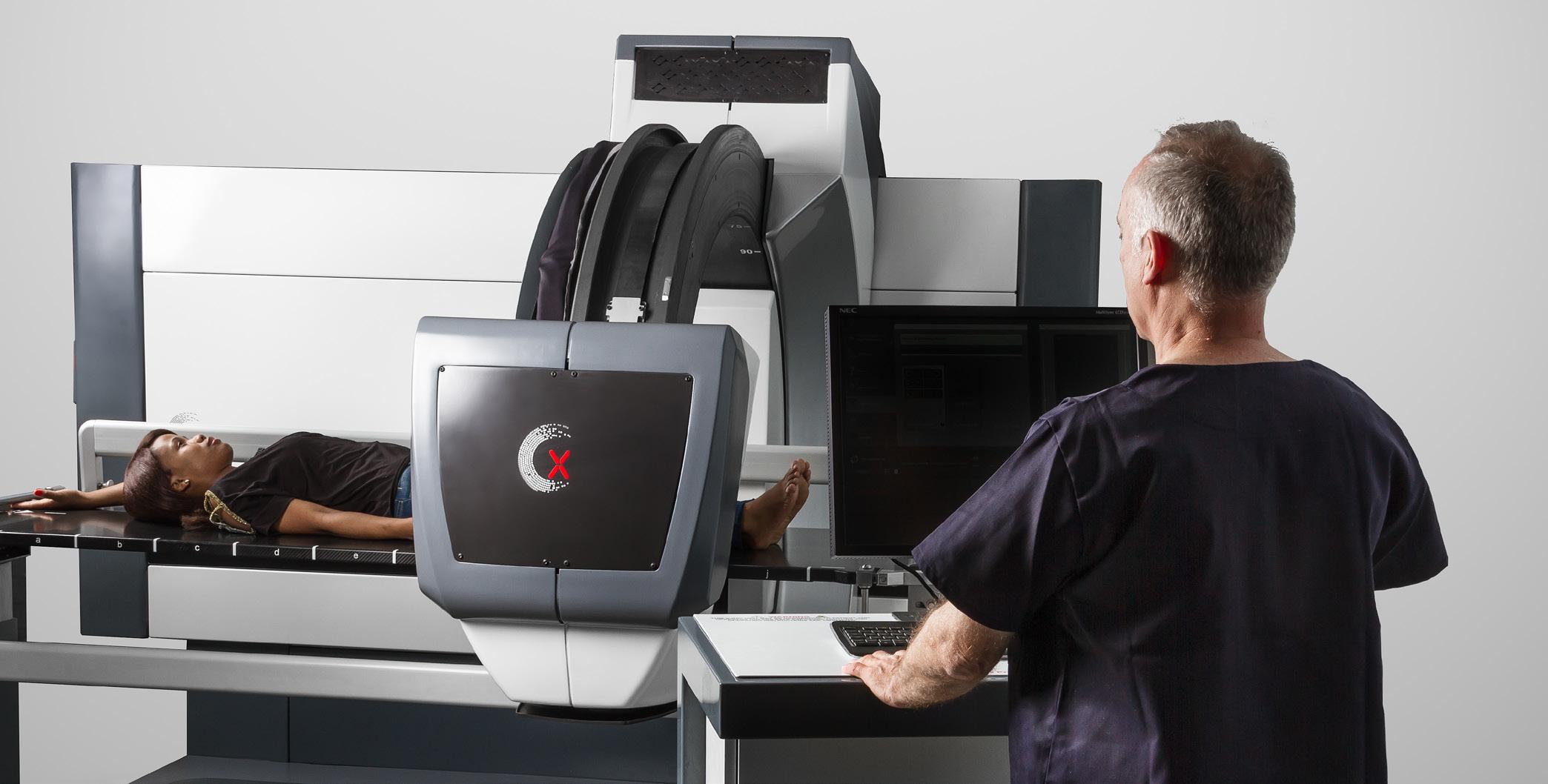
“We aim to form long term partnerships with users, key opinion leaders and suppliers to be the partner of choice in emergency trauma and forensic pathology. Lodox saves time, saves money and saves lives,” Magagula concludes.

WWW.LODOX.COM www.enterprise-africa.net / 45 LODOX Xmplar
MEDSCHEME
Creating a World of Sustainable Healthcare
PRODUCTION: Manelesi Dumasi
Medscheme, part of the AfroCentric group, touches more than 3.2 million lives. As the largest health risk management services provider and second largest medical aid administrator in South Africa, this expert business is doing all it can to delight its clients and members while growing during challenging economic conditions.
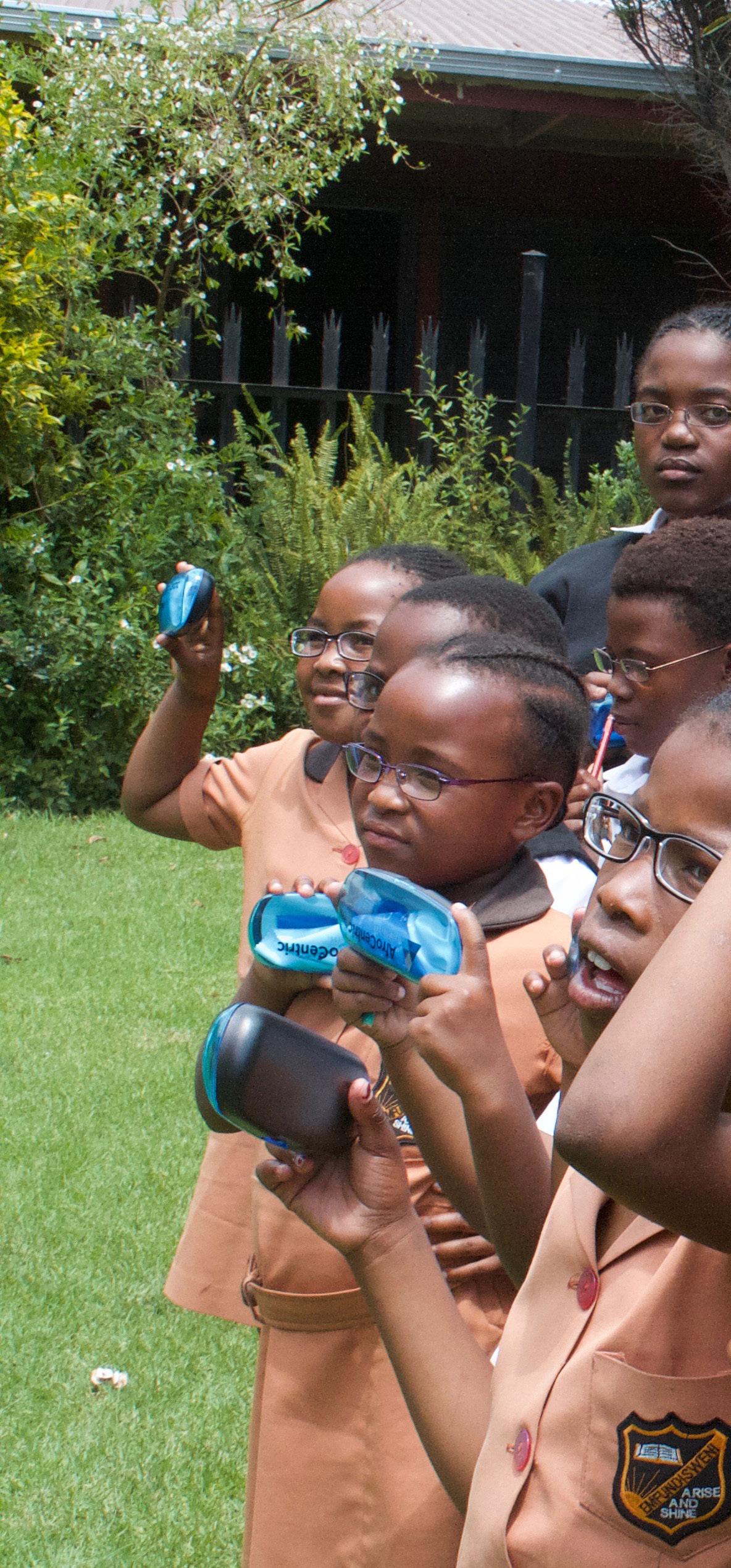
46 / www.enterprise-africa.net

INDUSTRY FOCUS: FINANCE
There is no question – change is coming to South Africa’s healthcare industry. For too long, the public space has been underfunded and understaffed, and for too long, the private sector has only been accessible for those that can afford it.
While a number of different solutions have been suggested over the years, progress has been slow, and South Africa’s people have been those that suffer.
The current system comes highly criticised by users and those working within it. Patient care at public hospitals can be inadequate, care at private hospitals can be too expensive, ethical doctors can find themselves the subject of medical negligence claims which threaten their position in the industry, and even those active within the country’s medical aid schemes find that their claims only stretch so far.
The industry is at a turning point, and change is inevitable.
It is now all but certain that National
Health Insurance (NHI) will be rolled out across South Africa sooner rather than later, and Health Minister Zweli Mkhize has described the idea as a type of social solidarity where the rich help the poor and the health subsidising the sick.
For the country’s medical aid schemes, now is a time of uncertainty.
The largest health risk management services provider in South Africa is Medscheme. The company administers medical aid schemes that cover more than three million people and has a network of branches across South Africa, as well as Botswana, Namibia, Swaziland, Zimbabwe and Mauritius. Part of the wider AfroCentric group - a JSE-listed, blackowned service provider to the healthcare sector - Medscheme’s reach is wide.
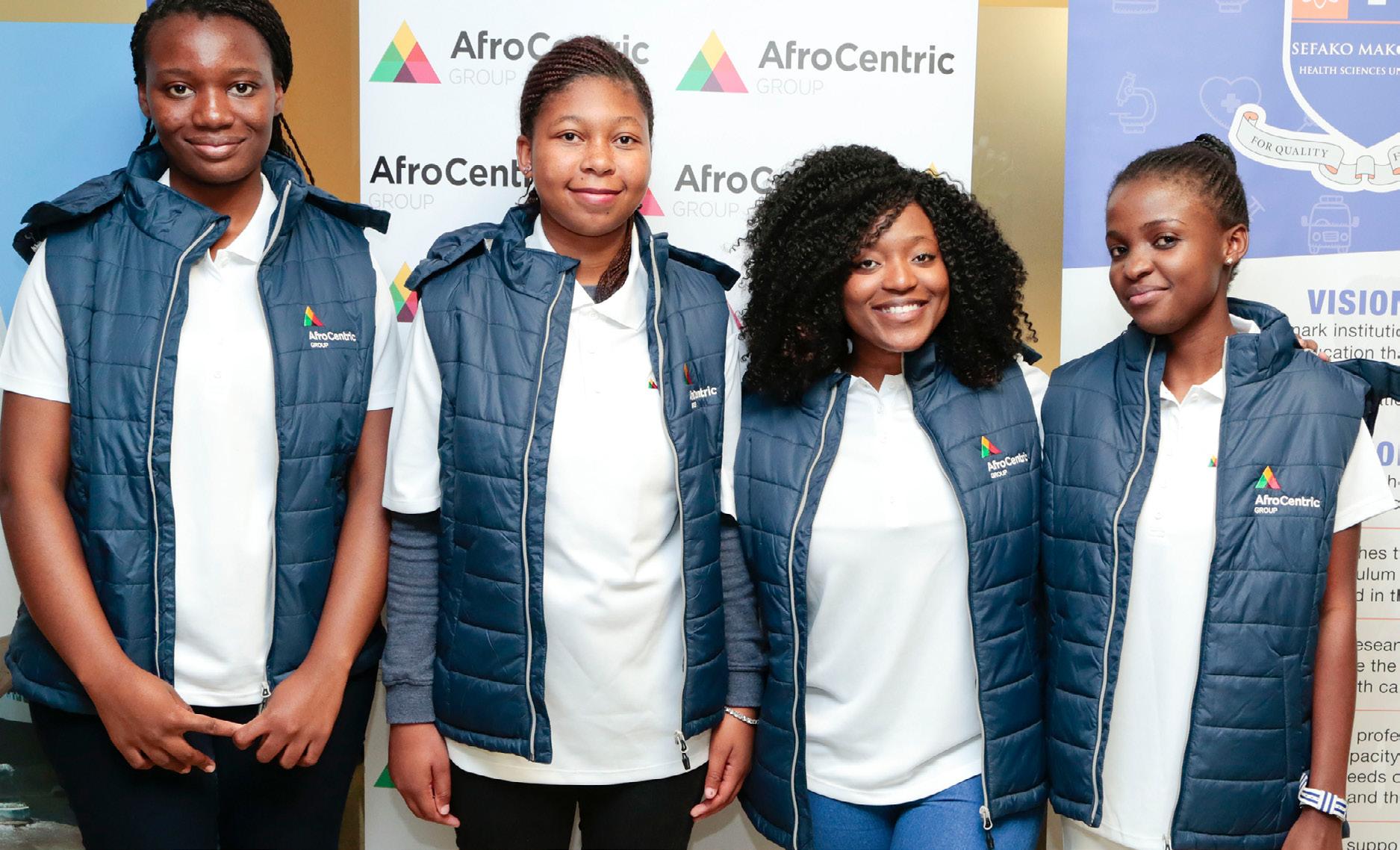
When NHI is introduced to South Africa, the role of the medical aid provider will change. Mkhize said, at the Board of Healthcare Funders conference in July, that medical aids would complement the provision of NHI.
Medscheme CEO Anthony Pedersen tells Enterprise Africa that the company is fully behind the roll out of South Africa’s NHI.
“National Health Insurance is needed in this country to make access to quality healthcare much easier – as a company we are committed to working with and partnering with the government to make it a reality,” he says.
“The public-private partnerships can ensure that the resources and skills are brought together to ensure that prospects of NHI success are significantly increased.”
INDUSTRY LEADING
Medscheme was established in 1971 by Keith Hollis and has been instrumental in offering affordable health insurance ever since.
“Keith was a successful and visionary entrepreneur, who has effectively pioneered private healthcare funding,” says Pedersen.
“Over the years, Medscheme has
48 / www.enterprise-africa.net
//
evolved to ensure that it is aligned the evolving needs and context of the market.”
Medscheme’s establishment was a flagship moment for the development of the private healthcare industry in South Africa. Focussed on the corporate medical scheme market, Medscheme holds the vision of creating a world of sustainable healthcare.
Today, medical aid schemes currently under the company’s umbrella include: AECI Medical Aid Society, Barloworld Medical Scheme, Bonitas, Fedhealth, Government Employees Medical Scheme, Medshield, Nedgroup Medical Aid Scheme, SABC Medical Scheme, Sasolmed, South Africa Police Service (POLMED), and many more.

“With over 40% of lives covered by medical schemes in our books, we are certainly a leading player in the market – it is a position we do not take for granted and we are constantly looking at ways to improve our competitiveness and leadership in the
market,” details Pedersen.
This is an important line of thinking for Medscheme as the market remains on rocky ground. The continued uncertainty over the future of NHI combined with an unstable market emanating from an unpredictable economy make for a situation where no one, not even the biggest and best, can rest of their laurels.
HURTING ECONOMY
According to Stats SA, the country’s economy contracted by 3.2% in 2019’s first quarter. Both manufacturing and mining showed big slumps, and this resulted in an announcement in July that unemployment was up, now sitting at around 29%. For Medscheme this is not good news, and caps off what has been a difficult period for the company following an extended phase economic uncertainty.
“Over the last five years or more, we have seen a significant consolidation of medical schemes and administrators. With a customer base of less than 10 million
(for the last 10 to 20 years) the players have mainly competed for a limited customer base that is not really growing,” says Pedersen.
“The general trend under tough market conditions is that our client scheme’s customers would often change their scheme options to more affordable options or to look for options that provide better value for money.
“The country’s economy has been subdued growing at less than 5% and when the economy is not growing, there is less likely to be a significant increase in the number of companies or individuals getting employed. Affordability of the customer impacts us directly, if people cannot afford to join, or remain in, a medical scheme – then the impact is direct on us. However, we have remained wellfocused to maintaining efficiencies in how we administer the medical schemes and in the process, we have assisted our client schemes to keep
www.enterprise-africa.net / 49 MEDSCHEME
// MEDSCHEME, LIKE OTHER PLAYERS IN HEALTHCARE, IS ALSO LOOKING AT WAYS TO KEEP HIGH INCREASES AT BAY //
INDUSTRY FOCUS: FINANCE
their prices within the inflation rate of less than 6%. This goes a long way in helping our client schemes to keep their members and as we generate revenue per member – we can also ensure that our performance remains solid,” he adds.
Fortunately, being part of the AfroCentric group of companies, Medscheme is ready to combat the negativity of a weak economy. Diversification alongside maximum effort with customer retention is helping the company to excel, despite
Turning on Africa’s Technology
the tough trading conditions.
“As part of a bigger AfroCentric Group, the company supports our broader Group with diversifying our revenue streams in the healthcare sector – however our challenge is to ensure that we retain the over 3.7 million lives under our care –achieving this means that we continue to have a significant leadership position and that we continue to outplay our competitors.
“AfroCentric has a value chain optimisation strategy which looks at
expanding our services in the broader healthcare sector. Over the years, the acquisitions have gone beyond our traditional business of healthcare administration,” says Pedersen.
MINIMISING FWA
In an effort to ensure price rises are infrequent and minimal, Medscheme has placed a large emphasis on weeding out fraud, waste and abuse (FWA) in the claims process.
“All medical schemes are obliged by law to look after the funds of the
Johannesburg-based Tendai ICT is celebrating five years in business by continuing to grow its partnerships with some of the country’s biggest corporates including Medscheme, MTN, Mercantile Bank and Bonitas.
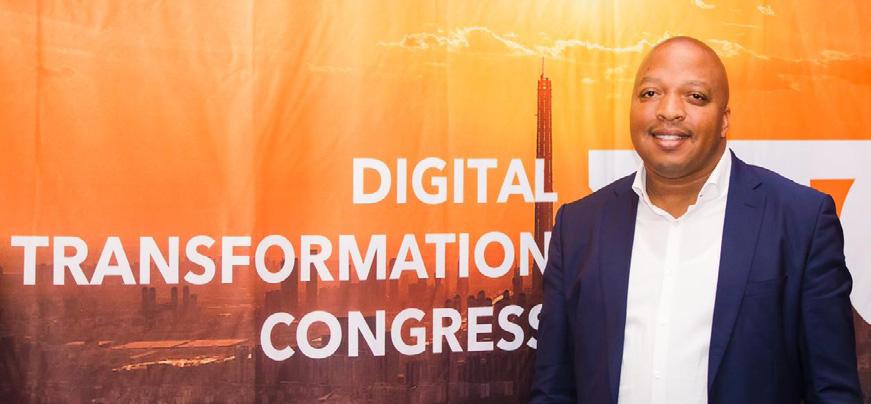
Founded in 2014 by Andrew Maringa, Tendai ICT has gained a reputation as a leading provider of technology solutions for companies across South Africa. Tendai ICT is Empowered by Afrocentric Group and Black Umbrellas - A partner entity of the President Cyril Ramaphosa Foundation.
Andrew Maringa - Managing Director
A 100% owned and managed BEE company, Tendai ICT holds the vision of taking ICT to under privileged people of Africa. Among the services that Tendai ICT has capacity to deliver on are data communication and networking, IT managed services, fibre optic network solutions, datacentre and facilities integrated ecosystems. “We are privileged to partner with Huawei in building Transport Networking for WAN applications, Multi- service Transmission Platforms and 5G product solutions,” says the Founder.
Maringa – who has experience working with some of the biggest names in the industry including Sahara Computers, Mthombo IT Services, Dimension Data, Bytes Technology, Siemens, Medscheme, and Helios IT Solutions – is currently working towards a Postgraduate Diploma in Management Practice from Henley Business School before starting a MBA.
“For as long as I can remember, I have always wanted to start my own business. Although money and success are important, I believe in purpose-led enterprises,” he says.
Andrew’s goal for the future is to play a significant role in the eradication of unemployment in the country. “My biggest goal is to be one of the biggest contributors in employment creation, not just in South Africa, but globally. I truly believe that entrepreneurship is a solution to many of Africa’s unemployment issues,” says the CEO.
“Our management philosophy forms part of our value system, namely: Simply doing things right, the first time and all the time.
“Exercising personal and business integrity, quality workmanship, building strong relationships with our customers and our vendors, as well as valuing our employees highly including their potential, motivation, training, and contributions these are ethos engrained in Tendai ICT`s DNA.
“We are highly pleased with the company’s growth rate. We also highly value among others our strong relationship with Medscheme and other big corporates.”
010 590 5555 / info@tendaiict.com / www.tendaiict.com
50 / www.enterprise-africa.net

INDUSTRY FOCUS: FINANCE
members and, due to the set-up of our industry, the claim validity is done retrospectively not upfront unlike other insurance sectors. The FWA initiative is within itself a process of that help alleviate major losses for the schemes and their members. By keeping FWA low, the schemes can help members by not having significant premium increases on an annual basis,” details Pedersen.
to reduce costs of healthcare, bring efficiencies and provide schemes as well as their members with innovative products.”
Medscheme is an award-winning business, with state-of-the-art technology and ISO 9001:2015 certification and, as such, is working hard to align itself with quality principles that reduce FWA. Ultimately, this helps to keep pricing stable for customers and members.
“Minimising FWA is a process that feeds into a bigger strategy that seeks more than 5% above the CPI (according to Discovery). It is these increases that are fuelling higher prices, but Medscheme is happy that its pricing has remained relatively stable in the past 12-months.
“It is an element that all schemes are monitoring and we encourage the scheme members to anonymously report such instances where observed – ultimately, this is one of the major ways that high increases in prices can be avoided,” says Pedersen.
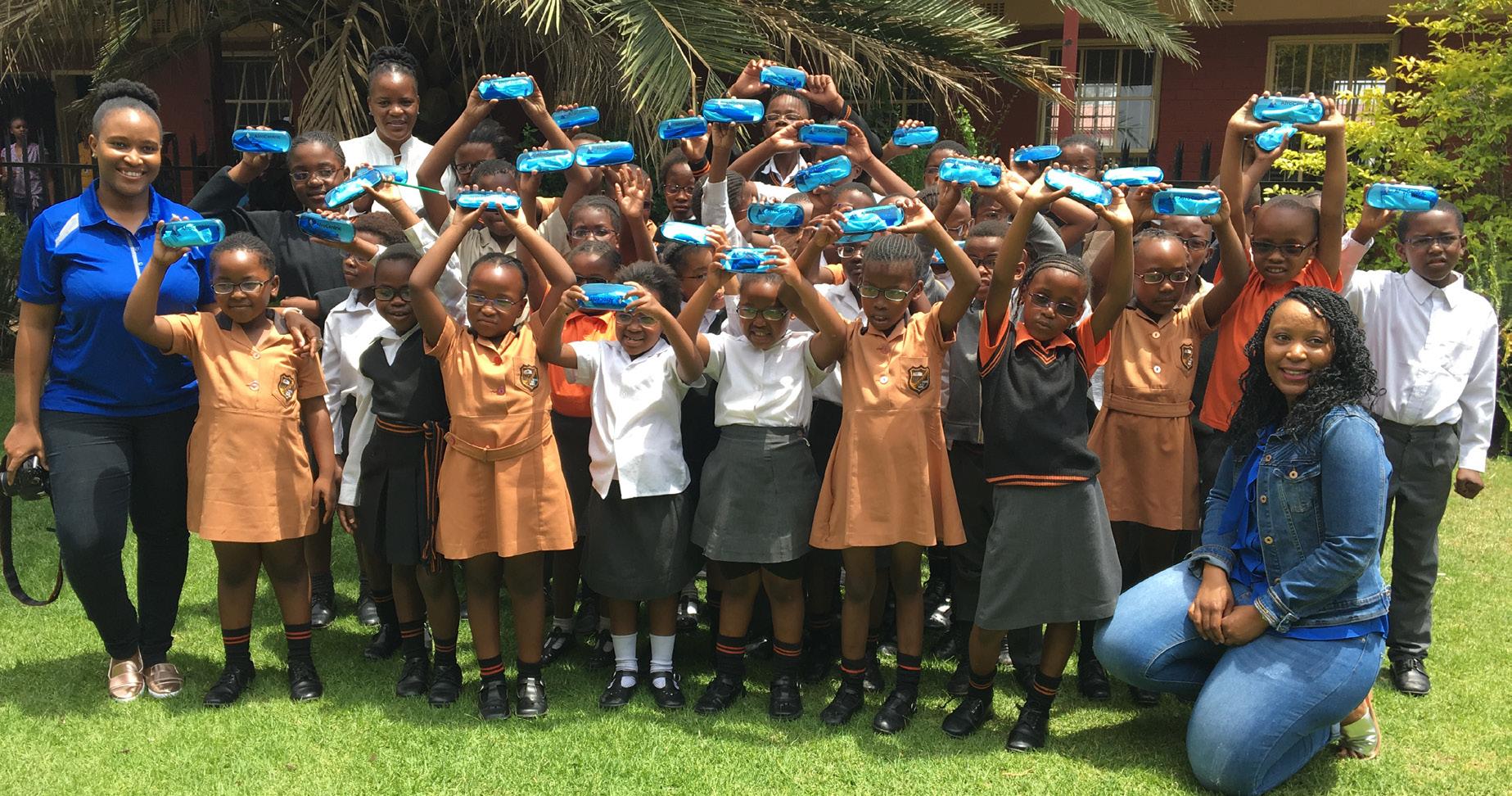
Price rises in previous years have been criticised by the public, and by companies offering out medical aid schemes. Currently, medial inflation is running higher than CPI. Between 2008 and 2018, it is estimated that medical inflation (the annual increase in claims received by medical schemes) increased by an average of 11.3% per year. This is
“There are many factors that contribute to the high costs, and the industry realises that high prices are a threat to the sustainability of the industry. Medscheme, like other players in healthcare, is also looking at ways to keep high increases at bay. We are proud that in the last financial year, most of our client schemes managed to keep their increases below 10%,” says Pedersen.
52 / www.enterprise-africa.net
// AFFORDABILITY OF THE CUSTOMER IMPACTS US DIRECTLY, IF PEOPLE CANNOT AFFORD TO JOIN, OR REMAIN IN, A MEDICAL SCHEME –THEN THE IMPACT IS DIRECT ON US //
// BY KEEPING FWA
LOW, THE SCHEMES CAN HELP MEMBERS BY NOT HAVING SIGNIFICANT PREMIUM INCREASES ON AN ANNUAL BASIS //
Blending technology with the human touch

With 20 years’ experience in South Africa, we know you require an integrated technology suite that provides an easy way for your travellers’ to research, approve and book their travel.
This combined with the specialist support of a dedicated travel expert will provide your business with the perfect blend of personal service and automation to deliver real value and savings.
COMPETITIVE ADVANTAGE
There are a number of medical aid scheme administrators active in South Africa but few have the reach that Medscheme can boast. A 48-year history, a trusted brand, and a deep knowledge of the industry have all contributed to the recognition of Medscheme as an industry leader.
“Our competitive advantage is how we merge the strong skills of our people, together with the technologies that bring innovation and efficiencies – this supported by our strong understanding of the needs of our client schemes and their members, means that we can remain ahead of the curve in terms of the changing needs of the market,” explains Pedersen.
Enhancing reputation among the country’s healthcare providers (HCPs) has also been important for Medshceme. Even with a strong number of lives under care,
the scheme would fail without a supply of effective HCPs. In the last decade, a trend of large negligence claims against doctors has resulted in some scaling back their activity or even being forced to leave the profession. At Medscheme, the aim is to create sustainable partnerships with HCPs to build a more efficient industry.
“We pay over 25,000 HCPs each month and claims are being processed daily. Medscheme regards HCPs as our partners in the provision of healthcare –speedy claim processing is a priority in our business,” confirms Pedersen.
“When we conduct retrospective assessments of the validity of claims, we find that generally the disputes are with 2-4% of HCPs and usually we would interact with them with a view of ironing out the questions or verifications we require on their submitted claims.”
As the details surrounding the roll
out of NHI begin to become clearer, it will be important for medical aid schemes to demonstrate their ambitions. For Medscheme this has always been clear: to create access to sustainable, affordable, quality healthcare through the use of innovative expertise. We deliver this as an efficient, seamless experience.
According to Pedersen, universal access to quality, affordable healthcare should be non-negotiable.
“This has to be an idea we all aspire to – it will be influenced by the sustained economic growth, especially factors such as employment, sustained GDP growth of over 5% and innovations that lower the structural cost drivers of healthcare,” he concludes.
www.enterprise-africa.net / 53 WWW.MEDSCHEME.COM MEDSCHEME For more info, visit corporatetraveller.co.za or call 0877 40 50 90
ONE SIMPLE TRAVEL TECHNOLOGY PLATFORM

The Niche Insurance Specialists
A niche, specialist short-term insurance B2B enterprise operating in Southern Africa, Natsure has evolved over half a century into a profitable and reputable market leader in each of its markets. Natsure’s focus on the reliable delivery of value-driven, competitive and responsive solutions has seen it transform insurance in the territory; it now looks to capitalise on the promise of new legislation and innovative products to notch up another 50 years of dominance.
//“I f we look at Natsure over 50 years,” the company sets out, “it is evident that the brand has been ever evolving, yet true to its niche ethos since its inception in 1968.” The company adopts an actuarial approach to underwriting, and believes strongly in the culture of partnerships as well as an unwavering commitment to innovation and client service.
“O ur mission,” Natsure says, “is to deliver the best solutions and service possible so that we are the first choice for all our stakeholders, and will continue to gain traction and brand loyalty with our brokers and consumers for the next 50 years.” Natsure’s overarching vision is a familiar one, but one which is entirely within its reach: to be the preferred
partner for specialist intermediaries, by setting a new benchmark for service delivery and innovative product solutions.

“We want to become one of the most respected brands in the industry – ultimately known and trusted by the end consumer,” Natsure sums up. Its product range backs up such lofty ambitions, spanning aviation, engineering, renewable energy, personal accident, goods and transit and marine, and everything in between. Across all of these categories, the commonalties are solutions which are comprehensive, tailored to the individual and backed by the 50 years’ expertise which Natsure has enjoyed at the forefront of the Southern African insurance game.
50TH ANNIVERSARY
20 18 was a watershed year in the long and disguised history of Natsure, bringing about its 50th year of operations and the announcement of a new vision for the company. The plan centres around innovating the business and the continued ambition to transform the entire insurance industry.
“The world is transforming, and so are we,” explains Bernice van Leeuwen, COO. “We need to future-proof our business to see it through the next 50 years and beyond. Our interpretation of this is ultimately a relentless process of improvement to anticipate and navigate future risks and opportunities, enabling us to adapt to changing market dynamics.”
NATSURE
www.enterprise-africa.net / 55
PRODUCTION: William Denstone
INDUSTRY FOCUS: FINANCE
For van Leeuwen, the company’s ability to innovate will be the key to achieving this. “Innovation is encouraged and supported in Natsure’s culture,” she states. “Very soon we’ll be able to share some of these developments, which include a range of new products for future business challenges.”
One of the company’s landmark products this year has been Natsure Outdoor & Recreation, launched through its Lifestyle division and aimed at outdoor enthusiasts. This product has been custom designed to provide comprehensive cover for small watercraft, including but not limited to wet bikes, jet skis, canoes and motorboats. The cover can also be extended to include watercraft trailers, luggage trailers and other types of recreational vehicles, making it one of the most comprehensive products of its type available today.
“Personal all risks under this product will make provision for fishing gear, bicycles, GPS and tracking devices, binoculars and all other applicable accessories and contents for the outdoors,” Natsure explains. “The client
also has the option to insure tyres for the insured trailers or recreational vehicles for a small additional premium.”
PEOPLE POWER
“Our people are the reason for our success,” Natsure puts simply. “We are passionate about what we do and we believe we are experts in specialist insurance. We invest in our team and their success breeds our success and as a meritocracy our employees operate in an environment where the best are rewarded and incentivised to excel.”
With these principles so prominent within Natsure’s ethos, it was no surprise to learn this year of a major directive geared toward nurturing the talent in its ranks. “I am pleased to announce the launch of our intern programme,” expressed Tersia Davey, Natsure CEO. “As part of our vision and strategy we are committed to the Short-Term Insurance Industry and in creating a sustainable and well-educated industry.”
As such, young individuals will have the opportunity to gain valuable work experience, to be familiarised with the business environment and to learn more about the Short-Term
Insurance industry, with the potential to be integrated into the system after 12 months.
“I am very excited to announce that we have finalised our interview process for the appointment of two intern positions within Natsure,” Davey continued. “This is yet another first for Natsure and forms part of our Transforming Insurance strategy.”
Recognising the significant skills shortage in the insurance industry within Southern Africa, Natsure knows that it must start attracting, nurturing and retaining young talent. Its internship programme hopes to build future succession with the required skills, knowledge and experience to sustain and contribute towards the future insurance community and economy.

TRANSFORMATIVE LEGISLATION
2019 will see the implementation of two key regulations which will determine how the financial services industry will operate. While the introduction of new compliance requirements has historically been met with anxiety, frustration and confusion, Tersia Davey outlined how Natsure is embracing it.
56 / www.enterprise-africa.net
“Ultimately this increase in regulation serves to protect both the financial services industry, as well as the consumer, and should be accepted as a framework for basic business practice and ethics,” she explained.
‘D ata Sharing’ and ‘Fit and Proper’ were recently introduced as new legislation that will directly impact the insurance industry. Across industries, data has been abused for many years, and the POPI Act was implemented to curtail this and encourage more responsible and ethical use of data. The new Data Sharing regulation aims to protect the consumer, and in the event of a claim or disaster, provide a record of the cover and the premiums for the insurer.
“As a niche insurance solutions provider to UMAs and brokerages, we have worked tirelessly to

improve our own data warehouse and information records. This has significantly enhanced our reporting and communication efforts with our insurers and intermediaries, which advances our overall business efficiency,” explained Davey.
Meanwhile, the Fit and Proper requirements ensure that those who work within the financial services industry are qualified, competent, fit and compliant. “This will help to nurture and uphold the specific skills and expertise that make for a professional and principled industry,” Davey said, and this is all the more relevant to Natsure with its eight subsidiary companies, renowned for its niche, specialised, innovative and accredited product solutions, all of which require specific training.
“The fact that intermediaries now
need to be trained on insurer products before they are allowed to sell, affords us, as underwriters, the opportunity to sell our products, with their benefits to our broker distribution network, and make certain that brokers offer our products to the right target audience,” Davey concluded. Planning for its next era both in its people and policies, it looks inevitable that more and more intermediaries are going to have the chance to avail of Natsure’s carefully crafted, niche lines of business for many generations to come.

NATSURE www.enterprise-africa.net / 57
WWW.NATSURE.CO.ZA
STANDARD LESOTHO BANK
Improving Financial Inclusion in Lesotho

As the largest bank in Lesotho, Standard Lesotho Bank is always in the sights of the competition as smaller players look to take market share away from the leader. But, by being innovative and investing in digital solutions, this important bank manages to stay ahead of the chasing pack. CIO, Samuel Koatla talks to Enterprise Africa about how going digital is helping the company to further improve financial inclusion in Lesotho.
//Transformation of business strategy is no easy feat. Taking methods and tactics built around helping the customer, that have been developed over many decades, and reimagining them to fit into a new landscape is a true challenge. But, as everyone knows, businesses that don’t adapt to stay in line with the needs of the customer, are those which are quickest to fail.
Banking is the latest industry which is being completely revamped thanks to technology. Everything must now be faster, more accurate, safer, and easier than ever before. Even in regions which are not technologically and financially advanced, the market is changing and utilising new ideas to deliver for customers.
It has already been seen in retail,
in transportation, in delivery, in food, and in communication. Tech, especially mobile tech, has increased the rate of change in industries faster in just a few years than what has been seen over the past few decades.
In Lesotho - a country with a population of just over 2.2 million, loosely dispersed across just under 12,000 square miles – digitisation and the uptake of technology has been slower than in neighbouring South Africa, but that has not stopped one of the country’s biggest brands pushing a digital agenda.
Standard Lesotho Bank, part of the Standard Bank Group, remains the country’s biggest bank and can trace its roots back to 1995 when Standard Bank acquired Barclays Bank and formed a new entity, Standard Bank Lesotho.
Today, the bank is jointly owned by the Government of Lesotho, Lesotho Unit Trust and Standard Bank Group. It has a presence across all of the country’s districts, operates 19 branches and more than 80 ATMs.
Asked in 2018 by Enterprise Africa if Standard Lesotho Bank would consider opening new branches, Chief Information Officer Samuel Koatla said that the focus would be on updating existing infrastructure to provide customers with digital branches, using technology to speed up a number of different processes.
“One thing that all banks are looking at is the ability of mobile devices. We have to make sure we align ourselves to our customers in terms of what access they have to technology,” he said.
58 / www.enterprise-africa.net
PRODUCTION: Manelesi Dumasi

INDUSTRY FOCUS: FINANCE

LAGGING LESOTHO?
Despite having almost country-wide 3G coverage, many Basotho still do not have internet access because of high data costs. Mobile device accessibility is good – the majority of the population has access to feature phones or smart phones and USSD technology. Wired broadband is less common and is serviced through a connection into South Africa and its three main submarine cables. Research from the International Telecommunication Union suggests that just 3.4% of Lesotho’s population are regular broadband internet users. On the mobile side, research for the United Nations Trade and Development Conference (UNCTAD) suggests that 37% have an active mobile broadband subscription. Unfortunately, trust in ecommerce remains low. Few people make digital transactions, and laws and regulations surrounding digital trade lag far behind more developed nations. Shamika Sirimanne, UNCTAD’s Director of Technology and Logistics says that small improvements in the system could make all the difference.
“Mobile service costs, in some instances, represent almost 6% of the population’s monthly income. Lesotho, like many developing and least developed countries, has enormous
potential to embrace the digital economy and make it work for them. But there are a series of conditions for its success. These include reliable and affordable infrastructure, legal and regulatory frameworks for payments, access to finance solutions, and the capacity to respond to the needs of the digital economy.”
For Standard Lesotho Bank, digital transformation remains a priority and, while progress has been slow, Koatla insists improvement is inevitable and essential for the growth of financial inclusion.
“The approach is now to go digital and work on digital branches. Currently, we have converted two branches to become fully digital branches. Every branch that we work on, every way that we can touch it, we are trying to make it digital. We are forced by the clientele to still go semi-digital and semi-brick and mortar. It has been so far, so good and we are seeing the take up being ok and we hope it can increase from there,” he says.
He believes that improved digital services, from Standard Lesotho Bank as well as the rest of the industry, will help to bring the unbanked into the financial system. According to the World Bank, this is vital to help grow the economy. “Financial inclusion is critical in reducing poverty and achieving inclusive economic growth. When people can participate in the financial system, they are better able to start and expand businesses, invest in their children’s education, and absorb financial shocks,” says the World Bank.
“This is the main driver,” confirms Koatla. “The use of mobile money is really assisting in terms of financial inclusion. We, as banks, are trying to integrate the mobile networks in cases where we don’t offer such, so that we can continue to generate financial inclusion.”
As well as digital financial inclusion, alongside the rest of the industry, Standard Lesotho Bank is also ensuring its service portfolio is easily accessible through traditional channels so that
it continues to connect with as many people as possible.
“In places where banking services are not readily accessible, we will place ATMs so that we can bring service to the people. We are the biggest bank in the country and our closest competitor only has half of the ATMs that we have,” Koatla asserts.
CUSTOMER FOCUSED
Banking in Africa is a hugely profitable business. In 2017, retail bank revenue in Africa was at $35 billion and, according to McKinsey, it’s expected to increase by 8.5% per year, reaching $53 billion by 2022. The report from McKinsey suggests that Africa’s banking sector is almost twice as profitable as the global average. But this success does not come idly; it is only those that remain customer focused, solving problems for clients, that manage to achieve sustainable profitability.
At Standard Lesotho Bank, investments into a new digital interface – Infosys Finacle, part of EdgeVerve Systems – was completed in June and is helping the bank to achieve new efficiencies in branch. This follows from the completion of a roll out of a new Finacle Core Banking system in 2017.
A cut in customer waiting time, a reduction in paper usage, improved staff training times, and a reduction in branch costs have all been realised following the roll out of the Infosys Finacle Mobile Teller Solution.
“The implementation of ‘Moby’, Finacle’s Mobile Teller Solution as we call it, has been a significant step in our journey towards customer centric
60 / www.enterprise-africa.net
// ONE THING THAT ALL BANKS ARE LOOKING AT IS THE ABILITY OF MOBILE DEVICES. WE HAVE TO MAKE SURE WE ALIGN OURSELVES TO OUR CUSTOMERS IN TERMS OF WHAT ACCESS THEY HAVE TO TECHNOLOGY //
// COMPETITION WILL ALWAYS BE THERE. EVERYONE ELSE WILL ALWAYS WANT A BITE OF THIS BANKING SECTOR PIE //





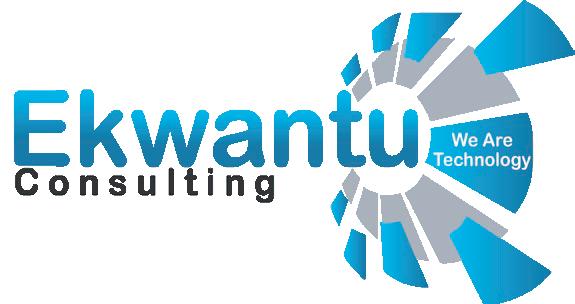
INDUSTRY FOCUS: FINANCE
digitalisation and process optimisation. ‘Moby’, in combination with our existing Finacle Omnichannel Hub, has been a game changer in helping us provide the best banking experience in Africa,” said Klaas Kruger, Chief Information Officer of African Regions at Standard Bank.
“Ensuring world class customer experience is a key priority for Standard Bank and ensuring this at non-digital touch points such as branches was a challenge.”

Koatla shared the positive sentiment, saying: “It is a fantastic platform which gives our customers great service and great opportunities. It also gives us a competitive edge as it is better than what is available elsewhere in the market.”
The solution has been rolled out across 107 branches in Lesotho, Zimbabwe and Malawi, Zambia and
eSwatini. It is an enterprise level tablet-based solution that comes with designated workflows for each role –teller, relationship manager and agent. With an interactive user interface, intuitive navigation, an offline mode of operation and inbuilt analytics engine, bank tellers are empowered to provide personalised services on-the-go, virtually eliminating waiting in queues.
NEW MARKETS
In an effort to further assist with financial inclusion, Standard Lesotho Bank is targeting a sector of the economy that holds much promise – the informal business sector. Last year, Koatla described the situation where many members of the public who are unbanked still have access to funds and are still spending. Many do so, in cash, through informal traders or informal organisations and,
while convenient, this remains risky and unsustainable. In 2016, the World Bank conducted a survey where formal businesses listed the informal economy as the third biggest threat to growth and success, behind only political instability and high taxation.
By introducing a number of new solutions, the hope is for Standard Lesotho to build trust and gain customers that might have previously remained outside of the mainstream financial sector.
“What we have noticed is that there is a lot of money circulating in the informal business sector. Sometimes people do not get normal financial statements, they do not have physical addresses that the law normally requires for you to be included, and there are billions and billions of bucks circulating in these types of market,” details Koatla.
62 / www.enterprise-africa.net
“That is where the notion of financial inclusion needs to be realised. We have developed plans to cover this market and we are looking at solutions that would not require the normal regulatory Know Your Customer (KYC) principles. That way we can go a little easier on this market but still provide high-quality service. The idea is to provide banking for those unbanked while always expanding financial inclusion.”
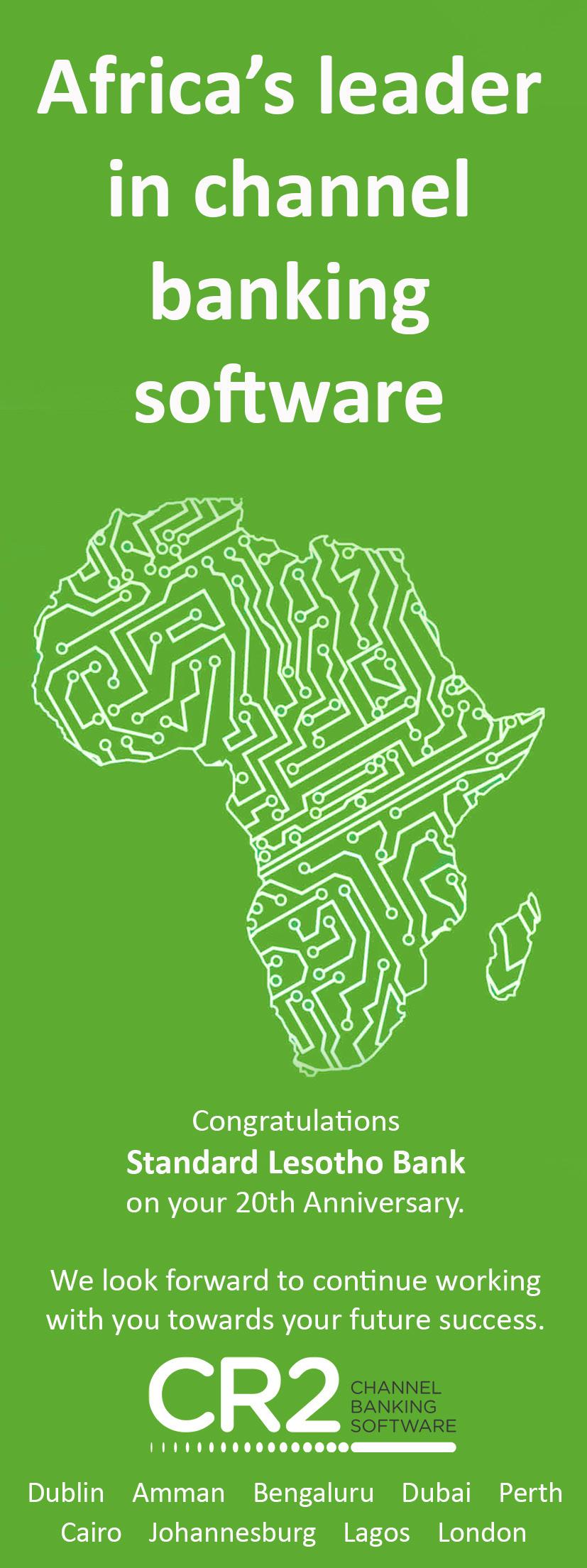
The Enterprise Banking division of the organisation has come up with a number of solutions for micro, small and medium sized enterprises. In May, an announcement was made detailing the launch of several new products.
Firstly, for small businesses, is the Molleloa Transactional Account. “This account is for start-ups with annual turnovers of less than M300,000 at the lowest management fee of only M60.00 per month, arguably one of the lowest in the market. This product also comes with free cash deposit fees, and free Mobile Banking, free Internet Banking and a free funeral cover for the owner of the business. Businesses that have turnovers above M300,000 pay a management fee of only M149.00 for a business current account on Bundled Pricing that comes with many benefits including free Mobile Banking and free Internet Banking on Enterprise Online,” the bank says.
Along with other current, business and savings accounts as well as insurance products, Standard Lesotho is also introducing a range of new enterprise loans designed to help businesses grow with minimal hassle.
“The bank has introduced the Tseke! Loans which give you an option of borrowing against your investment up to 120% of the value of your investment. There are no stringent requirements to access the loan and it becomes available into your account within 24 hours,
should you need lending to finance an order, to buy stock or to grow your business, Enterprise
STANDARD LESOTHO BANK
www.enterprise-africa.net / 63
INDUSTRY FOCUS: FINANCE
Banking has several lending solutions to meet your needs. We have the Working Capital Loan suitable for providing working capital and shortterm financing requirements for your business. This loan is repayable in instalments of between one and 24 months, structured to meet the nature of your cashflow. There is also a Business Term Loan which is a relatively simple way of securing a loan for any period up to seven years, repayable in equal instalments structured to meet your cashflow. The minimum loan amount is M5,000 and there is no maximum. We also have the Vehicle and Asset finance that you can use
to finance your business vehicle and assets such as trucks, yellow goods and machinery,” the bank states.
Growth has already been realised following the release of these new products. “Where we have grown recently has been through lending. We have been able to digitise lending and that means you can apply fully for your loan over internet banking or through your smart app,” says Koatla.
It is this type of innovation, alongside a culture surrounding problem solving for the customer that keeps Standard Lesotho at the front of the industry.
“Competition will always be there.
Everyone else will always want a bite of this banking sector pie,” admits Koatla. Fortunately, Standard Lesotho has the scale and backing that others cannot boast, and this goes a long way.
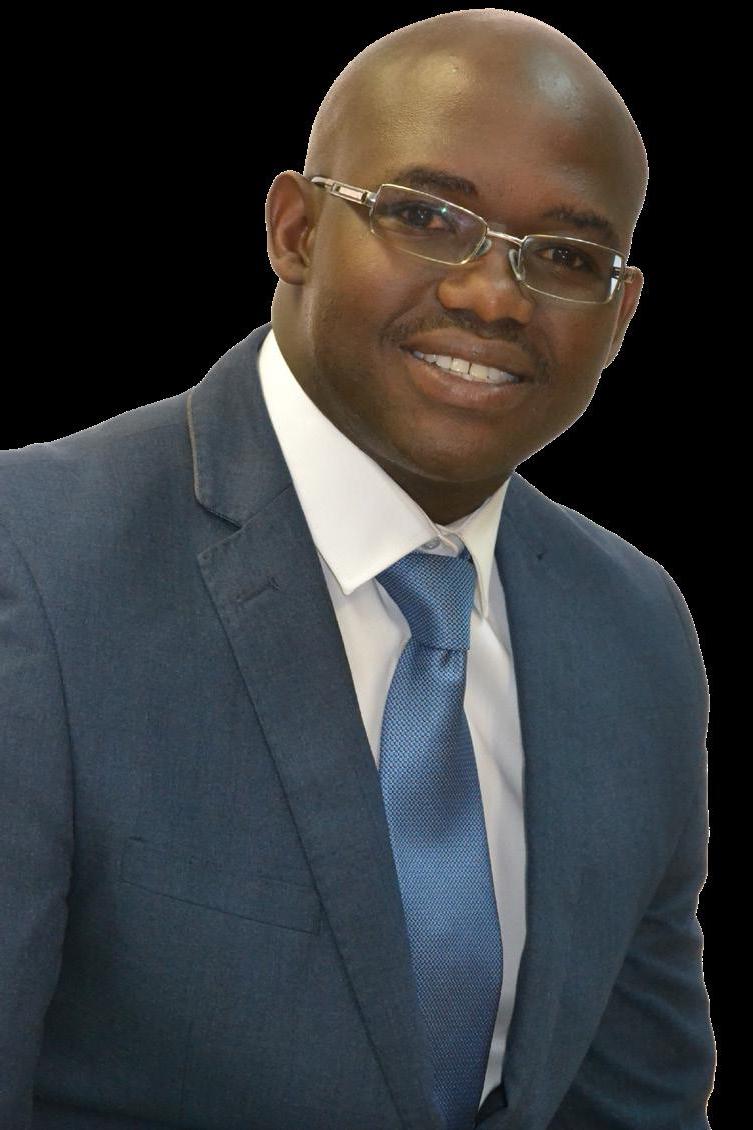
“We are seeing some small technology companies that are coming into the market and take a piece of what the banks are doing, and they are also trying to take a piece of what the Mobile Network Operators (MNOs) are doing. They come in as intermediaries, focussing on a particular solution and the question is, do we really want to challenge those small focussed companies, or do we want to integrate and become a platform where they
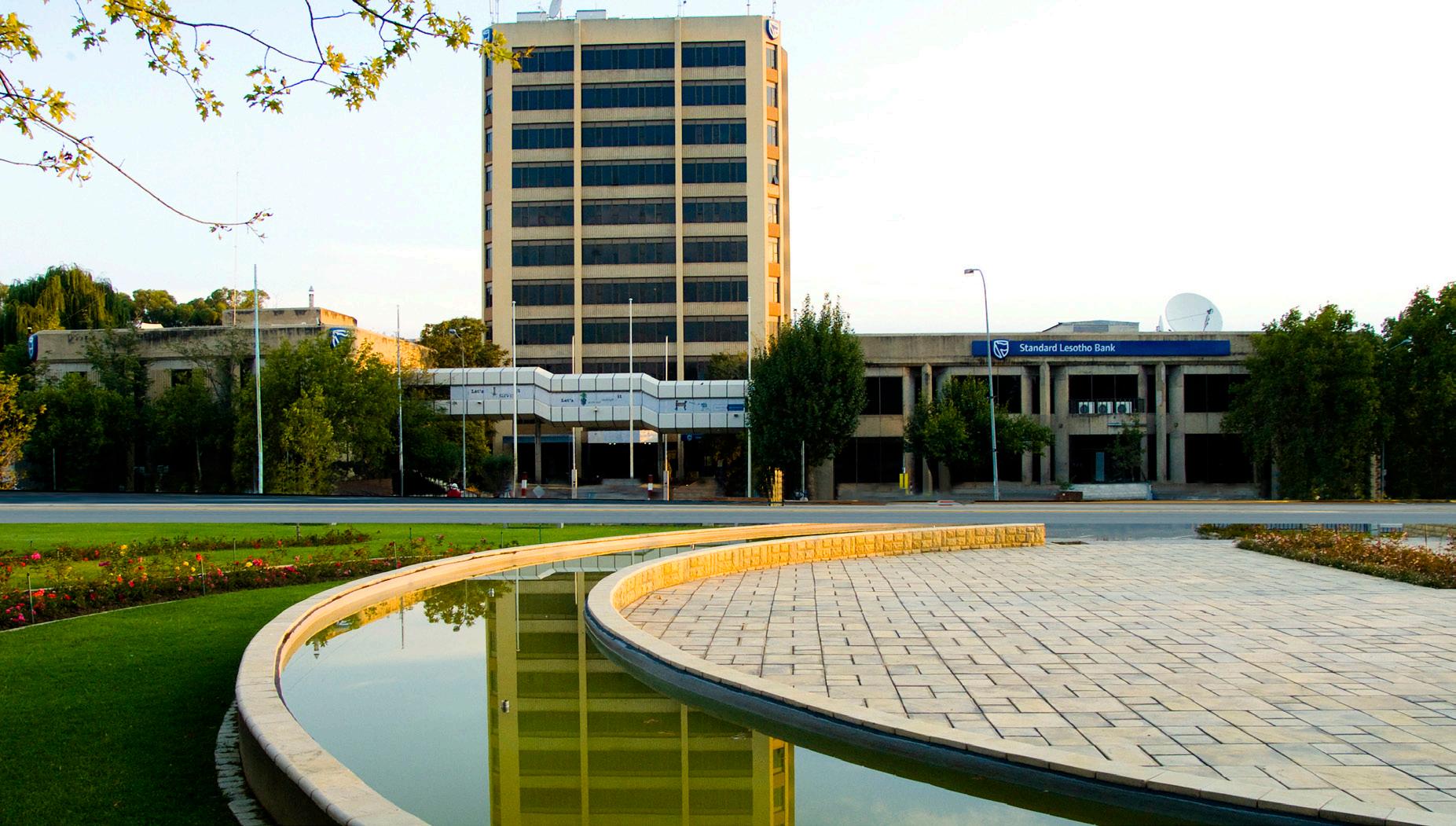
64 / www.enterprise-africa.net
// THE FIRST HALF OF THE YEAR WAS BETTER THAN THE LAST AND WE ARE HOPING THAT THE TRAJECTORY IS POSITIVE. I BELIEVE WE ARE ON THE RIGHT TRAJECTORY AND HOPEFULLY IN THE NEXT TWO YEARS OUR POSITION BOTH AS A COMPANY AND AS A COUNTRY WILL HAVE IMPROVED SIGNIFICANTLY //
Samuel Koatla - CIO
THE POWER OF PARTNERSIP
When it comes to business-building ICT solutions, one size definitely doesn’t fit all. Which is why, for 20 years, Digital Generation has been custom building award-winning IT solutions to meet the unique needs of organisations. Through a strategic partnership approach, Digital Generation leverages its vast experience and proven expertise to help its clients develop their businesses and sustainably grow their bottom lines.
A S OL U TION FO R EVERY N EE D
From end-user instruments like mobile devices, laptops and desktop PCs, to high-end servers, storage, networks, infrastructure design and full data centre solutions, Digital Generation collaborates with its trusted global partners to deliver precisely what each individual client needs - on time, on target, and on budget. As a full-service solutions provider, Digital Generation also offers warehousing, inventory management, logistics, configuration services, asset disposal and even a contact centreall focused on helping clients achieve optimal ICT product lifecycle management.
Digital Generation has many years of experience in managed rollouts, including complex projects involving delivery to multiple local, national and cross border locations. Digital Generation has extensive experience with stock demand forecasting & acquisition plans, as well as a proven track record of partnering with clients and suppliers to procure the best technology at the most competitive prices. Along with managed rollouts, the consulting team offers onsite ICT management to assist clients with technical resources and asset management.
STORAGE AND SECURITY
The superior design of Digital Generation’s cloud platform services means that they consistently provide service levels that far exceed those of public clouds, effectively keeping business systems up, while ensuring risks and costs stay down. By combining their own proven cloud platform with those of expert third party providers, Digital Generation is able to offer fully customisable hybrid cloud solutions and highly efficient architectures, including Backup-as-a-Service, Infrastructure-as a-Service, Platform-as-a-Service and Software-as-a-Service.
Storage is something that simply must play a part in every company’s digital transformation strategy. As business capacity requirements grow, there is inevitably a growing cost for storingdata & ensuring it is always available and accessible. According to Trevor Naidoo, MD of Digital Generation, companies ultimately have to look at cost effective ways to store this data, while also ensuring that performance & functionality is not compromised. Digital Generation suggests that a well implemented hybrid or multi-cloud strategy is the answer, as it provides performance on demand, coupled with long-term archiving solutions.
Asset Sourcing
Asset Management
Asset Disposal
Reverse Logistics
Warehousing
Customised Warranty Solutions
Data Centre In frastructure
Cloud Services
Project Implem entation
Onsite Resi denc i e s
ICT Managemen t MIS Reporting
www.dg.co.za
INDUSTRY FOCUS: FINANCE









can ride and position their product? That remains a bigger question that we need to test. As a bank right now, we are focussing on both. We are doing both integration of products and development of our own products and seeing which route works best for us,” says Koatla.
To date, it looks as though this strategy will bear fruit for the company. At the end of 2018, Standard Lesotho reported a 7% in non-interest revenue through transactional business.
PRIMED FOR GROWTH
Economic performance in Lesotho has been weak over the past four years. Slow growth has emanated from political instability and a slow economy in South Africa. But with the political climate, in both countries, looking more stable, Standard Lesotho Bank is positioned perfectly for growth.
“We have been able to make profits and we didn’t flirt with loss but it wasn’t an increase that we hoped for; the projected outcomes that we hoped for at the end of the financial year were negatively impacted by the slow economy,” says Koatla. “Business is still ok and we always hope for the best, but the political environment has certainly negatively impacted us.”
From 2015 to 2017, the economy grew by no more than 1.7% and in 2017/18, GDP revenue contracted by 0.6%. But the expectation is that improvements are imminent following an increase in construction activity as a result of ongoing progress at the Lesotho Highlands Water Project.
In June, Standard Bank’s Khotso Moji told CNBC Africa that the economy in Lesotho could be in for a positive change.
“We had weak growth in 2017 but we have subsequently seen a lot of recovery with 2018 being a relatively decent year,” he said.
He added that legislation to speed up the rate of project investment was also helping, and Koatla agrees, saying: “If you are business-minded
Linking People | Business | Technology We’ve been accelerating digitalisation in retail since 2004 We’re trusted by major retail brands & financial institutions to facilitate over 1 billion connections for payment and digital services annually. www.xlink.co.za Underpinned by a Secure Compliant Network Commercial Modelling Interoperable network Managed Services Resilient Network National Footprint Tailored Solutions Partner Ecosystem PCI Compliant Monitoring & Analytics
66 / www.enterprise-africa.net
WE’RE XBRL-READY, ARE YOU?
As global leaders in financial reporting software, CaseWare is designed specifically to meet your complex reporting requirements ensuring efficiency and accuracy, and facilitating compliance.
and if you believe the private sector can drive the economy, you start mobilising the environment for that private sector rather than just thinking that government can drive the economy. The policy around the private sector will change and we will see more investors coming in and that will revitalise the economy and provide an acceleration – which we are firmly behind.”
As the economy stabilises and the need for a trusted financial partner for investors materialises further, Standard Lesotho Bank continues to display dominance.
“We are hoping for a recovery,” says Koatla. “The first half of the year was better than the last and we are hoping that the trajectory is positive. I believe we are on the right trajectory and hopefully in the
next two years our position both as a company and as a country will have improved significantly. We remain stable and relatively certain, and we think that helps us to see more of our pipeline realised with investors. Investors want to come in but we have to be able to assist.”
Fortunately, the company is moving in the right direction, despite the economic pressures. At the end of 2018, Standard Lesotho Bank posted decent results with a 1% increase in headline earnings up to M241 million, and a strong capital position with a Tier I capital adequacy ratio (CAR) of 21.7%.
“The Bank was able to sustain and strengthen its financial position within a very tough trading environment that was characterised by very slow economic growth,” commented Chief Executive, Mpho Vumbukani.
With this evidence that the company’s digital strategy is paying off, albeit slower than management would have liked, it’s fair to assume that Standard Lesotho Bank is perfectly positioned to remain dominant in its market, leveraging its global expertise to delight its customers. Riding the waves of the economy, this is a business that has been through highs and lows, and is now stronger than ever as it looks to aid in building the sustainable and prosperous Lesotho of the future.
www.enterprise-africa.net / 67 WWW.STANDARDLESOTHOBANK.CO.LS STANDARD LESOTHO BANK Contact us today and submit your reports to the CIPC with confidence! info@casewareafrica.com www.casewareafrica.com If you use CaseWare then your XBRL-compliance is sorted!
Choose CaseWare Been a part of the XBRL SA working group for over 10 years Highly involved in the CIPC XBRL project since its inception Used in over 127 countries to produce XBRL AFS Software is XBRL embedded and allows you to tag your AFS
MAC BROTHERS
All the Ingredients for Continental Success
Bakery equipment, bulk cooking equipment, coffee machines, dishwashers, fryers and pasta cookers, flat tops and grills, kitchen and restaurant design and much more is the expert offering brought by South Africa’s Mac Brothers. Established in 2002 to bring a vastly improved service offering to the restaurant industry, Mac Brothers has grown to become a full turnkey solutions provider. CEO Craig Roff talks to Enterprise Africa about how the business is going out and grabbing new continental opportunities.
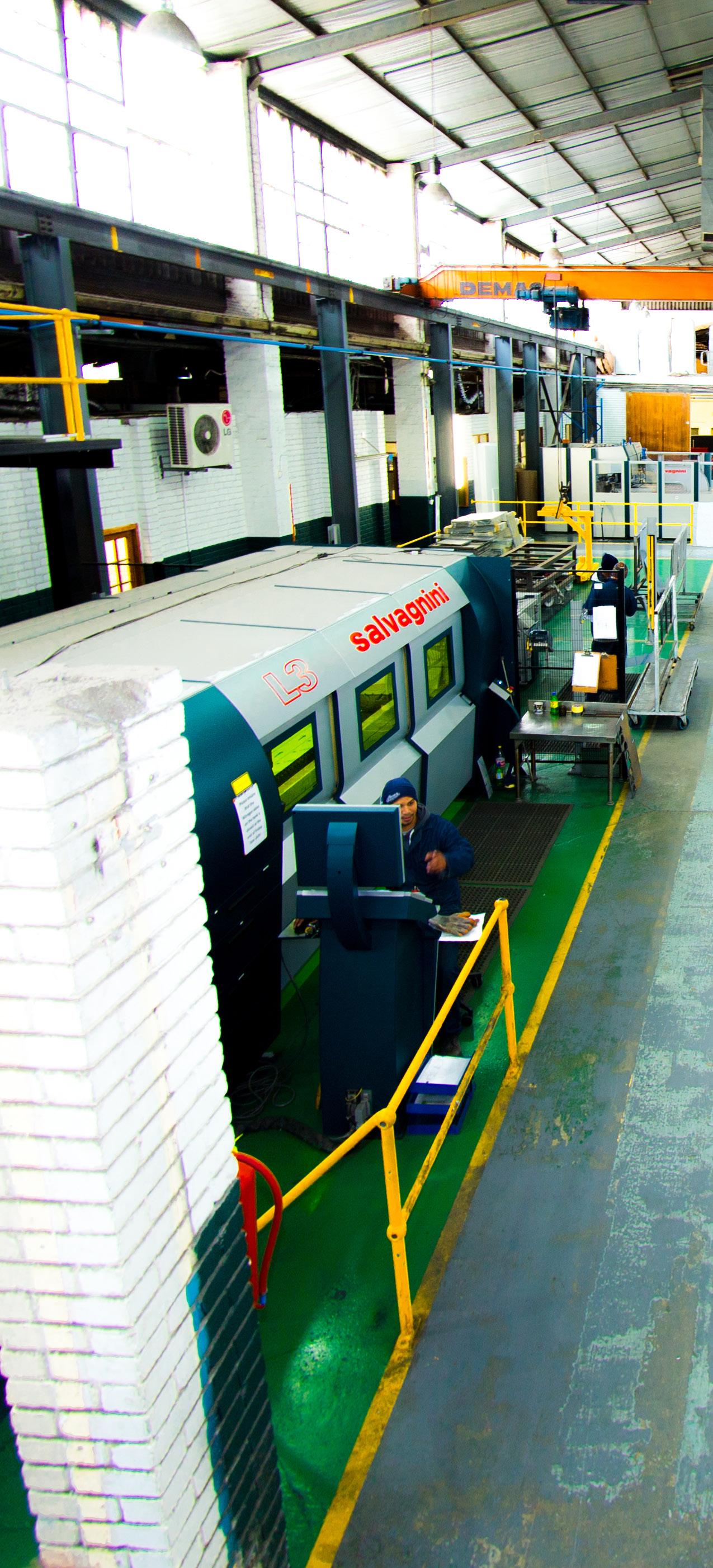
68 / www.enterprise-africa.net
PRODUCTION: Karl Pietersen
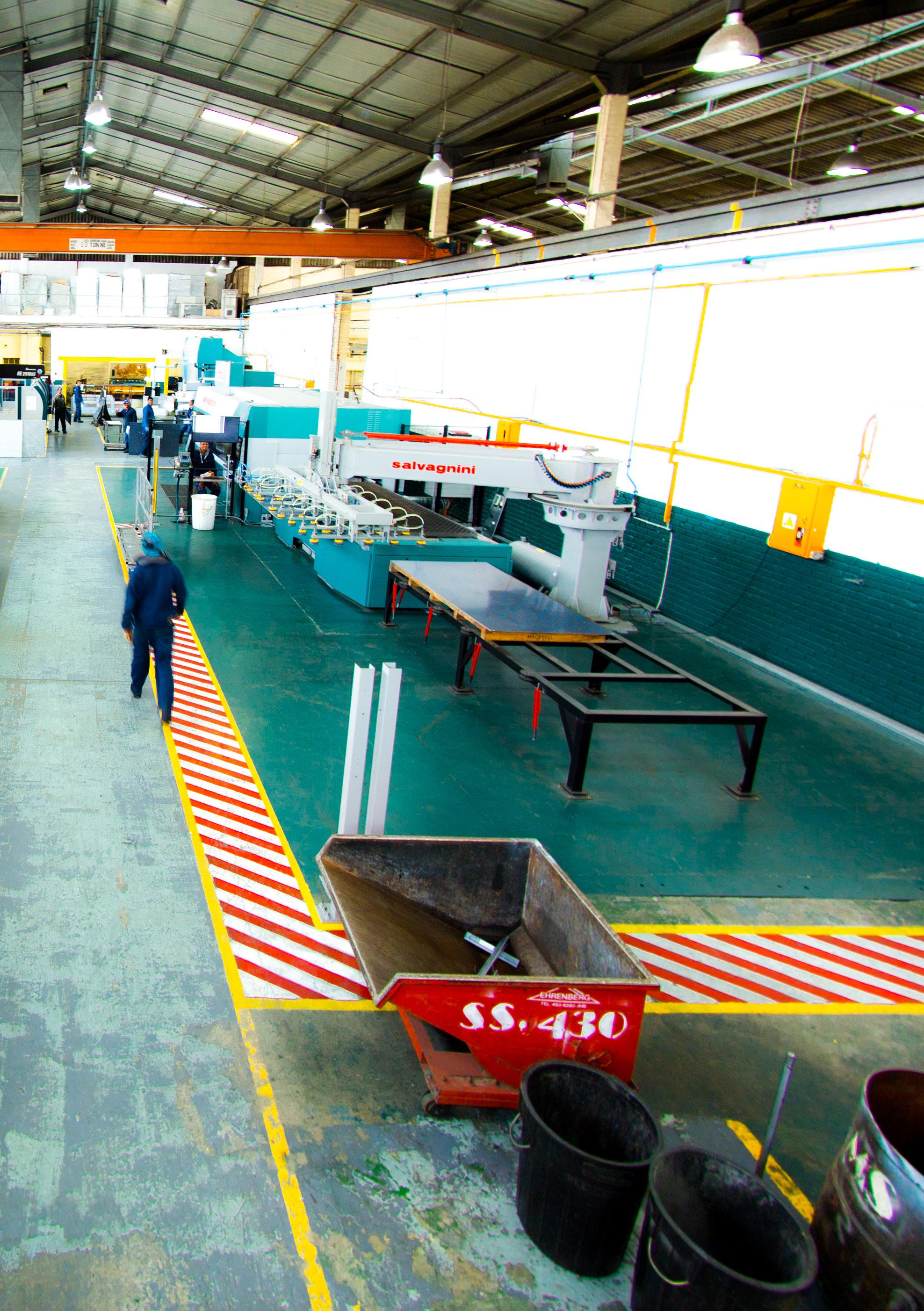
INDUSTRY FOCUS: MANUFACTURING
//In the early 2000s, a group of restauranteurs sat together and talked about their frustrations in the industry. While competition, pricing and differentiation were all key concerns, one of the most important worries was the quality of equipment that was being delivered to restaurants as well as inefficient kitchen designs. After some discussion, this problem was identified as an opportunity. The group, many of whom remain in the restaurant industry today, pooled resources and established Mac Brothers, a South African company that manufactures catering equipment, designs kitchen layouts and provides other professional services.
Craig Roff was a part of the group and today he is CEO at Mac Brothers.
“The idea when we started was to offer a service to clients that we were looking for from equipment suppliers of the time. We thought we could change things and do it better,” he says, like a true entrepreneur.
When the company was established in 2002, standards in the industry were different. Kitchen equipment suppliers had become too comfortable. “Up until then, the customer would order a bunch of equipment that would get delivered to the pavement and the customer would call the plumber and electrician to connect things up,” says Roff.
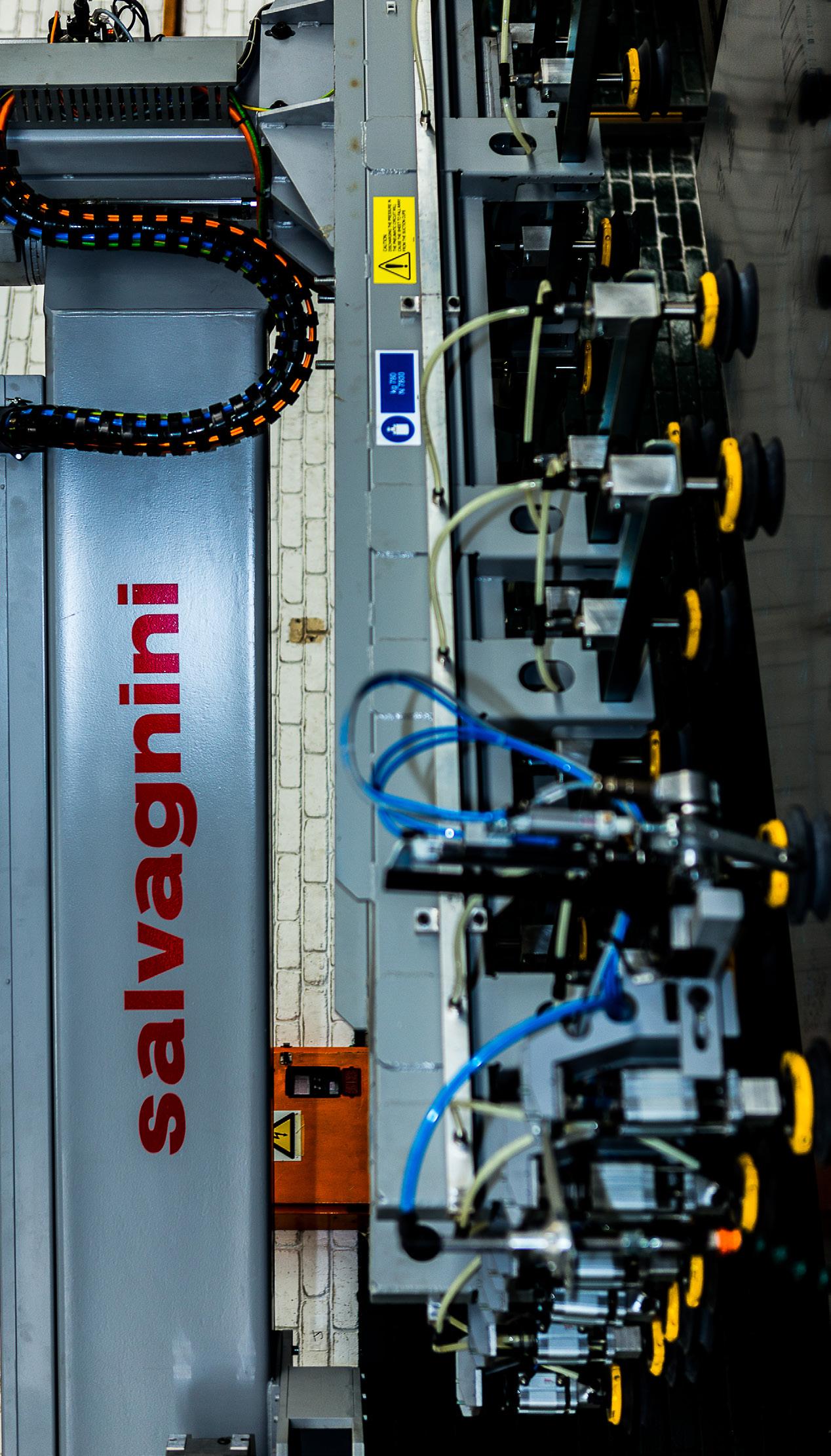
At the time, GDP growth in the country was reasonably strong. Business confidence was good. People were happy to invest and open new outlets. Mac Brothers saw the gap in the market for a player that could deliver quality.
“We started with a manufacturing facility in Johannesburg and we started designing the restaurant and the kitchen for the customer, and that wasn’t being done in South Africa at the time,” details Roff.
“We invested a lot of money into software to design kitchens and show the customer what a kitchen could look like before ordering. We believed we could take all of that hassle away, design it to order in advance, come and install for the customers and remove
70 / www.enterprise-africa.net
// TOVER THE YEARS, AS WE GREW, WE TOOK ALL OF THE EARNINGS FROM EACH YEAR AND PLOUGHED IT BACK INTO THE FACTORY SO THAT IT WAS STATE-OF-THEART. WE INVESTED IN ABSOLUTELY FANTASTIC EQUIPMENT WHICH IS SOME OF THE BEST IN THE COUNTRY //
MAC BROTHERS
headaches and problems. The idea was to half the amount of time it takes to open a restaurant.”
As the company grew, its advanced skillset and experience became obvious for all to see and the Mac Brothers brand became one of the industry front runners in the production and supply of high-quality catering equipment. Growth catalysed the addition of a service team and further investment into the company’s manufacturing capability, ensuring that its abilities became truly world class.
“We added our own service department in which we had a team of technicians on the road in different areas and we built that up over the years,” says Roff. “All training happens in the warehouse first, and then teams go out and handle repairs on all equipment. All of our competitors were outsourcing to third parties so we wanted to keep it in house, offering a better service, and carrying the stress for our customers.
“Over the years, as we grew, we took all of the earnings from each year and ploughed it back into the factory so that it was state-of-the-art. We invested in absolutely fantastic equipment which is some of the best in the country. Our Salvagnini panel bender, from Italy, was the first in South Africa. Our factory was used as a showroom to display this piece - a new one today would cost around €1.2 million,” he adds.
GPI DEAL
A milestone moment for Mac Brothers came in 2014 when a deal was struck with Grand Parade Investments (GPI) –the JSE-listed empowerment company which owns a number of international brands in South African hospitality –to acquire a majority shareholding in the business.
This move positioned Mac Brothers as a provider of catering equipment and kitchen solutions to the likes of Burger King, Spur and several others. “They also own hotels and casinos, and they thought they could integrate into all of
their brands and casinos by purchasing Mac Brothers. Since then, I have been CEO and I have been driving the company forwards for 19 months. We have been restructuring, redirecting and refocussing our activities,” says Roff.
The company has started on a diversification programme which will see it enter new market segments in new industries but always remaining focussed on manufacturing of stainlesssteel products.
Global Foodservice Solutions
Duke Manufacturing is a global food service equipment pioneer that’s been delivering profitable and innovative solutions for the food industry 95 years.
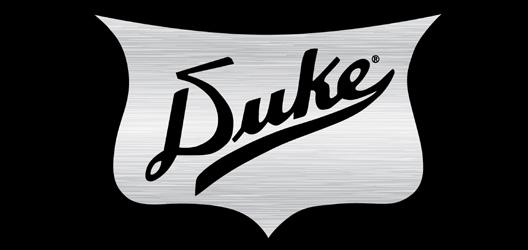
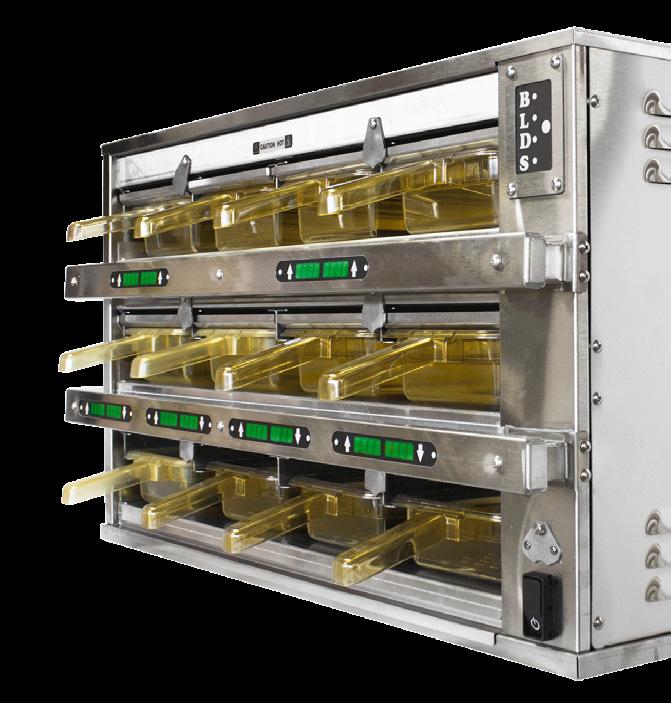
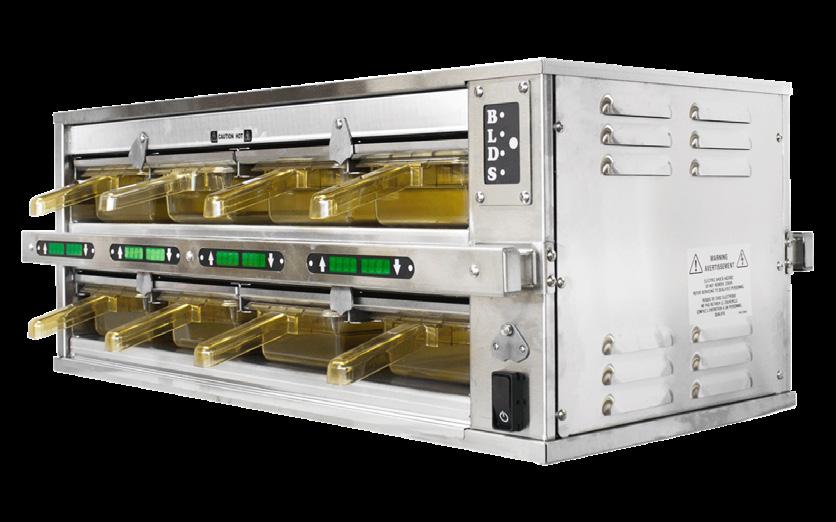
Duke Manufacturing
Duke are the leading manufacturer of quality holding systems for back of house kitchen operations. Our holding platforms deliver improved food quality, hotter temperatures, offer waste reduction, whilst speeding up meal serving times. Our holding solutions are ideal for quick service restaurants, casual dining, stadium feeding, pub locations and institutional kitchens. Product holding has become significantly relevant today as it simplifies kitchen operations whilst benefitting the overall customer experience
www.enterprise-africa.net / 71
INDUSTRY FOCUS: MANUFACTURING
“We are the second largest stainless-steel manufacturer in South Africa within our category, says Roff.
“We’ve aggressively done a lot of R&D over the past two years and we have spent almost R2 million doing it. We are now seeing the sales come through and it has already paid for itself – we are blown away by that.
“We have introduced a new medical range which is all stainless steel and lends itself to our factory. It has taken off very well and has been very well received. There isn’t anyone else in South Africa doing it right now and, on the pathology and mortuary side, we have made great inroads. I believe it is going to be a fantastic growing part of our business going forward.
“We have also become involved with ventilation and extraction canopies. We have bought in

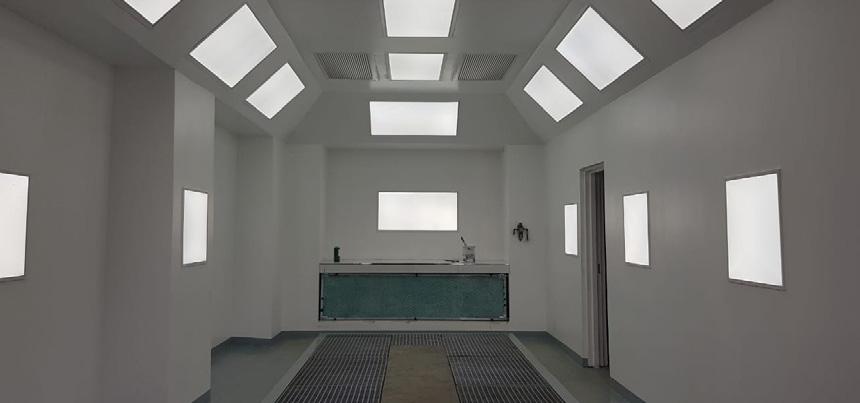
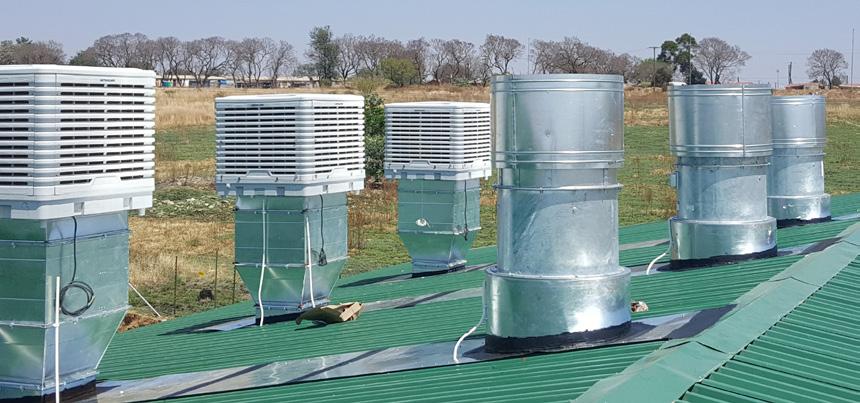
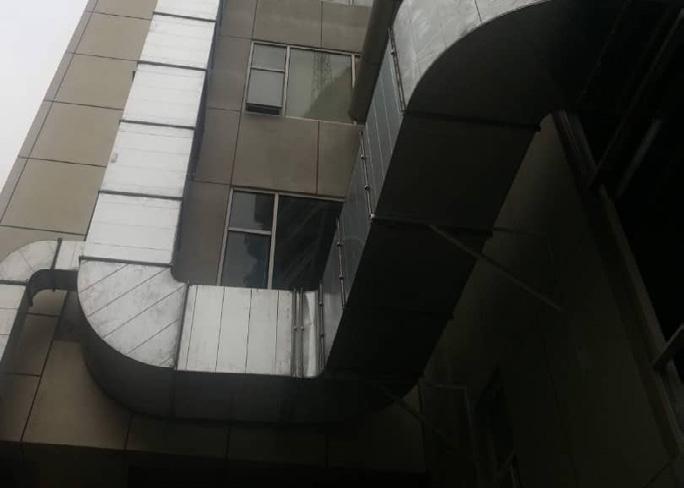
a product called Amerex Fire Suppression Systems from America. We have the sole rights for Africa and we are rolling our extensively in the mines, on extraction canopies in restaurants, and in hotels. It’s doing very well and it lends itself to the full turnkey solution that Mac Brothers offers as a company in industrial catering equipment and industrial kitchens.”
Diversification is an important strategy to ensure growing technical capability, cross selling opportunities and a reduction in risk exposure. For Mac Brothers, the result has been a sustainable business with more than 2000 products, 3000 satisfied clients, four branches and more than 250 employees.
“Growing into the medical industry and focussing on bespoke
products and solutions has been a change for us in the past two years. Limiting what we do and concentrating on a set market rather than trying to be everything for everyone has also been a different approach,” says Roff.
AFRICAN RECIPE
Diversification at Mac Brothers does not only mean entry into new industry sectors, but also new geographic markets. For 17 years, the company has built a reputation in South Africa as a quality service provider for its clients and now Roff is keen to develop that reputation on the continent where there are major opportunities for growth.
“Our key focus is to align ourselves with partners in Africa and extend our growth into Africa,” he
72 / www.enterprise-africa.net
WE CARE FOR YOUR AIRANYWHERE! Members of AVS have been installing ventilation systems in Africa for over 20 years. AVS specialises in the design, supply and installation of HVAC, Kitchen, Industrial and Agricultural Ventilation Systems. We are Certified installers of the Amerex Fire Suppression Systems for Kitchens and Vehicles. ADVANCED VENTILATION SERVICES Office: +2711 425 2782 • admin@avssa.co.za Trevallion:+2771 869 7238 • info@avssa.co.za Stewart: +2783 393 0878 • stewart@avssa.co.za
Hotel Diamante; Luanda Angola
Food Processing Plant; Zambia
Downdraft Spray Booth; RSA
says. “Currently, we have nine different countries that we sell into across Africa and we want to grow that to 13 or 15 in the next two years. We want to establish the Mac Brothers brand in Africa and the Indian Ocean islands.
“Kenya, Rwanda and Ghana are strategically important for us now. We were engaged in Angola previously
but when the oil price dropped we had to pull out as there was no business but Angola is starting to flourish again so those four countries are definitely on our radar.
“Those countries are ones which we have identified with massive growth potential but also with limited risk,” he adds. “We need an environment where it is conducive for a South African company to do business alongside a local partner. The rest of Africa is still slightly less conducive and it can be difficult to trade. We need regions where the economy and government are stable, corruption is dealt with, businesses are wanted, and infrastructure is in place.”
There is already a Mac Brothers branch in Harare and the company has expanded in Africa alongside its clients that have sub-Saharan African presence. Over the past year, the
company’s success in Africa has been significant and has relieved pressure on the South African operation which has been trading against a difficult economic backdrop, with slow GDP growth and fewer restaurant openings.
“Our strategic objective is to limit our exposure in South Africa in terms of manufacturing for local companies and rather concentrate on the African market to keep our factory sustainable,” details Roff. “I believe the South African economy will turn, and is turning, but I believe we have another 12 or 18 months before the full turn materialises. While that is happening, to keep us running sustainably, our drive has been into Africa. We started with that strategy 12 months ago and we have executed really well. Our growth into Africa in terms of revenue has grown 100%
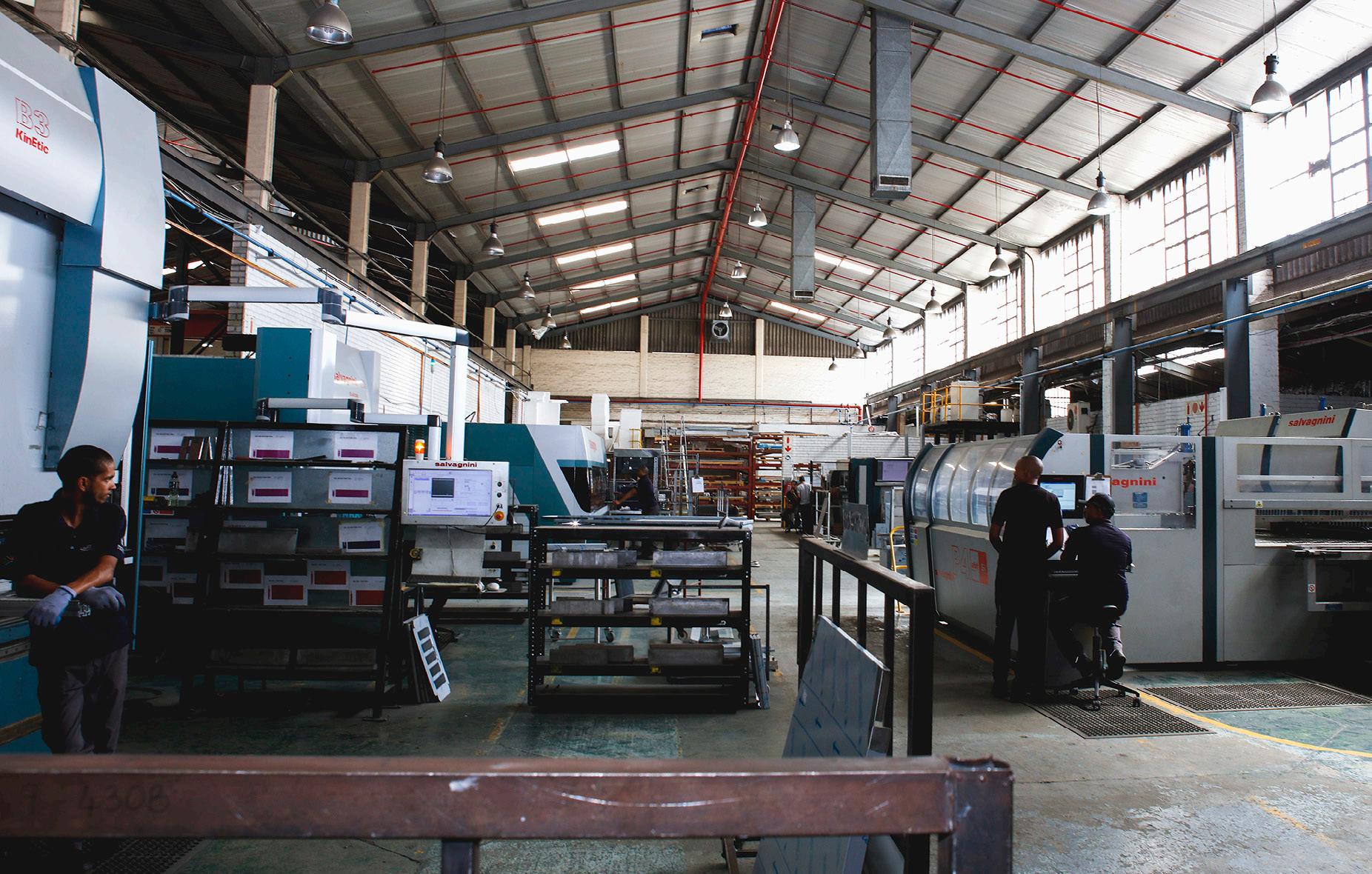
www.enterprise-africa.net / 73
MAC BROTHERS
// CURRENTLY, WE HAVE NINE DIFFERENT COUNTRIES THAT WE SELL INTO ACROSS AFRICA AND WE WANT TO GROW THAT TO 13 OR 15 IN THE NEXT TWO YEARS //
INDUSTRY FOCUS: MANUFACTURING
demonstrated its capability operating in foreign markets, there remains big opportunity in South Africa and Africa.
COMPETING ON QUALITY
year-on-year and we are targeting 70% growth in the next financial year. Our diversification into new areas such as medical and fire suppression, and also cutting down our stock holding, has helped us to streamline and develop efficiencies.”
Beyond Africa, Mac Brothers will wait for the right opportunity. While the company has already
“We have been in Australia a couple of times, and New Zealand, and the reason for that is we have been following local South African brands that have expanded there,” Roff explains. “We containerised kitchens in South Africa and shipped over, installing very successfully. As for marketing our product and selling into those areas, it’s not something we are looking to do right now and I think we have a massive job to do in Africa where there is a lot of potential to make a lot of money before we look at other countries which are much further away from us.
“All our product is IEC certified and that is the global certification on catering equipment so we can ship to any country.”
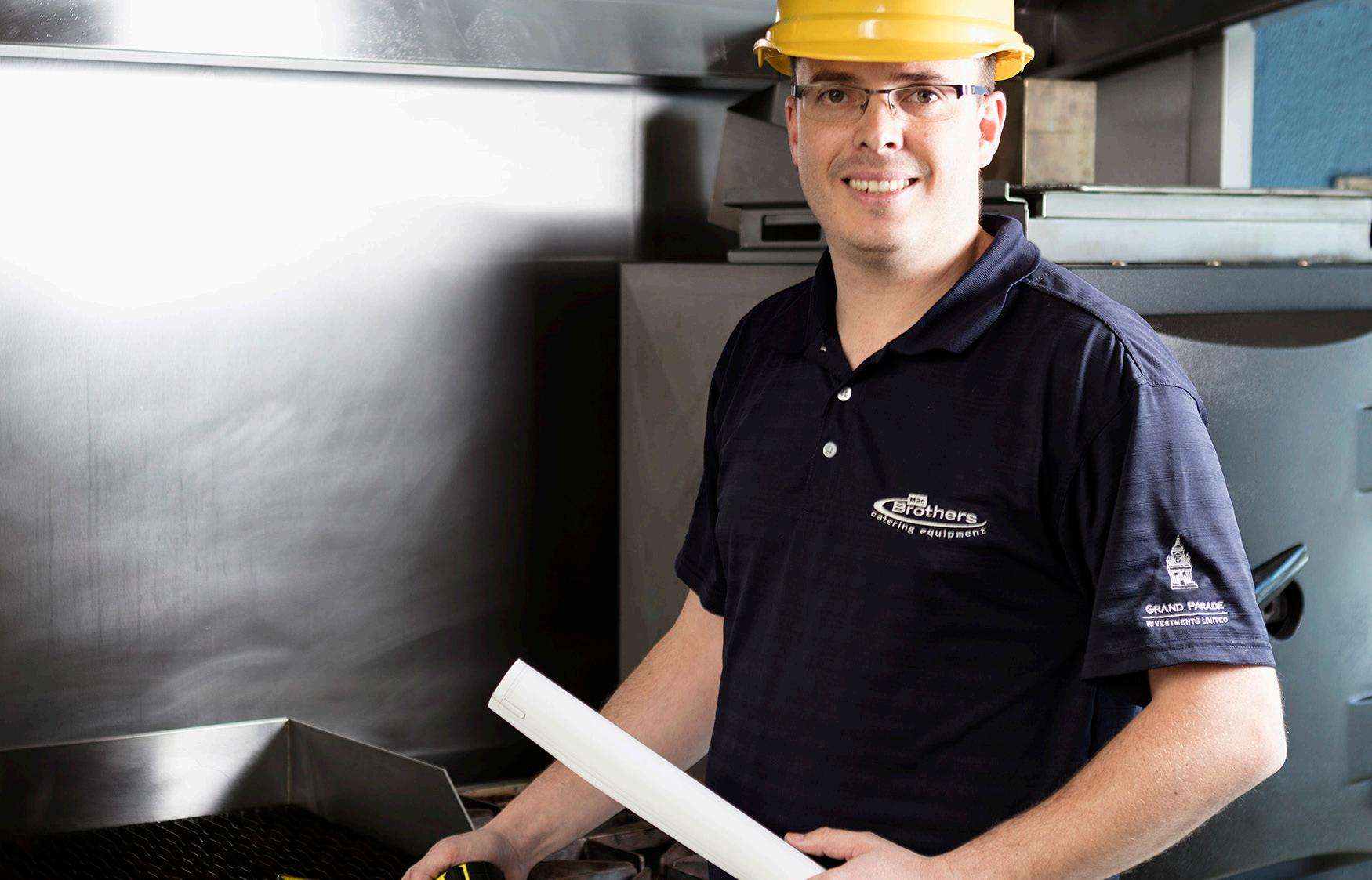
Away from its core of catering equipment, Mac Brothers now has divisions focussing on design, technical services and professional services. Across all business units, the company has dedicated itself to quality service and quality products. It is this dedication to quality that sets the company apart as, according to Roff, competing on price is not an option.
“There are three large payers in our market and we feel the pressure all the time,” he says. “I would say our competitive edge is the world-class manufacturing facility that we have which our competitors do not have. Also, the service that we offer in the industry and the flexibility that we have in terms of modifying something special helps to give us a competitive edge. Everyone in South Africa plays in the same pricing range and works
74 / www.enterprise-africa.net //
CURRENTLY, WE ARE WORKING ON A R1.4 MILLION UPGRADE TO OUR R&D DEPARTMENT WHICH IS A KEY PART OF OUR BUSINESS //
with the same pricing structure so our choice is to compete on quality.
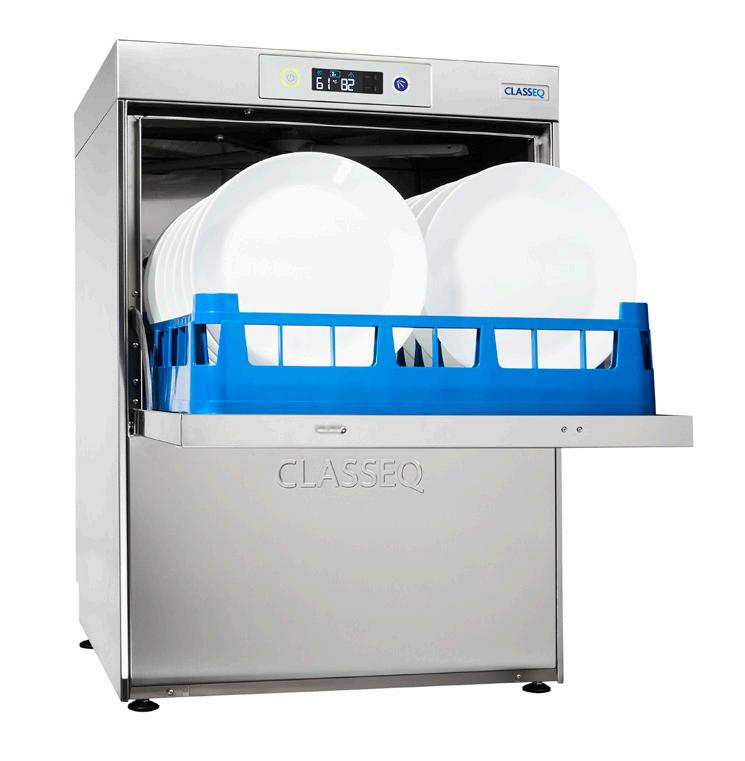


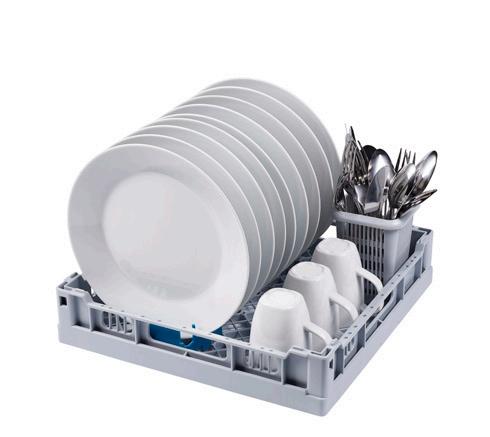
“We invested in all new machinery including new press stakes, punching machines, lasers and welding lines. Currently, we are working on a R1.4 million upgrade to our R&D department which is a key part of our business.”
These investments into quality will help to separate the company from the rest going forward, and this will be extremely important if Mac Brothers is to reach its ambitious targets.

“With our world-class fabrication facility, we have the capacity to double
our turnover from where we are now, with little added cost. We will fill that capacity with the growth that we are searching for in Africa. In four years time, I might have a different opinion. There have been many South African companies that have headed into Africa and tried to do something but they don’t always succeed,” says Roff.
After starting the business during a shift in the industry, Mac Brothers is now at another turning point. If it can go on to succeed further in Africa, this ambitious and quality focussed organisation can easily pitch for the continent’s industry leading position.
Firstly, the company must continue to delight its local customers and build its brand in new markets by displaying the entrepreneurial spirit which helped establish it 17 years ago.
“There has been a big downturn in the past two years and there has been a lot of uncertainty. It’s been very tough for us to gage, judge and plan with the economy the way it is. That is why we have gone into Africa. Africa has a number of large longterm projects,” Roff concludes.
www.enterprise-africa.net / 75
WWW.MACBROTHERS.CO.ZA MAC BROTHERS
// THE IDEA WHEN WE STARTED WAS TO OFFER A SERVICE TO CLIENTS THAT WE WERE LOOKING FOR FROM EQUIPMENT SUPPLIERS OF THE TIME //

PLUMARI GROUP
Snowballing In Gauteng
PRODUCTION: Colin Chinery
Instinct, timing and decisiveness are hallmarks of Gauteng-headquartered property specialists Plumari, a cocktail remarkable in high-profile snowballing achievements. “When you rent from us, you can be assured you are in the right spot for success,” says MD Leigh Hindshaw.
Snowballing is not among the notables of South African pastimes, but its effect summarises the remarkable story of Randburg-based property specialists Plumari.
Founded in 1979 by Giuseppe Plumari, it’s a narrative charting the rise of a business that began as an after-hours activity and grown to become the major shareholder in sixty companies, with a dazzling portfolio
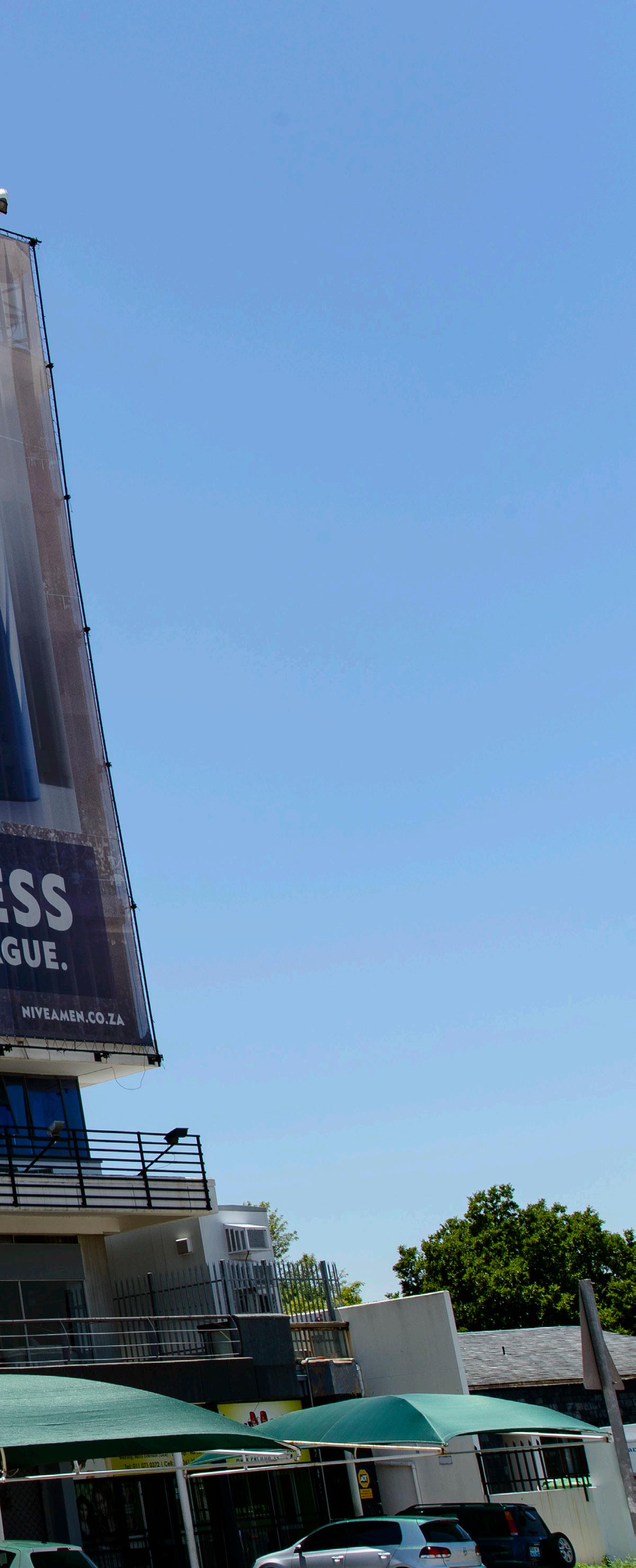
of commercial, retail and industrial property rented to tenants.
“Every one of our properties has been specifically selected to provide the perfect location for our clients to succeed in both the short and long term,” said Giuseppe’s daughter Leigh, who now runs the business together with brother Dino and sister Daniela.
“When you rent from us, you can be assured you are in the right spot for success.”
JUMP START TO SUCCESS
The success instinct showed early when the astutely ambitious young Giuseppe pole-vaulted from his spare-time home alteration and construction work.
“At a time when not many people in South Africa were buying property, he started buying small pieces of land on deed of sale and building luxury homes. And from there the business snowballed.”
Far from piecemeal, these acquisitions were specific parcels of land
www.enterprise-africa.net / 77
//
INDUSTRY FOCUS: PROPERTY
which Giuseppe saw - correctly – as future nodes; arterial intersections prime for development
A key moment came in the 2005 when a partnership with long-time friend and business collaborator Douw Steyn saw the launch of one such node – South Africa’s largest future parkland residence, Steyn City.

On the edge of affluent Sandton, 15km north of Johannesburg, the 2000-acre self-contained lifestyle city connects Fourways to Lanseria, Broadacres and Midrand, offering home buyers a safe lifestyle, pedestrianfriendly environment amid landscaped green belts and parks and every conceivable urban amenity.

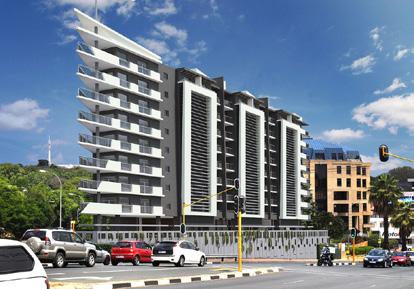
Strategic interconnection has been central to another Giuseppe epic snowballer - Plumari Private Reserve, located between two of Gauteng’s most
picturesque regions, Hartebeespoort and Magaliesberg.
Today a beautiful 7500-hectare area of bushveld, mountains and wetlands, Plumari Private Reserve is the closest Big Five game reserve to Johannesburg.
Here amid the region’s unique flora and fauna, guests can see a kaleidoscope of wildlife from leopard, white rhino and buffalo, to hippo, giraffe and zebra.
Like Steyn City, it is a creation where elegance and stylish living are crafted in harmony with the natural environment, a heritage enhanced by the deep sympathies of its originator and managers.
But like Giuseppe Plumari’s youthful founding strategy, its origins began with a series of small, astute land purchases –in this case a 200-hectare smallholding back in 1995.
World Class Structural & Civil Engineers
PASSION AND THE DREAM
“Our father is passionate about wildlife and had always dreamt about having his own game farm,” says Daniela.
“Over the years he bought neighbouring farms, took down the fences in between, and slowly began introducing wildlife.”
Was this the early emergence of the greater vision that was to see the creation of Plumari Private Reserve?
“No, it was just something he was passionate about. In those days he would go out there almost daily and ride his horse on a farm of which he knew every nook and cranny.”
His dream, says Leigh, was always to create a big reserve – “but I don’t think he ever thought he would get there.”
Dino concurs, and says the 2017 Nedbank Business Excellence Awards ‘Person of the Year’ winner is “one hell of an opportunist.
“When those pieces of land around the farm became available the entrepreneurial side of him took over.”
The passion and entrepreneurialism have certainly paid off. For the guest, the Plumari Private Reserve’s Askari Game Lodge and Spa offers guests a memorable Big 5 wildlife experience within a malaria free environment one hour away from Johannesburg.
Two game drives are scheduled daily, with an elephant interaction that includes an educational talk followed by a ‘touch and feed’ experience.
Another development, the Ukuphila Bush Residence, is a limited residential opportunity, with 75 exclusive homes clustered in three small communities, located on a site selected for its singular views and magnificent scenery.
78 / www.enterprise-africa.net
We are just a click or a phone call away www.mvw.co.za mvw@mvw.co.za 011 706 0443
// IN THE LAST COUPLE OF YEARS, WE HAVE PROBABLY BOUGHT MORE LAND THAN AT ANY TIME PREVIOUSLY //
ANCIENT AND MODERN
Described as ‘contemporary farmhouse’, the design of each home – priced from R3m for a stand, to R10m for a complete home with four bedrooms – is inspired by the old farm homesteads in the surrounds of Hekpoort, Hartebeespoort and Rustenburg, but updated and expressed in a modern manner.
And such is the expanse of this vast reserve that each home is secluded, with the clusters spaced to create that sense of remoteness which is the special gift of the bush.
All three camps are easily accessed from main tarred roads, with houses concentrated around a key hub to ensure wildlife viewing areas remain undisturbed.
The first show home - “absolutely stunning” says Daniela - is reaching completion, but marketing has been tempered by prevailing external circumstances.
“We are also explosing potential partnerships with venture capital companies within the 12J stuctures, which can open up massive tax benefits for investors and stimulate job creation in the area”
“But more recently we have been looking more into an opportunity where we would partner with a certain type of venture capital company looking for investors, which in South Africa can open up massive tax benefits.
“If we go ahead, an investment in the venture capital company would be backed by a title deed on one of the units.
“This means that at the end of say five years, you would be able to trade the money you invested for one of the units - which you could keep as your own home - or put into the hotel pool and earn a return on that investment. However, as yet nothing is concrete.”
FAMILY QUALITIES
As an experienced family-run business, the Plumari Group has the advantage of making deals happen timeously and
SOLID PRODUCTS, SOLID SERVICE, SOLID PEOPLE.
Solid Ceiling Products supplies ceilings, aluminium and partitioning products to both the commercial and private sectors of the construction industry. We pride ourselves in virtuous and personalized service. We ensure our material is delivered timeously, both locally and throughout Africa.

For information and pricing contact us on the below details: Email: sales@solidceilings or call: 011 794 3076 Or visit our website: www.solidceilings.co.za
SOLID CEILING PRODUCTS
Plot 79, Cnr Boland and Beyers
Naude Drive, Zandspruit, Honeydew
@solidceilings @solid_ceilings
PLUMARI GROUP www.enterprise-africa.net / 79
INDUSTRY FOCUS: PROPERTY
effortlessly, giving each client a close personal attention.
“While father is part of the decision-making process, and takes part in the weekly board meetings, he is not involved at all in the day-to-day running of the business,” says Leigh.
“Daniella is strong in the finance and technical side and passionate about the Farm, I deal with the operations and tenancy side, while Dino has enhanced the branding, innovation and utility sides of the business.
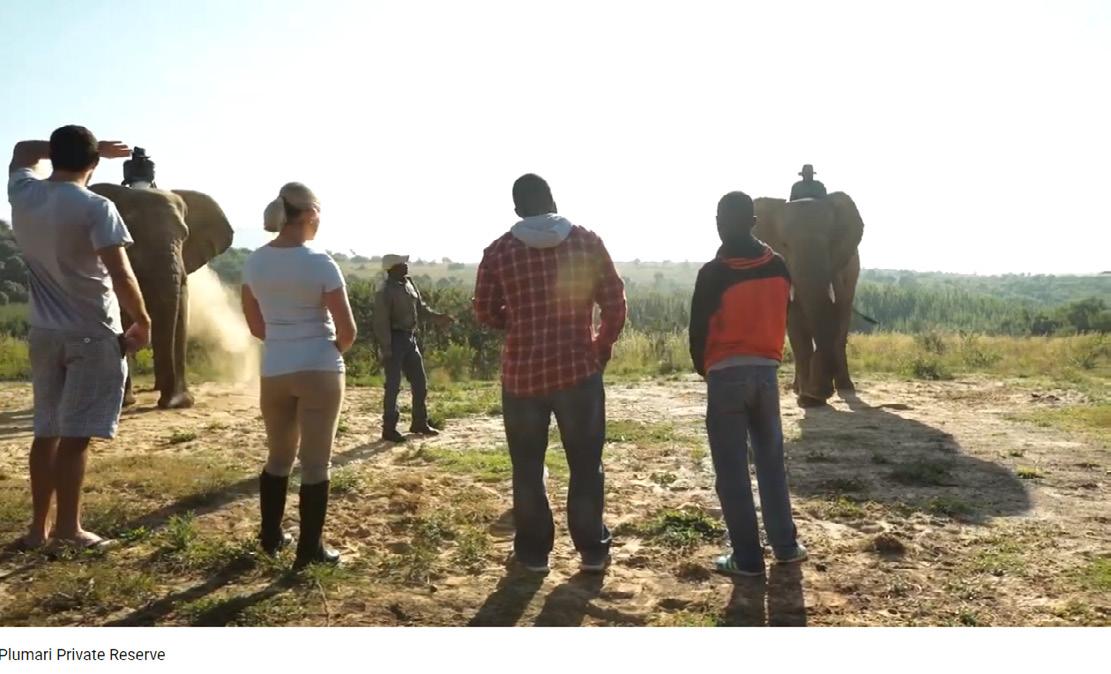
“It’s lovely working together. We see each other daily and get on exceptionally well - we are more like best friends.”
While the South African economy remains dysfunctional, with skyhigh unemployment and very weak investment, the latest data gives some room for encouragement.
Manufacturing output increased by 4.6% in April compared with April 2018, with the vehicle sector manufacturing up almost 19%.
Wholesale trade sales rose by 5.5%
year-on, with exports jumping by more than 8% to R112 billion, and tourism –employing directly and indirectly one in 28 – up 2%.
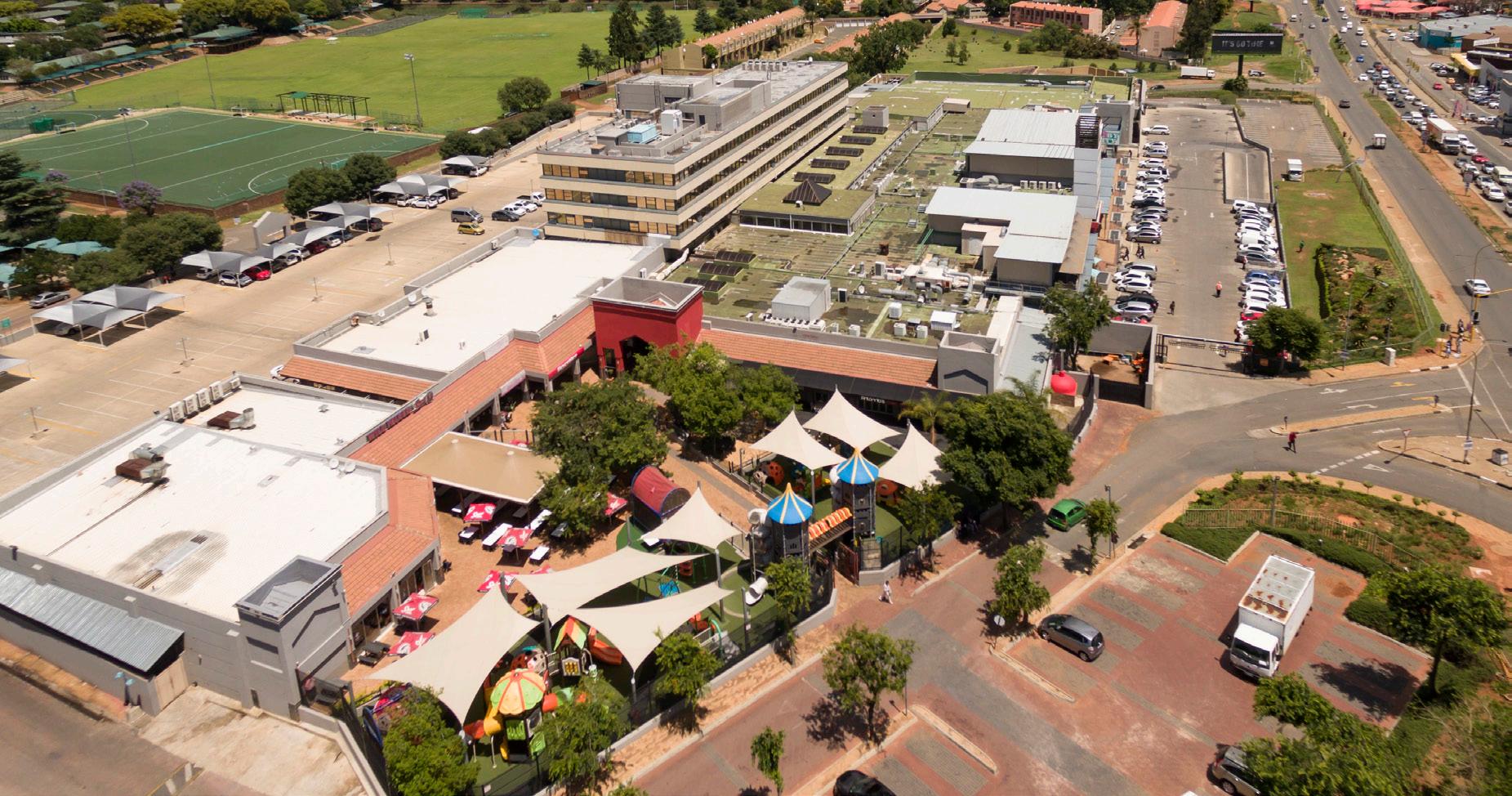
Meanwhile Eskom has downgraded the country’s powergrid alert status to ‘yellow’ from ‘red’ -, just one above ‘green – when no load shedding is expected.
So is there some scope for modest optimism across the flat Johannesburg area property scene?
HANDS-ON OPTIMISM
“We are extremely optimistic, and not only because of the words that have emerged from the new President,” says Leigh.
“We are a family business, and one that has managed to survive in the difficult times when other businesses have folded. We are a hands-on business that makes things work.”
Until now the company has been concentrating on the rental and

80 / www.enterprise-africa.net
• Waste management & recycling
• On site evaluation of your premises
• Evaluate & implementation of current waste management processes
• Professional Cleaning Services & Solutions
• Departmental responsibilities
• Cost saving exercise
• Used Oil & Scrap Metal Recycling
• Hygiene / Health & Safety
• On site sorter for recyclable material
• Weekly collection of general waste (subject to volumes)
• Field manager site visits & reports
XTreme Eco Waste Management & Recycling is a Consulting Company which is focused on disposing of waste in an environmentally friendly manner
www.xtremeeco.co.za
“More developments are in the pipelines, but we are hesitant to squeeze ourselves and not be able to be as hands-on as we are here,” says Daniela.
0048

READY FOR THE TURNING POINT
commercial sides of the business, “but with the Reserve side now ramping up a lot, the split is more balanced.
“We have focused on leisure and tourism in the past and now as property specialists we decided to turn it into a development.”
While its overwhelming investment is in the Johannesburg area, the Group is looking at other regions. Cape Town –where an investment has already been made - is seen as a place of opportunity, as is Durban.
“Looking into the future, we believe South Africa is going to grow from strength to strength. And because of inflation, we are expecting the rental market to turn around.”
Unsurprisingly, Plumari has been quietly backing its instincts, including a move, together with partners, into its first heavy industrial property – an 85,000 m2 site in the crane hiring sector.
“In the last couple of years, we have probably bought more land than at any time previously,” says Dino
“We have been going ahead, completing a lot of purchases and investing further and further into the country.
“From our perspective we are very optimistic about what is going to happen. And when we are optimistic and everyone else is pessimistic, is usually the perfect time to buy.
“And when everyone else starts to get a bit optimistic will be the perfect time to start selling our units, and I think our rentals will go up further. Overall, we are in a really great position for the turning to come.”
clive@xtremeeco.co.za
084 515
www.enterprise-africa.net / 81 WWW.PLUMARIGROUP.CO.ZA
PLUMARI GROUP
// FROM OUR PERSPECTIVE WE ARE VERY OPTIMISTIC ABOUT WHAT IS GOING TO HAPPEN //
AFRUPRO
The Fruit of a Generation
From seemingly nowhere, avocados have risen to become one of the inarguable favourite fruits of the 21st century. Afrupro is directly involved in the whole supply chain, from the orchard to the final product in the customer’s hands, supplying quality fruit in a responsible manner for a sustainable future. MD Simon Tattersall took us through how Afrupro is increasing volume to meet unprecedented demand, while retaining the quality and focus on sustainability for which it is famed.
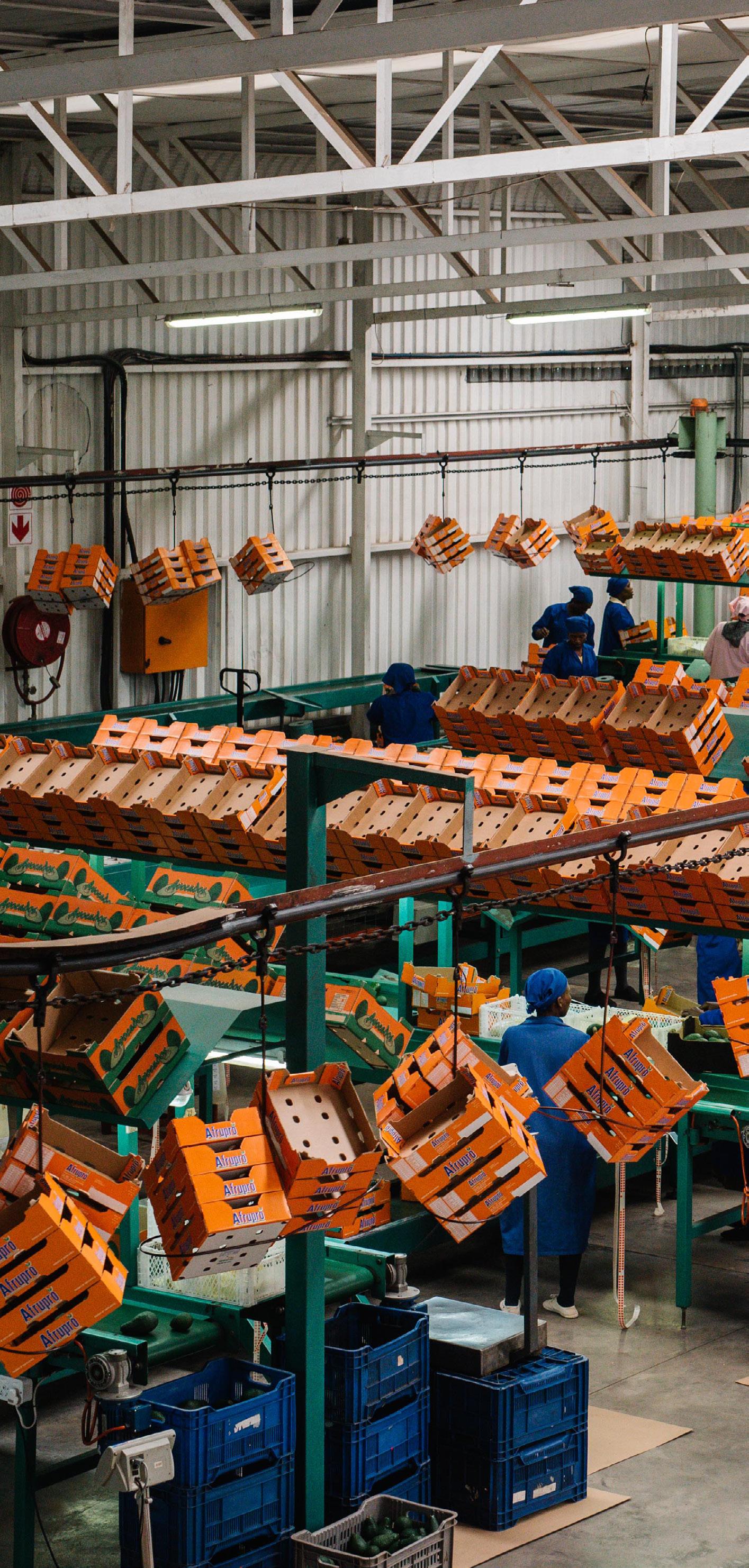
82 / www.enterprise-africa.net
PRODUCTION: William Denstone
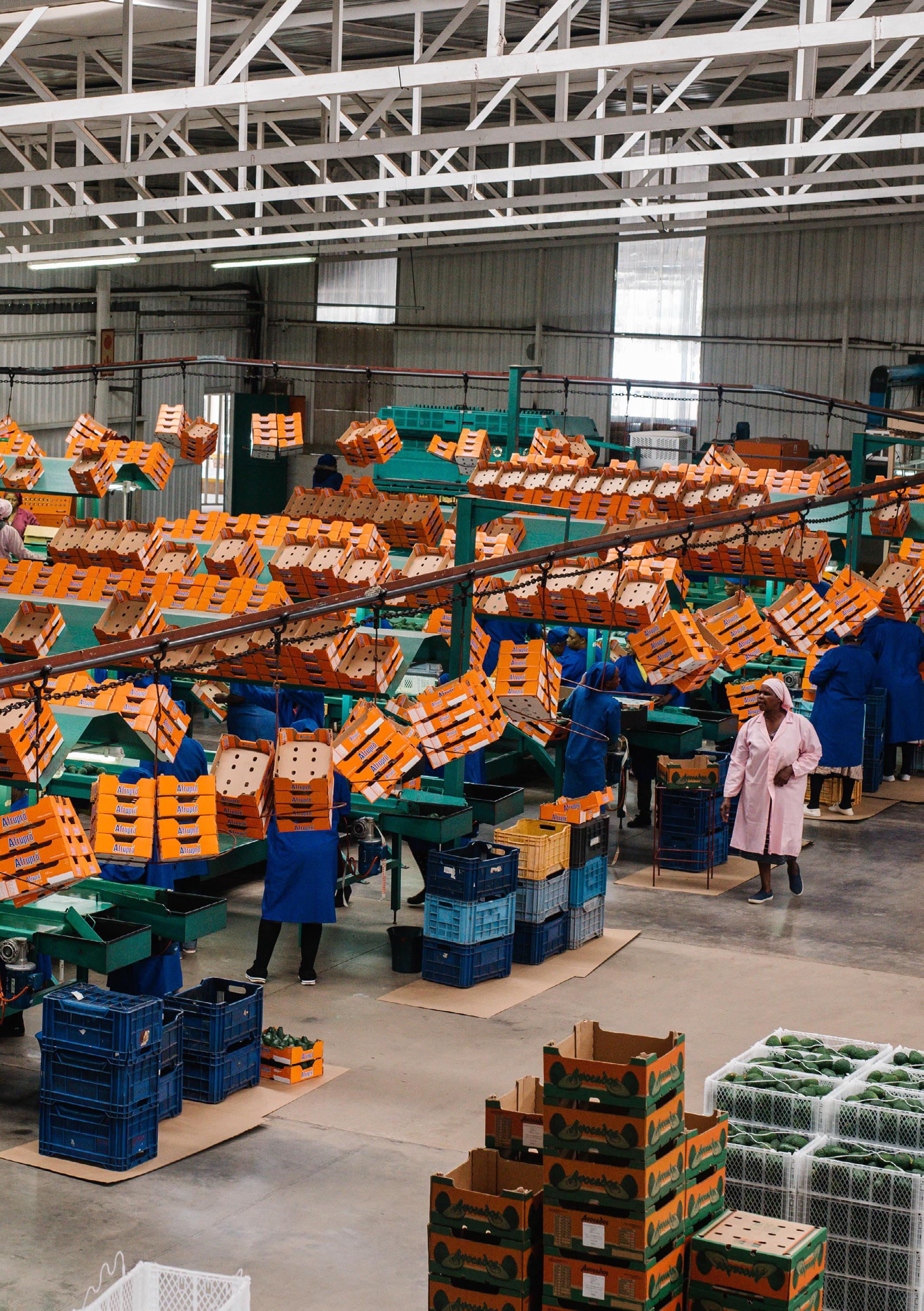
INDUSTRY FOCUS: AGRICULTURE
Afrupro Marketing (Pty) Ltd
is one of South Africa’s top subtropical fruit grower marketing companies, responsible for marketing all grades of locally grown avocados and litchis both in South Africa and internationally. The company’s offices are centrally located in Tzaneen, where it coordinates the logistical and packing programmes between its avocado and litchi growers, as well as the various packing and market activities.
Simon Tattersall, Afrupro Managing Director, has been with the company since October 2016 and reveals that it was a bid for fruit freedom that brought about its inception. “It was essentially a couple of farmers who wanted to break away from the more conventional, larger marketers and export companies,” he outlines.
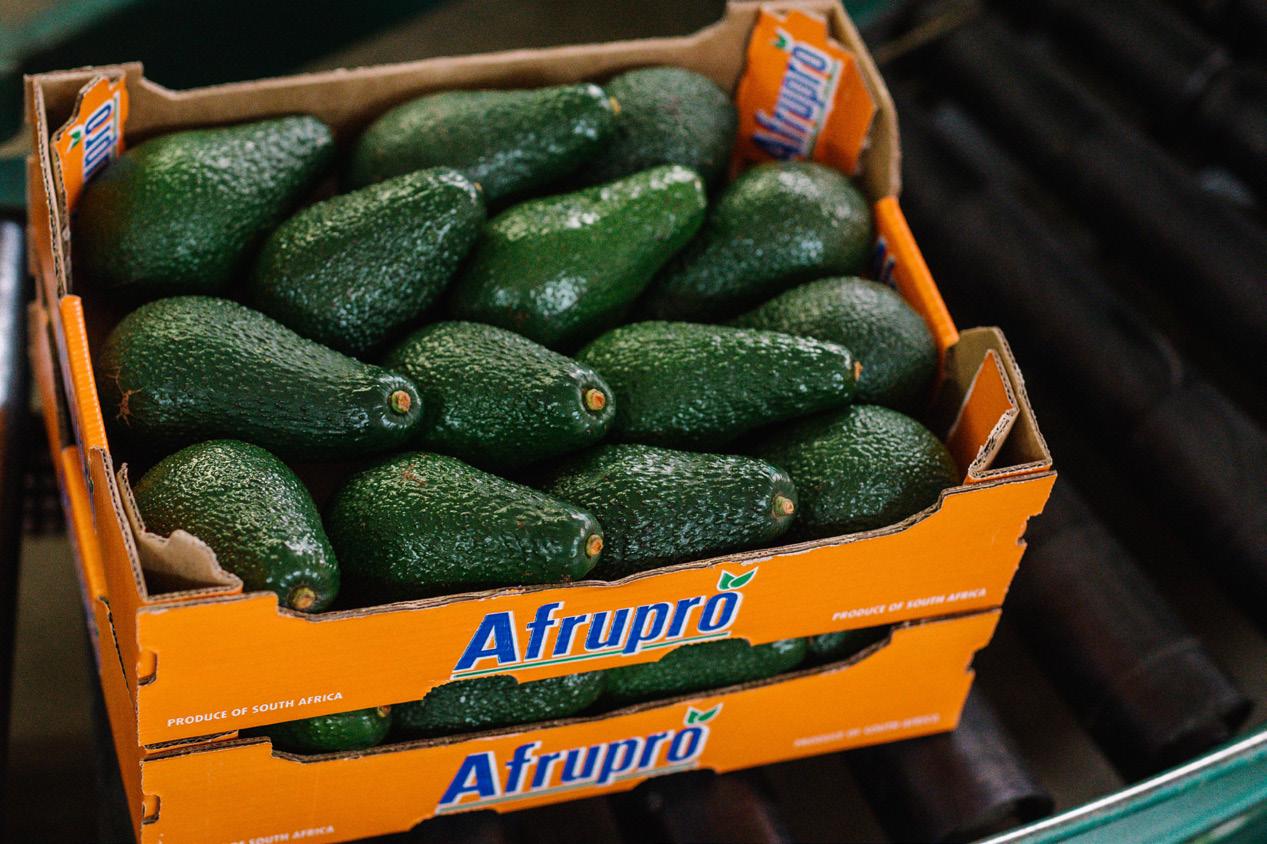
“Having been part of one of the major companies, they decided to form their own to gain greater transparency, not only in the returns they were receiving but also in terms of the cost structure and what they were paying for.
“We are based in what is probably the South African hub of avos and litchis,” Tattersall states, with Afrupro
in pole position in the South African industry which supplies around 13% of Europe’s total avocados. The avocado boom has been all the more welcome given the relative downturn for Afrupro’s other main line of produce (avos are the main line of produce, not sure what this sentence means?), Tattersall explains, as it means that there has been no resulting slack in overall results.
“We’ve actually seen quite a decline in litchi demand,” he says. “I think there are a couple of small issues with exporting the fruit, but also with Madagascar being so much the leading producer it is very difficult for the South African market to compete.”
THE RISE OF THE AVO
While the consumption of avocados dates back more than 10,000 years, the unprecedented popularity they currently enjoy makes the fruit seems like an exciting, fresh discovery. Since the turn of the millennium global production has more than doubled - from 2.71 million tons per year to 5.92 mtpy.
The boom has coincided with consumers becoming more health conscious and informed, with avocados
// WE ARE BASED IN PROBABLY THE SOUTH AFRICAN HUB OF AVOCADOS AND LITCHIS //
quickly becoming the dominant superfood due to their high content of unsaturated fats and antioxidants.
“From good old guacamole and smashed avocado on toast to avocado ice cream and even avocado chocolate cake,” writes Medium Food, “our society has become obsessed with this proclaimed superfood.” Simon Tattersall agrees that the convergence of factors, but not least the avocado’s multipurpose nature, has been key to its charming a generation.
“The fact that it is a super fruit, and a healthy snack, as well as its versatility has really helped to see the avocado’s popularity explode in these last few years,” he outlines. “People like the fact that you can put it on toast, or in a salad, or even on a pizza. Aside from its health properties, the range of applications this one food has seen demand soar, and continue to grow.”
Derek Donkin, CEO of the South African Avocado Growers Association, also explained that the growth in the local industry was a result of increasing appreciation across the world of the nutritional benefits of avocados and the diverse ways in which they can be used. “The healthiness of the fruit, its uniqueness and the worldwide trend towards healthy eating has been very positive for the industry,” he said. “Avocados can be used in all sorts of diets: Banting, vegan and ordinary.”
South Africa exports about twothirds of its average annual production of 90,000 tons. Commercial plantings of the fruit in the country have grown by 1000 ha a year and land under cultivation for avocado production is estimated at 17,500 ha by the South African Avocado Growers Association.
84 / www.enterprise-africa.net //
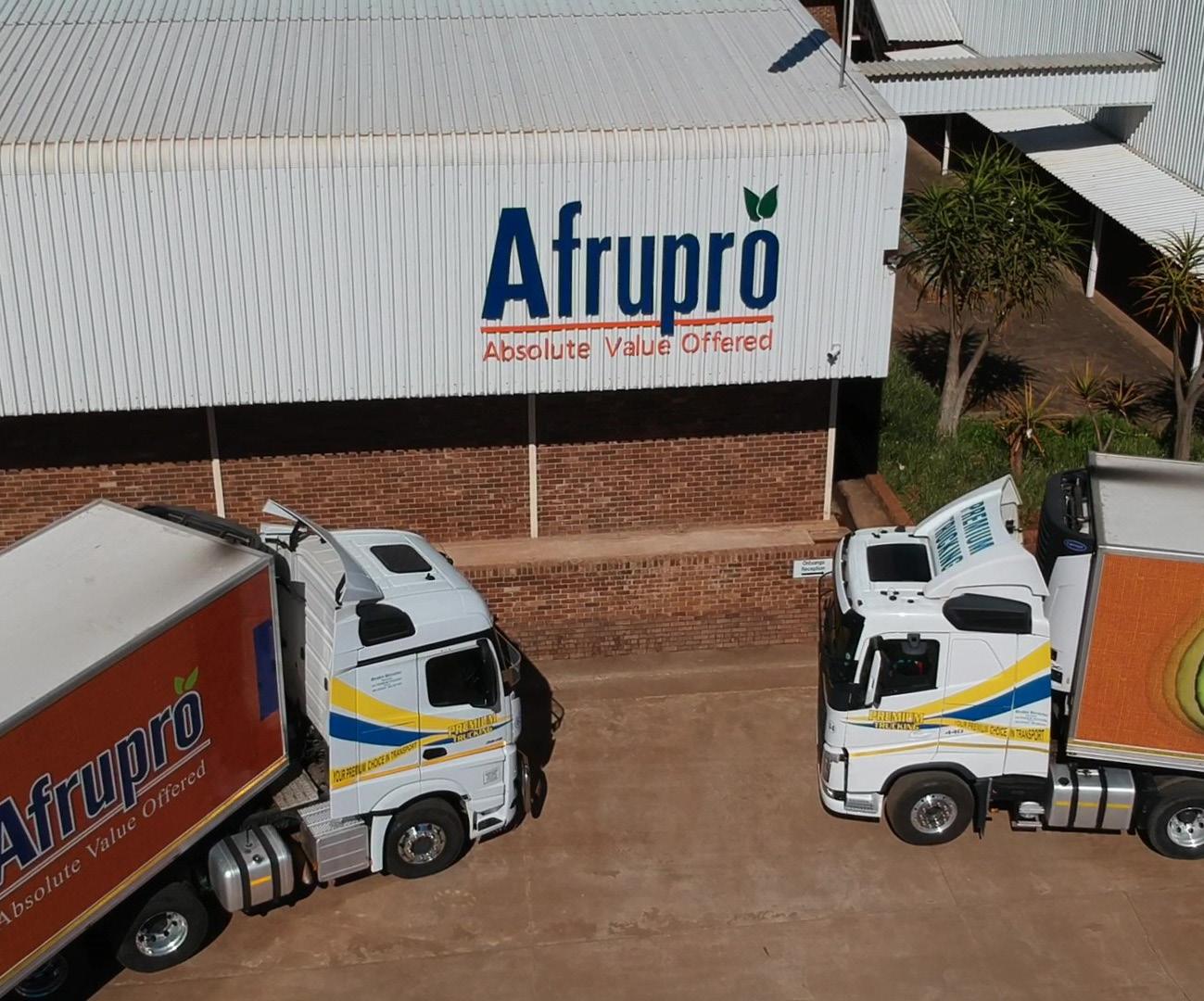
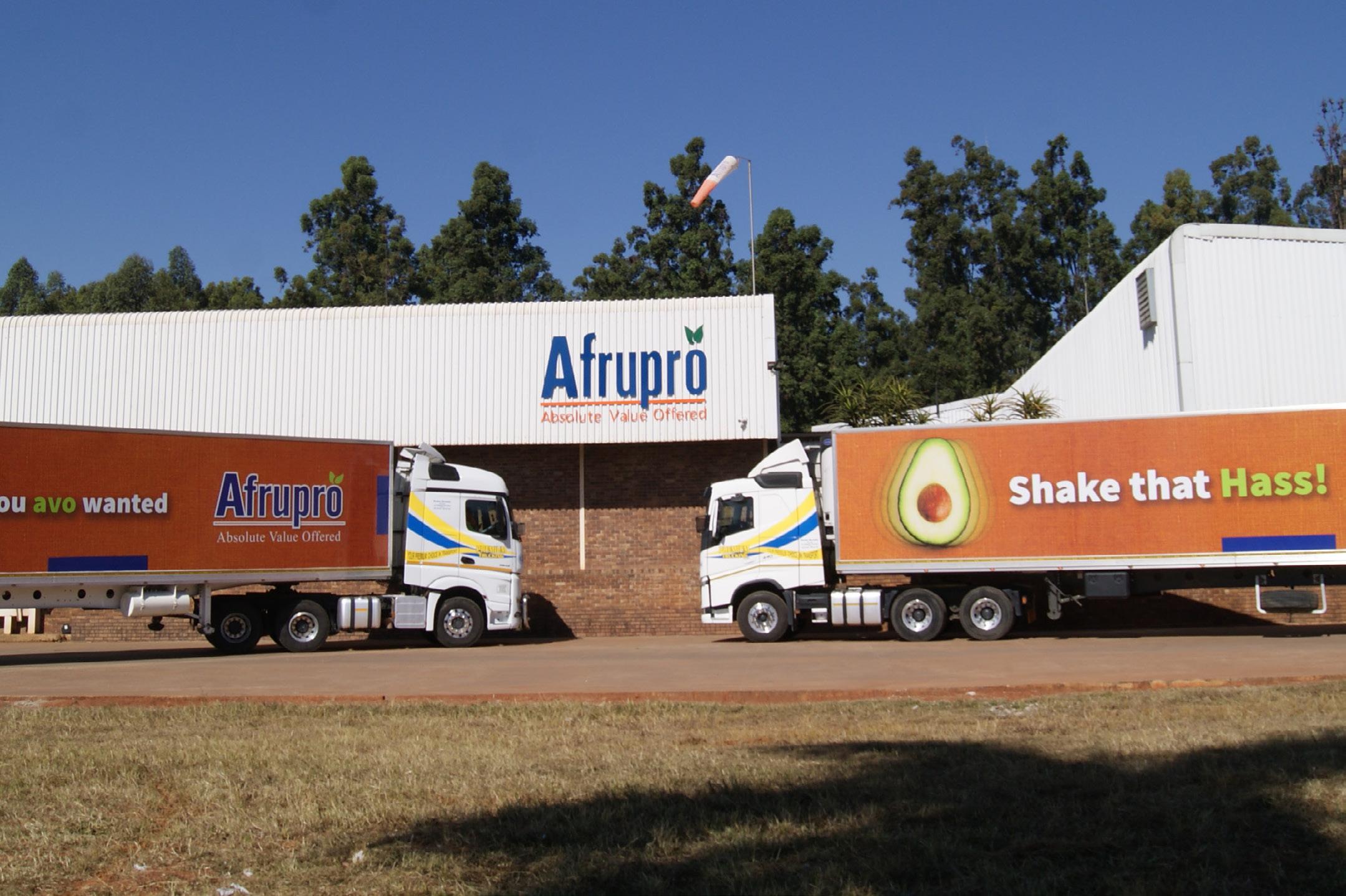

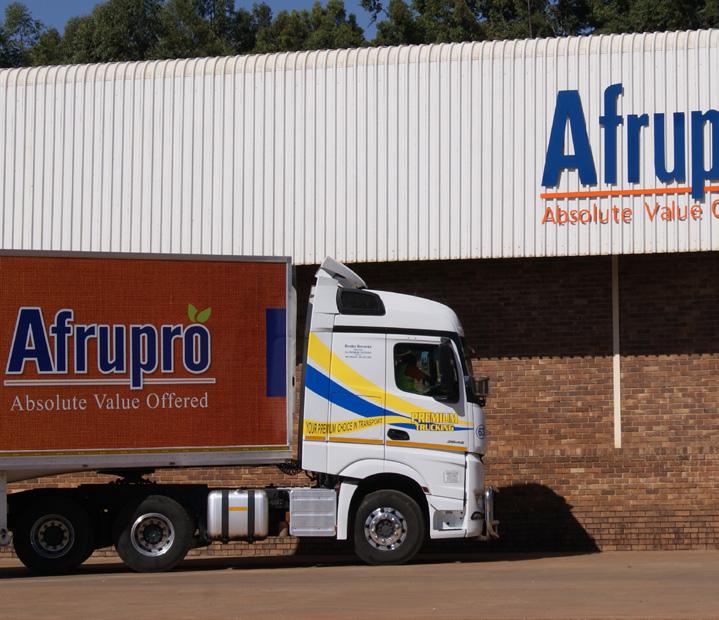
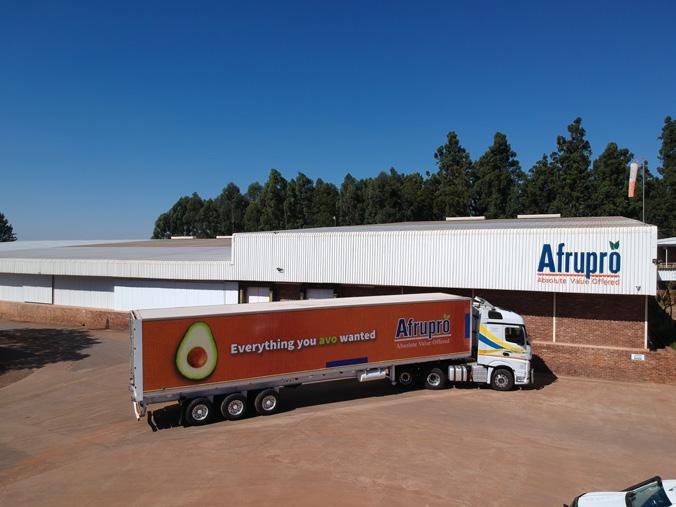
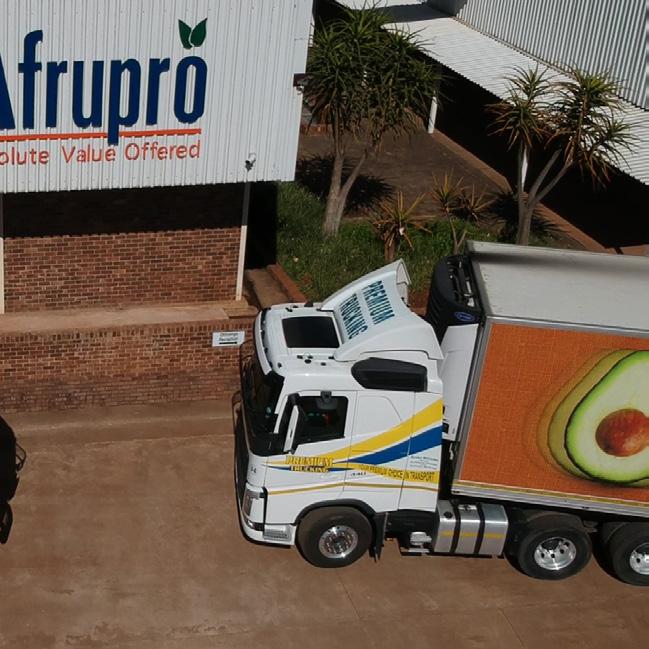
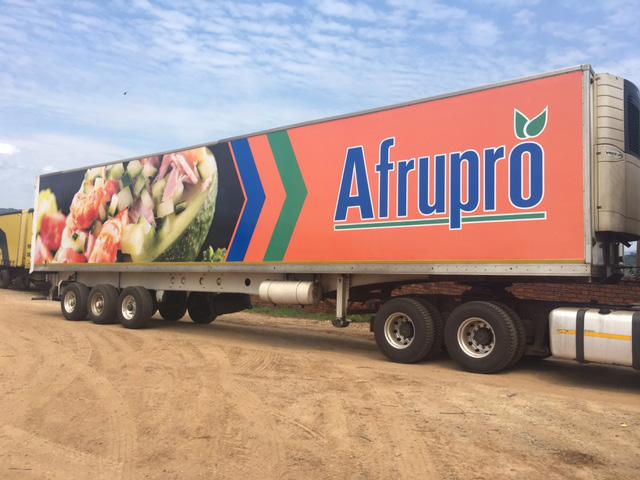
Premium Trucking is family business which had one truck when we established the company in 2004, the fleet has since been built up with Reefer and Tautliner vehicles. The fleet of Reefer trucks have been inspected by PPECB to comply with their quality certification and cold chain management of perishable food products. We specialize in Fruit and Vegetable transport across the country to all different fresh produce markets. We are committed to excellent service delivery to all our clients and ensure all loads are delivered as requested by customers. www.premiumtrucking.co.za | logistics@premiumtrucking.co.za 083 310 6374 | 083 252 7015 Plot 534 (R71 road), Broederstroomdrift, Tzaneen NATIONWIDE LEADERS IN THE TRANSPORT OF FRESH PRODUCE
INDUSTRY FOCUS: AGRICULTURE
URGENT DEMAND
The unprecedented clamouring for avocados has meant that key players like Afrupro are having to work harder than ever to fulfil demand, and expected trends are being bucked daily. “It’s quite unusual to fly out fruit this time of the year,” commented Brenda Greyvensteyn, commercial manager at Afrupro Marketing, as a shortage gripped the European market in mid-July.
The giant crops experienced last year meant that more customers than ever had the opportunity to taste the fruit. This inevitably brought about the current appetite, and Afrupro’s only regret will be that its stocks are not even more abundant.
The avocado market has become a seller’s game due to a relative scarcity of product: the current crop, estimated to weigh in at 14.5 million equivalent 4kg cartons, looks to be 30% down on last year, while Peru, Europe’s largest supplier this time of the year, is itself around 20% down.
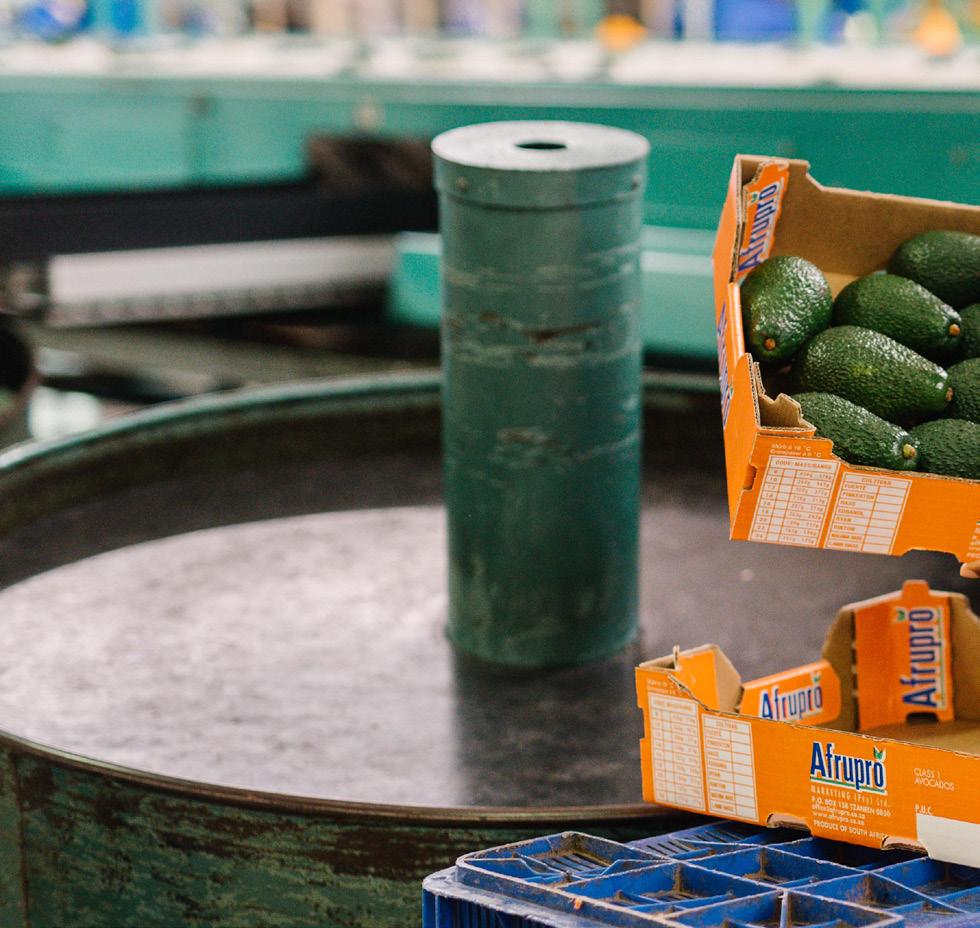
“Prices are so good at the moment, really outstanding,” Greyvensteyn
continued. “We have reports of up to 18 euros for a 4kg carton, while we are expecting retail to remain at more conservative levels of around 14 to 16 euros.”
“You’d think the market would’ve matured enough to keep prices stable,” she said, “but last year European consumers could purchase avocados at reasonable prices and even if this year the supply isn’t there, the demand still is.”
Even if some detractors insist that the craze for avocados may finally have reached its peak, this will be immediately negated by the attention it is receiving in the East. In 2017, China imported 32,100 tons of avocado, up from just 32 tons in 2011, and as China’s middle-class grows, the demand for avocado is only set to increase: sales are expected to more than double this year.
“There will be so many opportunities to relieve the pressure from the European market when China opens for avocado exports from South Africa, as China is still such an untapped avocado market,” summarised Greyvensteyn.
YEAR-ROUND SUPPLY
Afrupro currently is placed to deliver to markets for the complete South African supply period, which for avocados is weeks 8-39. It is now, however, nearing the stage where all the necessary pieces are in place for a 12-month avocado supply. Apart from a packhouse outside Tzaneen, there are three more in George (Southern Cape), Levubu (Limpopo) and Chipingi (Zimbabwe)
“We need to ramp up volumes as fast as possible,” Simon Tattersall underlines. “The major retailers overseas, like Lidl or Kaufland or Rewe, are putting large emphasis on their receivers for a 12-month supply of avocados. We’re aggressively expanding
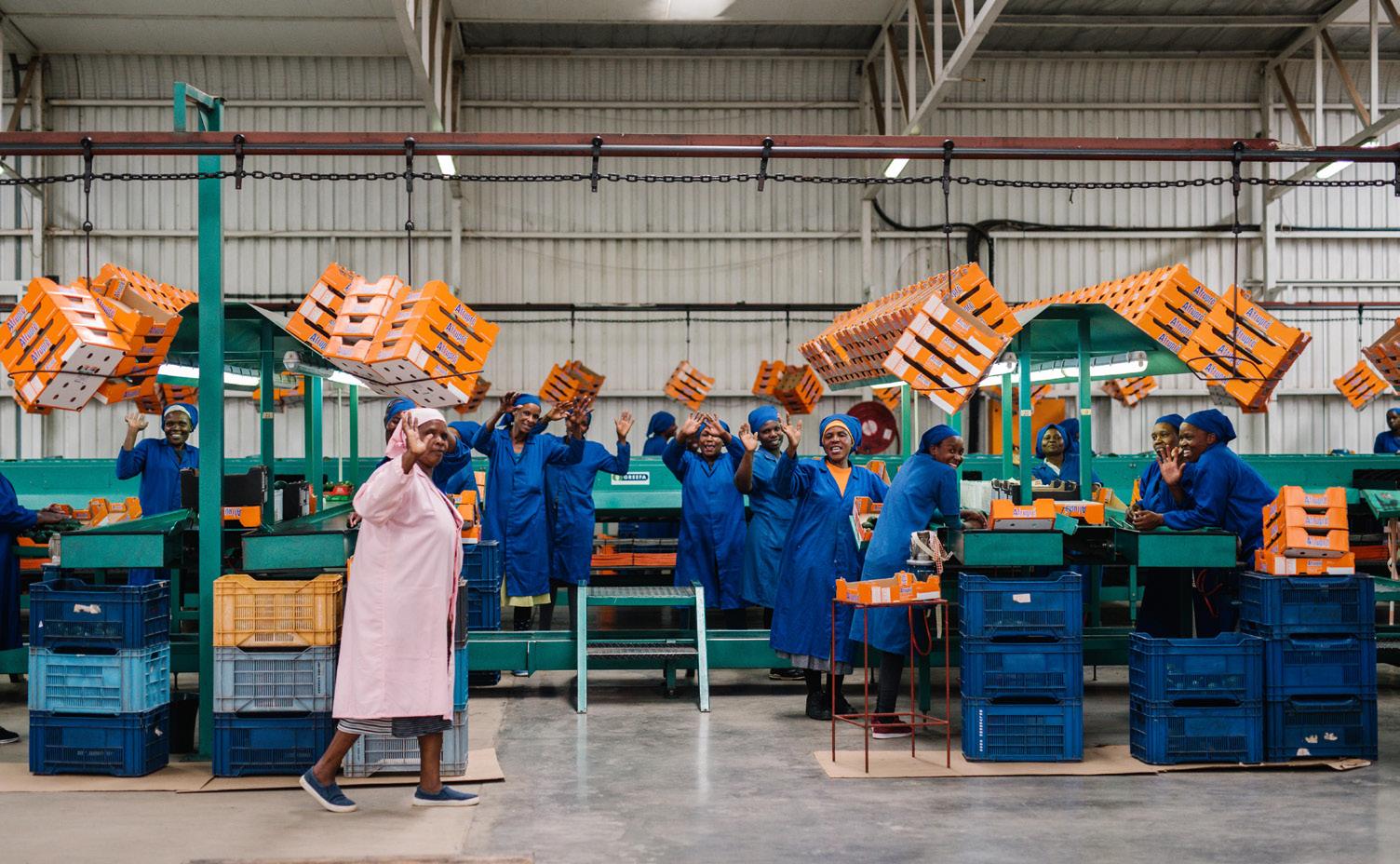
86 / www.enterprise-africa.net
// ASIDE FROM ITS HEALTH PROPERTIES, THE RANGE OF APPLICATIONS OF THIS ONE FOOD HAS SEEN DEMAND SOAR //
our grower base right now.”
South Africa is large enough to provide a number of climatic variations to aid in this quest, as are highpotential neighbouring countries like Mozambique, Zambia and Zimbabwe, all of which can be harnessed in obtaining a continuous avocado supply.
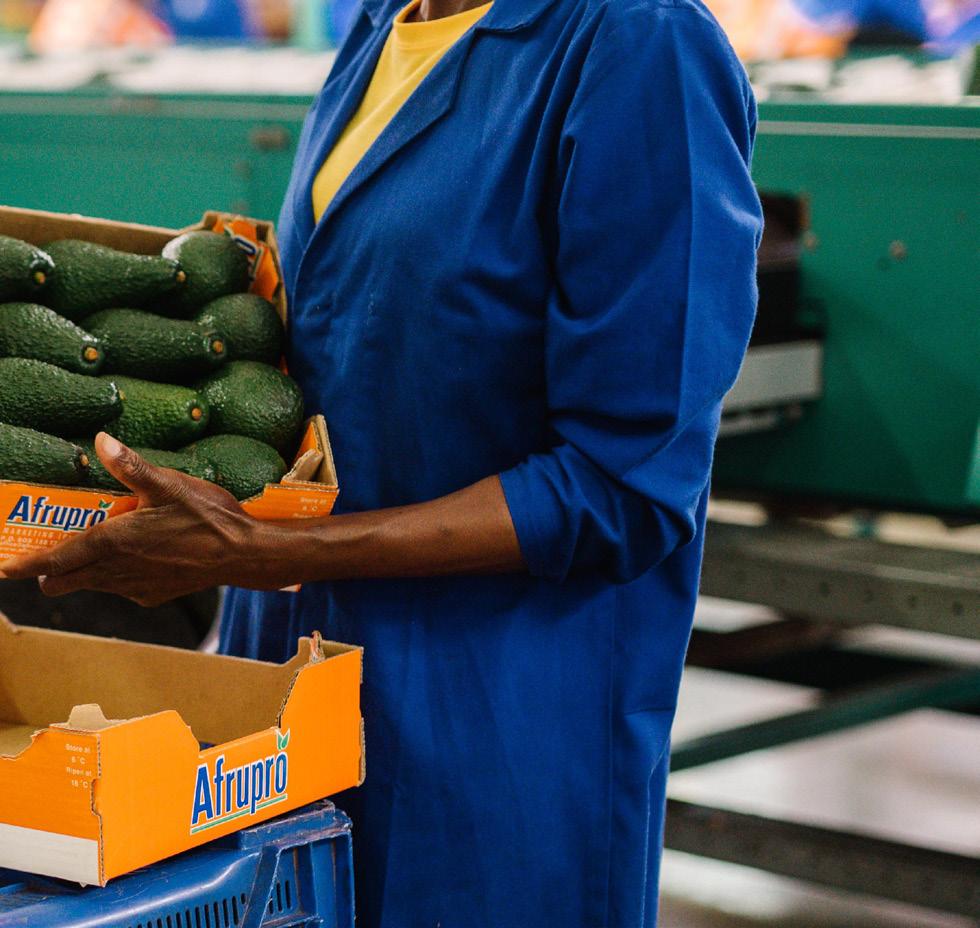
“Now we’re expanding to George,” Tattersall reveals, “which gives us avocados from August to January. Ofcolaco, meanwhile, is going to come in January and February and area’s in Chipingi will give us more Hass from August to November.”
Climate could have had a very different impact on the Afrupro story, but Tattersall explains that the company
was able to weather the droughts of two years ago, and even flourish when so many floundered. “We were very fortunate that 2017 was a down year for all the other avocado producing companies,” he says, “and so even though the drought played a major role the returns we got were very extremely high and offset the losses we would have incurred otherwise.
“The prices were at a real premium that year and translated to a super profit, which helped everyone involved to push through and keep achieving growth. We’ve also reacted in order to shield ourselves even better in future in case anything like it happens again; we have generators, like all the major players, and we’re also looking at introducing solar power.” – not sure if this as anything to do with the drought but rather issues with eskom?
When asked to round off by telling us how the industry will remain lucrative and continue to grow in size, Tattersall’s response is quite in contrast to what we usually hear: it really is taking care of itself at the moment but new markets need to open soon for South Africa
like the USA and China. “It’s happening naturally, consumption per capita is increasing even in your mature markets” he explains
“The biggest barrier to the trade is access to trees; there is a three to four year waiting time, because there is only a limited amount of nurseries which can properly cultivate avocado trees, but once people do get the trees there is clearly a major demand for the product, and we don’t see that slowing anytime soon.
“We pride ourselves on quality, and we consistently achieve good returns,” Tattersall rounds off on what keeps Afrupro among the leading suppliers in this most lucrative of markets. “Because we are still, at this stage, that little bit smaller than some others, we are able to focus heavily on the farmers themselves, and we like to think that this combination puts us up there with the best, and will allow us to keep up with this unstoppable trend.”
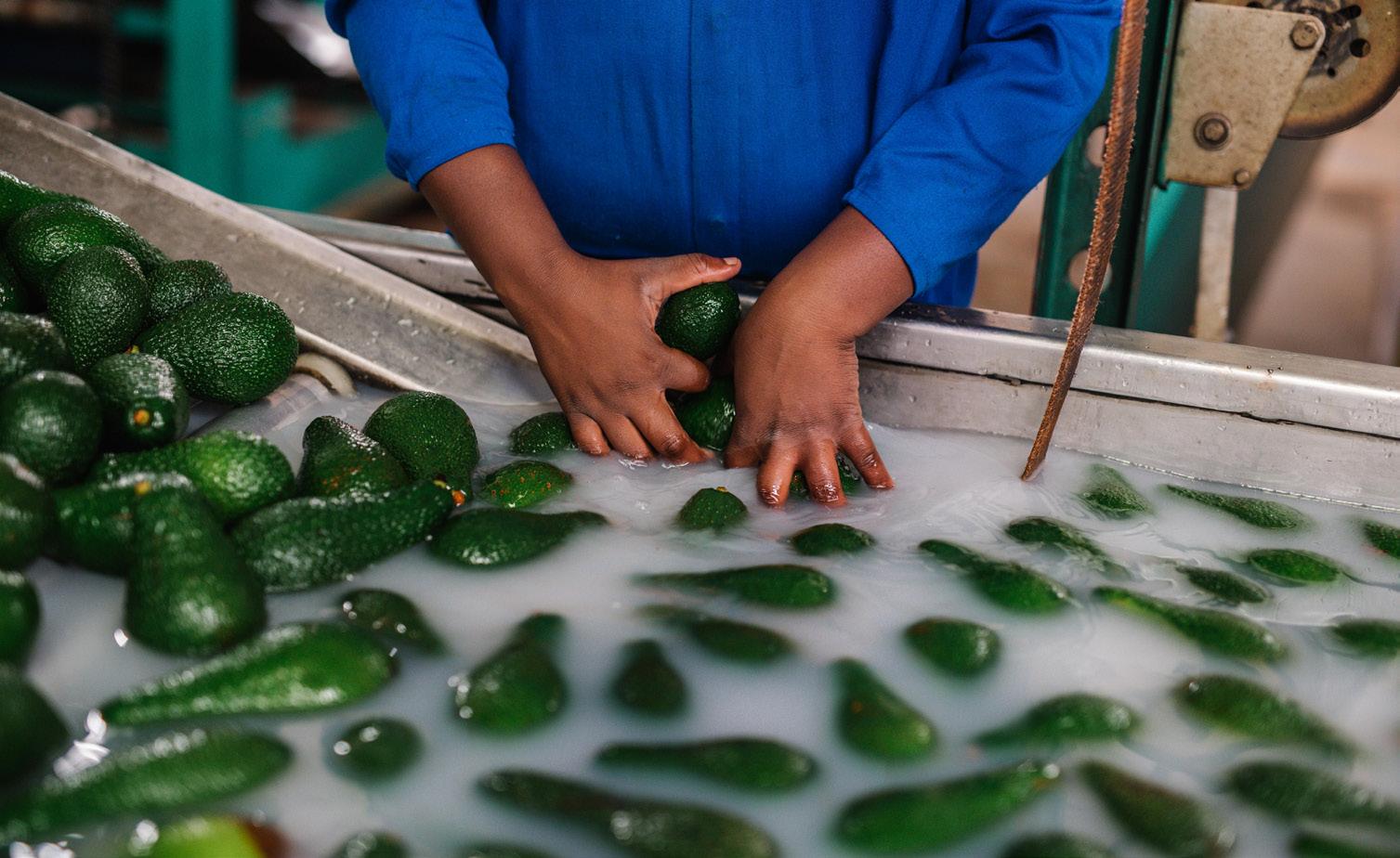
www.enterprise-africa.net / 87
WWW.AFRUPRO.CO.ZA AFRUPRO
// WE PRIDE OURSELVES ON QUALITY, AND WE CONSISTENTLY ACHIEVE GOOD RETURNS //
FIDELITY ADT
Taking Care of Security
PRODUCTION: David Napier
As one of South Africa’s largest and most well-known security businesses, Fidelity ADT provides a turn-key security and safety solution for private and commercial customers. As the crime rates in South Africa grow and change, Fidelity ADT remains at the forefront of the industry, innovating to ensure its clients remain protected.

88 / www.enterprise-africa.net

INDUSTRY FOCUS: SECURITY
For South Africa’s large, important and lauded security industry, times are changing quickly. As the nature of threats widens, and as demands on the sector continue to rise, South Africans are forced to choose – go unprotected, go cheap, go international, or go with the best. In the country once branded as one of the most dangerous in the world, the private security industry is titanic. The local police are woefully underresourced and the economic climate, with around 27-28% unemployment, makes for an environment where criminal activity is inevitable.
For business, the scenario is no different. You must invest to protect assets – especially in times where every Rand counts.
So, who is the best? Which company can secure the people, homes and businesses of South Africa? According industry veteran, and CEO Wahl Bartmann, the answer is Fidelity ADT.

“Our mission is to secure the lives and property of our valued customers.
Fidelity ADT is better placed than ever to do this,” he says.
In an industry worth more than R40 billion annually, Fidelity ADT stands as a local business with global expertise. Following the merger of Fidelity Security Group and ADT South Africa in 2017, the group now boasts an endto-end integrated security solution for customers across the commercial, public sector and residential markets. This is backed up by 57,000 employees, and a fleet of more than 4500 vehicles.
“Where many security companies only respond to crime incidents, Fidelity works to proactively mitigate crime in the communities in which it operates, and that is a very strong proposition for customers. Fidelity’s airborne helicopter support unit, as well as its canine unit, will provide extra levels of support to our teams while in the field, and allow for the provision of services in higher risk areas,” says Bartmann.
CRIME ON THE RISE
According to Stats SA, between 16/17 and 17/18, crime statistics across multiple measures increased. Motor
vehicle vandalism was up 26%, theft of motor vehicles was up 19%, hijacking was up 14%, assault was up 12%, damage to residential buildings and housebreaking increased by 7%, and murder and home robbery increased by 4% and 3% respectively. 46% of South Africans thought that violent crime had increased over the past three years and only around 30% said they felt safe walking in their own neighbourhood at night. The banking sector also reported increases in credit and debit card fraud along with rises in other online criminality.
Unfortunately, Fidelity ADT knows the market it is in. “We live in a country known for its vibrancy and dynamism, but sadly, not its safety,” the company says.
To meet the challenges of the increasingly complex landscape, Fidelity ADT is continuing to expand its operations and has grown by acquisition and geographic expansion.
In August 2018, the company announced that it had acquired Londoloza Protection Group, a Johannesburg-based crime prevention
90 / www.enterprise-africa.net //
CONNECTING CONTROL ROOMS TO CONSUMERS
FULLY BI-DIRECTIONAL SECURITY SOLUTIONS WITH INTEGRATED













CONTROL ROOM AND APP FUNCTIONALITY
Intrusion Systems
Video Surveillance
Access Control Global Monitoring Solution
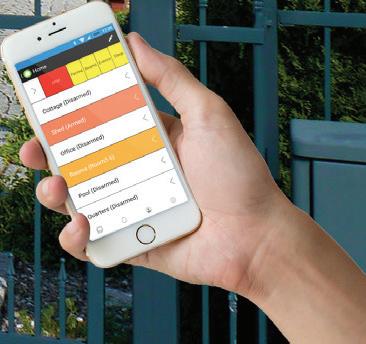
• Safer communities
• Improved protection
• Accessible and relevant technology
• Revolutionising the monitoring industry since 1985
AFRICA’S LEADING MANUFACTURER OF ELECTRONIC SECURITY PRODUCTS

031 705 1373
www.idsprotect.com
INDUSTRY FOCUS: SECURITY
set. Fidelity ADT has already launched SRUs in Johannesburg and Cape Town and the team in Durban has started to make progress.
“The SRU team is currently operating in the Westville and Kloof areas after our operations team received several reports of high criminal activities. We have already seen a difference being made thanks to the increase in visibility, vigilance and additional patrols by the team. The SRU team has been specifically deployed to serve our Durban communities and we look forward to future successes in combating crime within our district,” said Fidelity ADT’s District Manager for KwaZulu-Natal, Vaughan Pillay.
“The Durban-based SRU team has been operating for a few weeks after completing their training at the end of last month. The SRU team will not respond to alarm activations as is the case with the rest of our Durban fleet. The teams will be deployed in areas with specific modus operandi and high criminal activity. The officers will then be tasked to find and apprehend the specific culprits and mitigate any further potential risks.
“We realise the importance of staying one step ahead of the criminal element within our operational footprints, and believe that the Specialised Response Unit teams will make a positive impact in decreasing and addressing specific crime levels identified in areas of concern,” added Pillay.
TANGIBLE IMPACT
After the coming together of Fidelity and ADT, customers have been able to see the benefit of having a local but sizeable organisation looking out for them. In the past 24 months, the company has received praise for its work across a number of areas.
In February, in Mdantsane, close to East London, a Fidelity ADT security officer was able to apprehend a criminal attempting to steal from a parked car at a residential address. The home owner activated a panic alarm and the officer rushed to the scene, holding the criminal before handing him to local SAPS. In March, Llandudno, near Hout Bay, a security officer apprehended a suspect after his involvement with a robbery. He was identified by the victim before being handed over to SAPS. The speed of the process was praised by the customer. In the same week, while on night-time patrol, security officer Christian Cele noticed an unusual scene with a man walking down the R102 late at night. After questioning, it became clear that the man had been involved in a robbery earlier in the day and was transporting stolen goods. He was held and handed over to SAPS. “I would like to commend Officer Cele for his vigilance and bravery which resulted in another criminal being placed behind bars. Officers are often the unsung heroes of society and regularly go beyond the call of duty to keep our neighbourhoods safe,” said Vaughan Pillay.
In April, in Cape Town, a business premises alarm was tripped and Fidelity ADT officers rushed to the scene. On arrival, the criminal was still inside the building and was apprehended before being handed over the police. Cape Town North district manager, Verena Hulme said: “This shows the value of protecting your valuable business assets by installing a proper security system.”
April also saw the arrest of a well-known criminal in Sedgefield between George and Knysna. The man was attempting to break into the rear window of a residential property but the
quick reaction of the local officer foiled the plan. Having local knowledge of the community also helped as the officer was quickly able to identify the criminal as a repeat offender. In the same week, a car thief was also apprehended in Tamboerskloof after a Fidelity ADT officer found the man stealing glasses and a cell phone from a parked car.
In May, Armed Response Officer, Michael Mtshezi, was despatched to a school in Durban to apprehend a suspect who had broken in and triggered the alarm system. Later in the same day, he was successful again, arriving at a second scene within minutes to apprehend an offender who held a member of the public at knifepoint. “Thanks to his quick response on both incidents no one was injured and two criminals have been placed behind bars,” said Pillay.
In June, in Richards Bay, an Armed Response Officer was called to a home where armed burglars were attempting to break in with a family trapped inside. The officer arrived, only to be fired upon by the criminals. He gave chase and ensured the family and the home remained protected and unharmed.
The common theme across all of these accounts is speed. On all occasions, Fidelity ADT security officers
92 / www.enterprise-africa.net
// WHERE MANY SECURITY COMPANIES ONLY RESPOND TO CRIME INCIDENTS, FIDELITY WORKS TO PROACTIVELY MITIGATE CRIME IN THE COMMUNITIES IN WHICH IT OPERATES, AND THAT IS A VERY STRONG PROPOSITION FOR CUSTOMERS //
// WE REALISE THE IMPORTANCE OF STAYING ONE STEP AHEAD OF THE CRIMINAL ELEMENT WITHIN OUR OPERATIONAL FOOTPRINTS //
were on the scene within minutes and this allowed them to quickly avert any harm to people. Speed comes from adoption of technology which other security providers do not have access to. PTT (Push-to-talk) devices, automatic dispatch system and centralised monitoring help to cut response times dramatically.
The success of the company was recognised in May when Fidelity ADT’s South Coast branch was awarded two Diamond Arrow awards in PMR.africa’s KwaZulu-Natal Leaders and Achievers survey. The company was labelled as ‘the best security company’ and ‘the security company doing the most to fight crime in the region’ and Vaughan Pillay was proud.
“Winning two PMR awards demonstrates our continued commitment to providing world-class service to the people of the South Coast. We constantly aspire to provide our customers with the service and knowledge required to take back our streets in the fight against crime. I would like to thank all our loyal customers for their ongoing support,” he said.
As a local company that understands each community in which it operates, Fidelity ADT utilises its global expertise to
deliver a seamless service that genuinely adds value to clients.
“If you add ADT’s armed response expertise and footprint in the residential market, as well as its security technology solutions, to Fidelity’s extensive capabilities in the guarding, cash solutions and integrated armed response sectors, you have a security firm perfectly aligned for future growth in the Southern African market,” says Bartmann.
With Fidelity ADT protecting your home or business, you can rest assured that your security is taken care of.

www.enterprise-africa.net / 93
WWW.ADT.CO.ZA FIDELITY ADT
// OUR MISSION IS TO SECURE THE LIVES AND PROPERTY OF OUR VALUED CUSTOMERS. FIDELITY ADT IS BETTER PLACED THAN EVER TO DO THIS //

High-Spec Tech Keeps JD Group Ahead
PRODUCTION: Timothy Reeder
Competition within the South African retail market is rife, and fiercer than ever. Through its diversified retail and consumer finance business, and a sure-fire range of trusted brands and companies, JD Group has come to be known as a bastion of value for mass-market customers in Southern Africa, making a comfortable lifestyle a reality for more and more people every day.
//“We provide value,” outlines JD Group of its overarching mission, “and enable South African consumers to live the way they deserve.” The umbrella company for a vast and diverse range of business arms, JD Group’s reach is all-encompassing, and numbers some of the key household names in Southern Africa.
Furniture and technology dominate the roster, and all showcase a rich heritage of improving the quality of life of African consumers daily. Both Russells and Bradlows harbour near-identical aims: to enable aspirational customers to create stylish warm homes by offering quality, long-lasting furniture and appliances through affordable payment options. This is backed by a combined reputation of over two centuries, and nearly 600 stores
between the two brands.
Rochester is a slightly more niche, but no less desirable option: with just 25 stores nationwide it offers a far more personal touch, serving discerning customers timeless quality furniture tailored to individual tastes. Sleepmasters, meanwhile, promises the very best night’s sleep through its range of branded beds in three different comfort levels, at the characteristic competitive prices to allow consumers to rest even easier in one of its luxurious choices.
TECH EXPERTISE
Arguably most synonymous with the JD Group name, among a litany of key players, is its duo of electronic retailers. Incredible Connection’s wares are available in 75 outposts nationwide,

and it has the widest range of leading brands to make it the retailer of choice for integrated technology products, services, content & solutions.
HiFi Corp, meanwhile, is perhaps JD Group’s leading light among a glittering line-up of companies. It bills itself as a discount retailer supplying electronic goods, appliances and related accessories, to consumers positioned in the mass-middle-market across Southern Africa.
Both are much-loved technology retail stores in South Africa, thanks to a comprehensive range of innovative products, practical solutions for any home and business environment through to specialist products, all of which push the boundaries of technology. “At Incredible Connection, we like to make tech easy,” sums up this
JD GROUP
www.enterprise-africa.net / 95
INDUSTRY FOCUS: RETAIL
this in mind, we ask the question: ‘Why shop anywhere else?’”
technological friend to many, “if the future is about connectivity, Incredible Connection ensures you’re plugged in.”
“Why shop anywhere else?”, meanwhile, is HiFi Corp’s challenge right at the outset, and it is a pertinent question: the promise to beat price on all advertised products and free delivery on all appliances alone set it apart from a growing crowd. “After more than two decades of the leading budget beater in electronic audio visual products and appliances,” the company continues, “the brand continues to fight for consumer justice in bringing the lowest possible prices to consumers.
“We truly understand our customers’ needs and our products,” explains the company, “we offer value for money and affordable payment options; and with
While most prevalent in South Africa, HiFi Corp also operates in Botswana, Namibia, Zambia and Swaziland. HiFi Corp’ leading position in the electrical market as a national chain has been cemented following a focus on six main categories: Television, Audio products, Appliances, Computing, Cellular and Car Audio.
“As the Low Price champion, HiFi Corp has strategically positioned itself to save the consumer money,” states the brand. “The company has updated its identity in line with this new positioning, which has included a new small store design that makes shopping at HiFi Corp a great experience, and also shortening the name HiFi Corporation to HiFi Corp to mirror the new focus, and adopting a new brand promise…[this] more accurately reflects the down-toearth and approachable brand that it is.”
STIFF COMPETITION
That the wider JD Group, and HiFi Corp in particular, continues to gain both growth and market share is testament

to its commitment to service excellence, and to making available new offerings within centres, new retailer products and unique experiences for customers.
“The retail market is changing and evolving at a rapid pace,” writes Business Report, “with innovation being one of the key success factors to survival.”
“In the face of increased competition, shopping centre owners, developers, managers and retailers need to be alert to and agile in responding to the latest trends, consumer behaviour and technology in a fast-paced, ever evolving industry,” said Elaine Wilson, Director of Broll Property Intel, the research division of leading Pan-African property services group, Broll.
South Africa’s economy continued to flounder in 2018 with GDP growth
96 / www.enterprise-africa.net
// WE PROVIDE VALUE AND ENABLE SOUTH AFRICAN CONSUMERS TO LIVE THE WAY THEY DESERVE //
// WE PROVIDE VALUE AND ENABLE SOUTH AFRICAN CONSUMERS TO LIVE THE WAY THEY DESERVE //
KIC is simple, yet modern in its design satisfying customer need when it comes to refrigeration and cooking. With the local based manufacturing facility in Isethebe, Kwazulu Natal, KIC prides itself in producing the best quality products and continues to grow both regionally and internationally.

www.kic.co.za • 0860 884 402 • info@kic.co.za
of just 0.9% in 2017; internet retailing remained the most dynamic channel in 2018, with mobile internet retailing seeing especially strong growth.
Retailers are increasingly being forced to take an omnichannel approach in order to remain competitive, with many South African companies investing in establishing a strong online presence.
For a company aligning itself at the forefront of technology, it is only fitting that HiFi Corp also be a pioneer in its online retail offering as well, especially considering the emerging trend of consumers away from the high street. The single channel shopping experience either in bricks-and-mortar stores or online only no longer cuts it; success will only come from mastering the two otherwise retailers will lose out on swathes of potential customers.
HiFi Corp’s celebrated online retail
portal is the result of its partnership with digital solutions company, iGroup, extending its existing website to a fullyintegrated, usable e-commerce system.
Marc Seymour, CEO of iGroup, said at the launch that the website had been presented to the customer in a simple and user-friendly way.
“The system has seven integration points and is the only site in South Africa, at this time, to integrate directly to SABC for online TV licensing verification and purchasing,” he explained. Apart from the first online SABC TV license integration, among the website’s defining features were integration into multiple supplier systems, delivery mechanisms, good quality product information and imagery and automatic web specific promotions and notification facilities.
“Not only can customers browse,
compare products and now purchase a valid TV license online by means of SABC licensing integration and ID upload and verification facilities, soon they will be able to use an SMS or in store facilities to check their TV license status prior to purchase as well,” Seymour underlined.
“The HiFi Corp site is a fantastic example of iGroup’s understanding of business rules, security, process flows, payment mechanisms and logistics needed for a successful e-commerce system.”
www.enterprise-africa.net / 97
JD GROUP
WWW.JDGROUP.CO.ZA
KEY UPCOMING EVENTS ACROSS THE INDUSTRY
Our regular update to help you keep track of important events and exhibitions taking place across the spectrum of industry sectors.
KENYA INTERNATIONAL TRADE EXHIBITION
AUG 01 - 03 | NAIROBI
The largest international trade exhibition in Africa for multi-sector products, equipment and machinery will take place at KICC, Nairobi, Kenya from 01 - 03 August 2019 with record breaking numbers. Exhibitors and trade visitors are said to increase by 27% and 24% respectively at the 22nd edition of the Kenya International Trade Exhibition (KITE). The exhibition has grown in stature from its inception 22 years ago, as the key networking and sourcing platform for the industries. As the largest event of its kind, it ensures direct access to over 150 exhibitors from 30 countries and more than 12,000 trade visitors.
SA MOTORING EXPERIENCE
AUG 22 - 25 | JOHANNESBURG
Welcome to the biggest motoring extravaganza in South Africa. Now four exciting days, event goers can expect even more motorsport content, track time, self-drives and participating automotive manufacturers.
The Festival of Motoring is not your average motoring event. It’s the one event that brings the entire industry together and allows visitors to not only view or compare the latest models, but to jump in and experience the performance and handling of these vehicles on the track.
Festival of Motoring provides world class motoring and motorsport content to appeal to the many
“petrolheads’ with the show having a strong family appeal.
The show draws a large base of motoring enthusiasts with the provision of a substantial platform for the industry to showcase new models and the latest technical innovations.
Smell, feel, touch and experience all the leading manufactures with this unique and interactive event.
BIO AFRICA CONVENTION
AUG 26 - 28 | DURBAN
BIO Africa Convention is an international event organised by AfricaBio, a biotechnology stakeholder association in partnership with IPASA (Innovative Pharmaceutical Association of South Africa and TIA (Technology Innovation Agency) and endorsed by the South African Departments of Science and Technology, Health and Trade and Industry.
It provides a platform for dialogue and discussion with stakeholders in the global biotechnology environment. It is also a showcase of bio-innovations from the broader biotech community of South Africa and the Africa region, creating an enabling environment for commercialization of local innovations.
BIO Africa Convention will achieve sharing and knowledge transfer of highly updated and relevant information from across the globe with a special emphasis on Africa. This will be achieved by scheduled scientific sessions, keynote presentations by renowned scientists and policy makers, workshops and panel discussions.
KENYA INTERNATIONAL TRADE EXHIBITION
KENYATTA INTERNATIONAL CONFERENCE CENTRE
AUG 01 - 03
DECOREX JO’BURG GALLAGHER CONVENTION CENTRE
AUG 07 - 11
MANUFACTURING INDABA KZN DURBAN ICC
AUG 14 - 15
NEDBANK CAPE WINEMAKERS GUILD AUCTION SHOWCASE CAPE TOWN ICC
AUG 15
2019 AFRICA CACS SANDTON CONVENTION CENTRE
AUG 19 - 20
COAL AFRICA GRACELAND HOTEL, CASINO & COUNTRY CLUB
AUG 21 -24
SA MOTORING EXPERIENCE
KYALAMI EXHIBITION & CONFERENCE CENTRE
AUG 22 - 25
BIO AFRICA CONVENTION DURBAN ICC
AUG 26 - 28
EXHIBITION
CALENDAR
98 / www.enterprise-africa.net
LET’S BUILD HEALTH
www.sakhiwo.com
mail@sakhiwo.com
Our Vision
To be an outstanding leader in health infrastructure development, while meeting the needs of the client and the community.
Our Mission
We are committed to excellence in design and implementation of high quality, efficient and cost-effective solutions. We aim to respond accurately to the transformation of health care infrastructure delivery by developing outstanding facilities.
Current projects
SOUTH AFRICA
• Cecilia Makiwane Hospital
• Lilitha College of Nursing
• Frere Hospital (New Oncology and ICU)
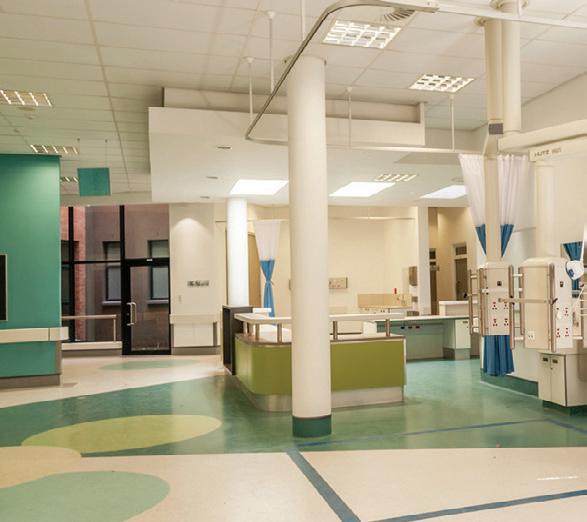
• Sipetu District Hospital
• Thabazimbi District Hospital
• Letaba Regional Hospital
• Limpopo Academic Hospital
• Siloam Hospital
• Eastern Cape Health Facilities
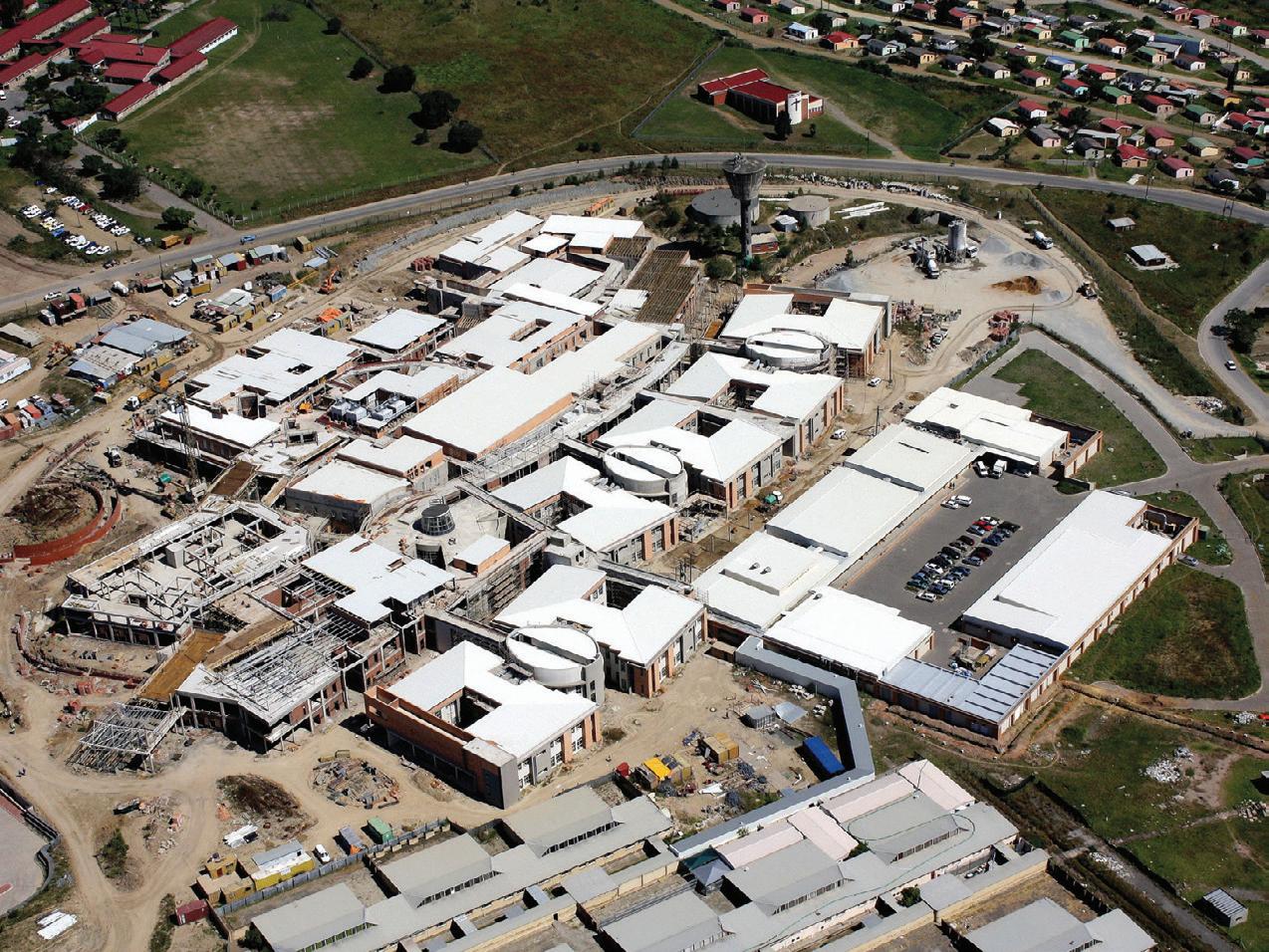
Maintenance
ZIMBABWE
• The Avenues Woman & Child Hospital
MOZAMBIQUE
• Nampula General Hospital
GAMBIA
• Horizons Private Clinic (TA for AfDB)
NAMIBIA
• Otjiwarongo Referral Hospital
• Ondangwa District Hospital
• Khomas District Hospital
• Katutura Hospital
• Windhoek Central Hospital
BOTSWANA
• Health Facilities Maintenance
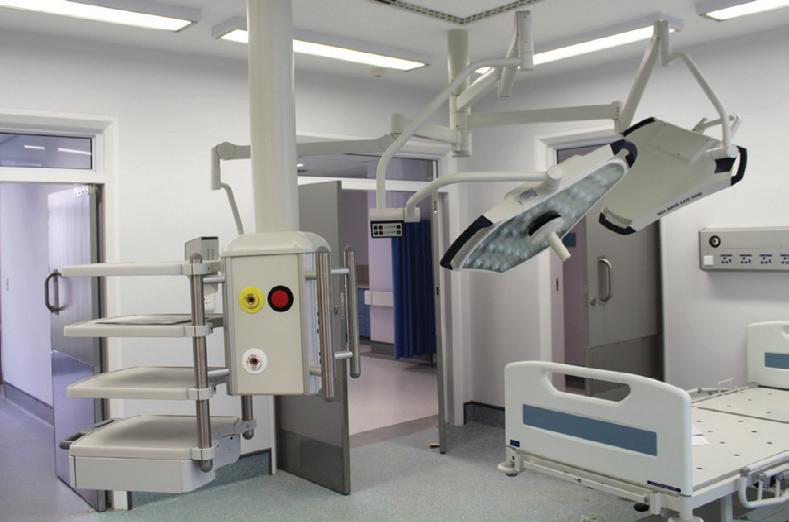
We believe in the powerful impact of world-class healthcare.

We specialise in strategic health planning, health briefs, facility planning, architectural design, project and construction management, health technology, consultancy and advisory services related to hospital infrastructure development, commissioning and health facility maintenance management.
SAKHIWO acts as turnkey developer of hospitals on a plan, design, construct, equip and finance basis. We have pulled together some of the best expertise in South Africa for the establishment of SAKHIWO Health Solutions.
SAKHIWO – Leaders in Health Infrastructure Development.
